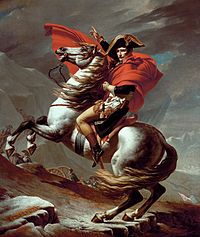




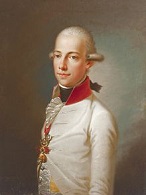




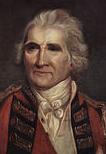









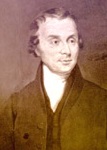
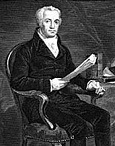
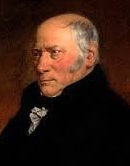








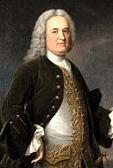








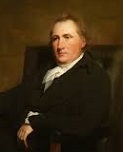
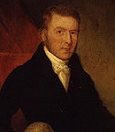
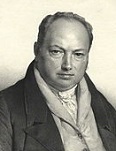


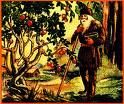

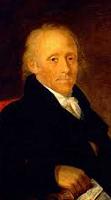
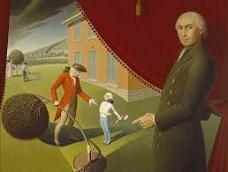
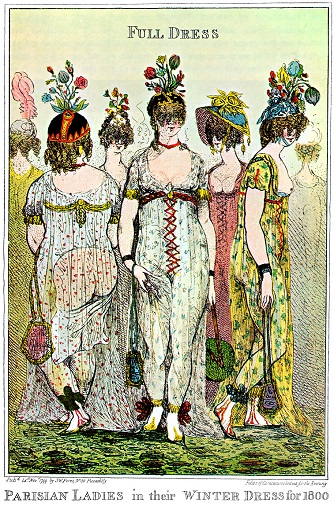


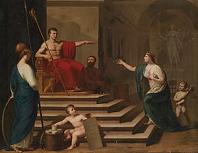


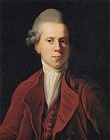
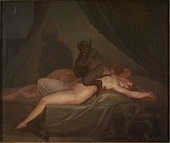

1800 Jan. 1, 1800 falls on Wednesday, so this is a Mercury (Woden) Century. World pop. exceeds 1B (one billion) for the 1st time; India: 200M, China: 275M (460M in 1960), Russia (minus Finland): 31M, France (boundaries of 1819-46): 27.8M, Germany: 27M, Italy (boundaries of 1910): 16.9M, Spain: 10.5M, Britain: 10.4M (U.K.: 15M), Prussia (boundaries of 1846): 8.9M; Belgium: 2.96M, Holland: 1.8M, Sweden: 2.3M, Norway: 1.0M; Africa: 107M. Pop. of cities: Beijing: 1M; London: 860K, Paris: 550K, Vienna: 230K, Berlin: 180K, Washington D.C.: 2,464 free plus 623 slave (8K total in the immediate area); there is only one city with a pop. of 1M+, which grows to ? by 2010. The Second (2nd) U.S. Census reports the total pop. as 5,308,483 (35.1% increase) (6.1 per sq. mi.); whites 81.1%; blacks 1,002,037 (18.9%); pop. of New York City: 30K-60K, beginning to double in size every 10 years; 85% of the U.S. labor force works in agriculture; blacks are now completely locked into the American institutional slavery system, their skin color being a badge of inferiority; life expectancy in W Europe is 40 years, and the potato-fed pop. has increased in all its nations from 50%-100% since 1730, with the boom in premarital sexual intercourse since 1780 making a big prick. World Economic Growth jumps from 0% to 2% per annum for the first time in known history, making the modern world possible? This year forests cover 96% of Ohio; by 1900 it's only 25%. By the end of this decade the British cotton industry employs 90K factory workers and 184K handloom weavers. The first half of this cent. is referred to as "the white man's graveyard" for the high death rate of European explorers in West Africa from disease, wild animals, and hostile natives, slowing down exploration - a missionary in every cooking pot jokes here? Napoleon Bonaparte (1769-1821) establishes himself as First Consul in the Tuileries, and appoints a commission of jurors to combine all French civil laws into the patriarchial Code Napoleon (1804-10), to go into effect on Mar. 21, 1804, with Jean Jacques Regis, duc de Cambaceres, author of the Projet de Code Civil as 2nd consul; women have no political rights, and divorce with alimony is reserved to worn-out bitches, er, wives over 45 who have been married at least 20 years; the tradition of impartible inheritance is ended, contributing to low birthrates as families seek to pass land on intact; Chateau de Malmaison 7 mi. W of Paris on the Seine River, home of Napoleon and Josephine since 1799 becomes with the Tuileries the HQ of the French govt. (until 1802); Nappy allegedly orders people to drive on the right side of the road - if he can do that, he can get away with anything? On Jan. 20 Napoleon's sister Maria Annunziata Carolina Bonaparte (1782-1839) marries natty dresser Joachim Murat (1767-1815), making him Nappy's brother-in-law - well la-di-da? On Jan. 24 the Convention of al-Arish provides for safe return of French troops from Egypt, with the Ottomans paying for their redeployment, while remaining in control of the Ionian Islands; too bad, British Mediterranean CIC adm. Lord Keith doesn't accept the convention. In Jan. French economist Pierre Samuel du Pont de Nemours (1739-1817), his two sons Victor Marie du Pont (1767-1827) (a diplomat) and Eleuthere Irenee (Eleuthère Irénée) du Pont (1771-1834) (a gunpowder manufacturer) and their families arrive in Newport, R.I. from France - a better gift than the Statue of Liberty? In Jan. Thomas Bruce, 7th Earl of Elgin (1766-1841) establishes his British embassy in Constantinople, where he is ambassador to Turkey from 1799-1802; in July he sends a team to Athens to see if they can carry away the Elgin Marbles (marble sculptures by Phidias) from the Parthenon to avoid probable destruction by the Turks; by July 6 the Sultan of Constantinople at Lord Elgin's request issues written orders to his officers in Athens for cooperation with Giovanni Lusieri in removing sculptures from the "pagan" Parthenon; in 1806 they are shipped to England, then acquired by the British Museum in 1816, where they become a thorn in Britain's side to the present day. On Feb. 17 the Law of 28 Pluviose centralizes the French admin., with local govt. in the hands of centrally-appointed prefects and subprefects. On Mar. 14 Jesuit-friendly Luigi Barnab a Chiaramonte is elected Pope (#251) Pius VII (1740-1823) (until Aug. 20, 1823). On Mar. 20 the 10K French under Gen. Kleber win a crushing V over the 40K-man Ottoman army in a surprise dawn attack in the Battle of Heliopolis (NE of Cairo); meanwhile the Egyptians revolt, causing Kleber to siege Cairo, taking it on Aug. 21; on June 14 after recognizing Murad Bey as ruler of Upper Egypt, Kleber (b. 1753) is assassinated, and is succeeded by French gen. Jacques-Francois de Menou (until Aug. 30, 1801), who tries to establish a permanent French occupation of Egypt, starting with tax reforms. On Apr. 21 New Hanover County, N.C.-born 4'5" Alfred Moore (1755-1810) becomes U.S. Supreme Court justice #12 (until Jan. 26, 1804) to replace James Iredell (1790-99) (who died suddenly in office), becoming the 2nd justice from N.C. and the shortest justice (until ?); too bad, he suffers from poor health and doesn't do much except render an opinion that France is an enemy of the U.S. On Apr. 24 the U.S. Congress passes a bill transfering the seat of the U.S. federal govt. from Philly to the new capital city of Washington, D.C., and establishing the Library of Congress, funded by a $5K appropriation to order 740 books and three maps from London which are initially housed in a boarding house, then the U.S. Capitol. On Apr. 27 Napoleon grants a gen. amnesty to all but 1K of the 150K French who emigrated during the French Rev., allowing English exile Francois-Rene de Chateaubriand to return in May, becoming ed. of the Mercure de France. On May 3 the Second Battle of Stockach (Battle of Stockach and Engen) is a V for the French under gen. Claude Jacques Lecourbe (1759-1815) over the Austrians under Prince Joseph of Lorraine-Vaudemont (1759-1812). On May 7 the W part of the Northwest Territory (Illinois) becomes a part of Indiana Territory, with Gen. William Henry Harrison as its first gov., and capital at Vincennes (until 1813); Territorial Hall is built, becoming the first capitol, and in 1804 the William Henry Harrison Mansion is built. On May 13 Mass. Federalist Sen. (since 1799) Samuel Dexter (1761-1816), who wrote the memorial eulogy to George Washington last year becomes U.S. war secy. #4 (until Jan. 31, 1801), going on to urge Congress to appoint and compensate more field officers for gen. staff duty. In May Napoleon begins his incredible March Across the Alps, crossing St. Bernard Pass with 40K men to attack the Austrian flank and recapture Milan - where's the doggies? On May 23 a British fleet with 20K troops under Lt. Gen. Sir Ralph Abercrombie (Abercromby) (1734-1801) attacks Monaco. In May a Federalist congressional caucus nominates John Adams for pres. and XYZ-Affair man Charles Cotesworth Pinckney of S.C. for vice-pres.; in Oct. Alexander Hamilton declares that Adams is temperamentally unfit to be pres., accusing him of being a "gross hypocrite" for his abuses of power with the Alien and Sedition Acts, and an "egregious fool"; in May the Repub. caucus selects Thomas Jefferson for pres. and Aaron Burr for vice-pres.; Burr has just managed the election of a Repub. majority to the New York legislature, wrapping up all of that state's electoral votes; the first true U.S. pres. campaign, birthing the 2-party system; too bad, the election gets nastier (the nastiest pres. election ever?) when Jefferson is called an atheist and a Jacobin; Adams dismisses the three disloyal (pro-Hamilton) members of his cabinet; the election is so momentous that Jefferson dubs it "America's second revolution"; the beginning of America's 24-Year Itch Cycle, when populists arise and shake the system up, incl. Andrew Jackson (1824), the Whigs (1852), Samuel Tilden (1876), William Jennings Bryan (1896), Warren G. Harding (1920), GOP takeover of Congress (1946), George Wallace (1968), Ross Perot (1992), and Donald Trump and Bernie Sanders (2016). On June 4 Genoa surrenders to Austria after experiencing a horrible famine - tella me whena? On June 14 Napoleon's army defeats Austria and its allies under Transylvanian-born Austrian field marshal (of Greek descent) Michael Friedrich Benedikt, Baron von Melas (1729-1806) at the Battle of Marengo near Alessandria in the Piedmont (NW Italy S of Turin); it seems lost for the French until Marshal Louis Charles Antoine Desaix (b. 1768) risks his marengos to save the day with a charge, and is KIA; Napoleon names his short (14.1 hand) gray Arabian warhorse Marengo (1793-1831) after the battle; Napoleon's chef Dunand invents yummy Chicken Marengo (chicken, garlic, tomatoes, white wine and cognac with crayfish and fried eggs on the side) after the battle, and Napoleon orders it served henceforth after every battle, going on to conquer Italy. On June 19 the French army of the Rhine under gen. Jean Victor Marie Moreau (1761-1813) defeats the Austrians under Paul (Pal) Kray von Krajowa (1735-1804) at the Second Battle of Hochstadt (Höchstädt) (an der Donau) (first 1703) on the N bank of the Danube River NE of Ulm. In the summer George III's unwed (thanks to his insanity scaring off suitors) 5th daughter Princess Sophia (1777-1848) is the butt of rumors that she gave birth to an illegitimate child by Thomas Garth, an equerry of the king, or that she was raped by her unpopular elder brother the duke of Cum, er, Cumberland. On July 2 after British PM William Pitt the Younger spreads the money and patronage around, the Acts of Union, sponsored by ruction-crushing Viscount Castlereagh are enacted, uniting Great Britain with Ireland as the United Kingdom (U.K.), effective next Jan. 1. In July Pope Pius VII enters Rome after Napoleon makes an agreement with the Spanish monarchy that ensures the survival of the Bourbons in Naples and the pope in Rome; Puccini's Jan. 14, 1900 opera Tosca is set on noon June 17 and dawn of June 18 of this year; meanwhile Lord Nelson is created duke of Bronte (Bronté) by the king of Naples, and returns to England, getting in trouble with his wife Frances Nisbet for his affair with Lady Hamilton, ending in separation next year. In July the French army of the Rhine under Gen. Jean Victor Moreau takes Munich. In July a Danish convoy led by the frigate Freya refuses to allow British warships to search a convoy; the British force the Danish to surrender and to give up their armed convoy policy by later sending a large fleet to the Copenhagen Roads; Denmark joins the League of Armed Neutrality (Russia, Sweden, Netherlands, Prussia); Tsar Paul I orders all British ships in Russian harbors seized. In July the Am. privateer Mary, captained by Gamaliel Bradford (1768-1824) routs four French privateers at Gibraltar, although Bradford loses a leg. On Aug. 21 the U.S. Marine Band (founded 1798) gives its first concert near the future site of the Lincoln Memorial. In Aug. the French offer Britain a naval armistice, causing the Brits to think about it and then decide to expel the French from Egypt. On Sept. 5 the British capture Valetta and occupy Malta, ending French occupation, then unsuccessfully siege Cadiz, after which they begin planning an assault on Egypt in conjunction with the Ottomans and a British force from India. On Sept. 30 the Treaty of Mortefontaine (Convention of 1800) is signed by Napoleon's new govt. and the U.S., influenced by George Washington's Farewell Address, with France agreeing to cancel the vexatious treaties in exchange for the U.S. dropping its bothersome financial claims and paying the claims to its own citizens arising out of the undeclared naval war with France, ending the undeclared Quasi-War (begun 1798) along with the formal treaty of alliance between the two countries and all alliances with foreign countries for the next cent., although news doesn't reach the U.S. until after the election in which Adams goes down; George Washington sleeps soundly in his grave now that the U.S. is pulling out of foreign entanglements permanently?; "I desire no other inscription over my gravestone than: Here lies John Adams, who upon himself took sole responsibility of the peace with France in the year 1800" (John Adams). In Sept. the sloop USS George Washington, commanded by William Bainbridge (1774-1833) becomes the first U.S. Navy ship to enter the Mediterranean after being ordered to bring $500K worth of tribute (jizya) to the dey of Algiers. On Oct. 1 under pressure from Napoleon, Spain cedes Louisiana (La.) (held since 1669) to France by the secret Third Treaty of San Ildefonso (1777, 1796), with France to take control in Nov. 1803, and Spain gaining Tuscany; the treaty also settles territorial disputes between Portugal and Spain over the Rio de Plata region; too bad, it doesn't specify the boundaries of La., causing difficulties during the 1803 Louisiana Purchase. On Oct. 7 Va. slave revolt leader and Richmond blacksmith Gabriel Prosser (b. 1776) is hanged after he and his preacher brother Martin are prevented by a storm from using assembled slaves for an attack on Richmond with the intent to kill all whites except Quakers and Methodists. On Nov. 1 as the U.S. federal govt. moves to Washington, D.C. from Philly, Pres. John Adams and First Lady Abigail Adams move into the 132-room 14-acre Georgian mansion President's House (White House), where fires have to be constantly set to heat the cold rooms, and White House hostess #1 Abigail Adams uses one of the rooms for laundry; on Nov. 2 John writes to her, "I pray Heaven to bestow the best of blessings on this house and on all that shall hereafter inhabit it. May none but honest and wise men ever rule under this roof" - will he settle for one out of two? On Nov. 17 after 10 years in Philly the Sixth U.S. Congress (Mar. 4, 1799-Mar. 4, 1801) convenes for the first time in Washington, D.C. in the partially completed U.S. Capitol bldg. On Dec. 3 the Battle of Hohenlinden in Bavaria 20 mi. from Munich is a decisive V for the French under Gen. Jean Victor Moreau over the Austrians under 18-y.-o. Archduke John (1782-1859) (who had replaced Archduke Charles), causing the collapse of the Second Coalition. On Dec. 12 Washington, D.C. is officially established as the capital of the U.S.; its pop. is 14,093 incl. 10,066 whites and 4,027 blacks (783 free, 3,244 slave). On Dec. 28 after trying in vain to get Russia to protect it, E Georgian king George XII (b. 1746) dies, and the kingdom of Georgia is absorbed by Russia, and the royal family deported. On Dec. 31 after a mean press campaign which falsely accuses him of setting fire to the State Dept. bldg., Oliver Wolcott Jr. resigns. In Dec. in Va. Martha Washington sets all her slaves free, except for some co-owned by relatives. U.S. secy. of state (since 1795) Timothy Pickering is fired by Pres. Adams for opposing his views, and returns to Mass., where he becomes a leader of the ultra-Federalists; John Marshall is appointed U.S. secy. of state (until 1801). The British annex the Indian Carnatic State in Madras between the Eastern Ghats and the Coromandel Coast, ruled by the nawab of Arcot. The U.S. Harrison Land Act of 1800 provides for sale of lands in the territory NW of the Ohio River above the mouth of the Kentucky River; it keeps the price of federal govt. land at $2 per acre, but gives four years to pay, so that one can get a 320-acre farm for a down payment of $160. Chongjo dies, and his 10-y.-o. son Sunjo (1790-1834) becomes Yi king of Joseon (Korea) #23 (until 1834), with his mother as queen regent, immediately issuing an edict declaring adherence to the "evil learning" of Christianity to be tantamount to treason. With British backing, Zaman Shah is captured and blinded by his brother Mahmud Shah Durrani (1769-1829), who becomes ruler of Afghanistan next year (until 1803, then 1809-18), facing family civil war, while vizier Fateh Khan Barakzai (-1818), eldest son of Barakzay clan head Sardar Payinda (Payenda) Khan and grandson of Jamil Khan Barakzay directs state affairs. About this time Gatlinburg, Tenn. 39 mi. SE of Knoxville at the border of the modern-day Great Smoky Mts. Nat. Park is founded by William Ogle (1751-1803) of Edgefield, S.C., who dies of malaria; in 1856 after a U.S. post office is established in his store, the town is named for Ratford Gatlin (1798-1880), who sides with the Confederates and is forced to leave in 1859. French immigrant Martin Fugate settles in Troublesome Creek, Ky., giving his descendants the rare blood condition methemoglobinemia, which turns their skin blue; by 1960 six generations of inbreeding spreads to the entire pop. The Church of the United Brethren in Christ is founded in Huntington, Ind. by Martin Boehm (1725-1812) and Philip William Otterbein (1726-1813) from United Brethren churches, becoming the first Am. denomination not transplanted from Europe, becoming a forerunner of the United Methodist Church. Jean Baptiste Pointe du Sable, pioneer trader and founder of the village that became Chicago sells his holdings and moves to a Missouri farm. The city of Johnstown, Penn. (modern-day pop. 21K/140K) on the Conemaugh River at its confluence with Stony Creek 75 mi. SE of Pittsburgh is founded as Schantzstadt by Swiss German settler Joseph Schantz Johns (Jahns) Sr. (1749-1813), becoming a coal and iron ore mining center for Tunkers (Germ. "tunken" = to dip), located at the head of the W branch of the Penn. Main Line Canal; not to be confused with Johnstown, N.Y. - johnson jokes here? The fortifications of pesky Cuneo in the Piedmont of N Italy 55 mi. S of Turin are demolished by the French. The British secure an area from the sultan of Kedah in the Malay Peninsula and name it Wellesley Province. Early in this cent. non-rhotic speech (pronouncing hard like hahd) takes off in S England among the upper and upper-middle classes, spreading throughout England becoming the Received (BBC) Pronunciation while infecting SE U.S. port cities with close trading ties incl. Boston, Charleston, Richmond, and Savannah. Early in this cent. the town of Gravesend in Brooklyn, N.Y builds the Shell Road to Coney Island, a sand bar on the S shore of Long Island, separated by Coney Island Creek. Extreme Makeover, Industrial Edition? British industrialist Robert Owen (1771-1858) takes over the mills in New Lanark, Scotland (below the falls of the Clyde River in S Scotland, 1 mi. S of the Lanarkshire county seat of Lanark), and sets up a utopian socialist community. Swedenborgian missionary John Chapman (Johnny Appleseed) (1774-1845) begins planting orchards across W Penn., Ind., and Ohio from seed - bon appetit indeed? Lieven Bauwens (1769-1822) steals a spinning "mule jenny" machine from Britain and smuggles it to Ghent, Belgium, which becomes the Manchester of the Continent; meanwhile pissed-off Britain sentences him to death. By now New Orleans, La. boasts the wealthiest and most prominent free black pop. in the U.S. The Icelandic Althing is abolished by the Danish king (reestablished 1843) - is it suffering from Althinger's Disease? Middlebury College in Vt. is founded; it goes coed in 1883. In Sweden eccentric Count Balthazar Von Platen builds the Gut Canal. In this decade yellow fever kills tens of thousands in S Spain. In this decade chiefdoms arise in the SE African coast among the Nguni-speakers, which eventually coalesce into the Zulu state. Benjamin Thompson (Count Rumford) founds the Royal Institution of Great Britain to diffuse technical and scientific knowledge, becoming the oldest independent research body to survive to modern times. Downing College at Cambridge U. is founded after a long legal battle with the widow of Sir George Downing, 3rd Baronet (1685-1749), becoming the first college added since 1596 (next in 1869); "the oldest of the new colleges and newest of the old"; alumni incl. John Hopkins, John Cleese, and Trevor Nunn. In this cent. European immigrants to Argentina, Uruguay, and the Rio Grande do Sul region of S Brazil begin raising cattle and sheep, developing the horseback cowboy Gaucho Culture of "4-hoofed vegetarians" - churrasco, rodizio, mate, chimarrao - all pack a punch, buddy? About this time French aristocrats begin their Guillotine Grudge Fashion Fad, dressing up in ripped corsets and blood red chokers to suggest rushing to avoid arrest, while cropping and tangling their locks in guillotine haircuts to suggest a severed head; after Napoleon crowns himself emperor in 1804, the fad ends in an explosion of French nationalism. In this cent. wigs go out, and men in Europe and the U.S. usually wear their hair short; beards come back into style in Europe for men until WWI; in the first part of the cent. women wear their hair in ringlets falling to the sides of the head then gathered around the back of the head with a ribbon, but by mid-cent. the chignon style becomes popular. Grossglockner in the Austrian Alps is first successfully scaled. A letter post is introduced in Berlin. The Royal College of Surgeons of England in London is founded from the Co. of Surgeons (founded 1745); meanwhile Scottish surgeon James Gregory (1753-1821) attacks the system excluding younger fellows of the Royal College of Surgeons of Edinburgh from the rotation at the Royal Infirmary, causing Scottish surgeon John Bell (1763-1820) to pub. Answer for the Junior Members, and in 1809 Gregory is kicked out of the college for pub. its private proceedings. About this time European academies of art led by the Academie des Beaux-Arts in France began trying to synthesize the line of Neoclassicism with the color of Romanticism, founding Academicism. Popular and vain German composer-pianist Daniel Steibelt (1765-1823) arrives in Vienna on tour, and challenges Ludwig von Beethoven to a play-off at the house of the Count von Fries, where Big Beet humiliates him by improvising from a music sheet placed upside down on the rack, after which he quits his tour and ends up in Russia in 1808 where they haven't heard the story? - take the great outdoors, add the passion of an outdoor cycle? The name "pumpernickel" is coined about this time by Napoleon's troops from "Pain pour Nicoll", his favorite horse, who always gets bread even when the troops are starving. Shunga (Jap. "images of spring"), erotic color woodcut prints begin to be made in Japan, becoming popular - somewhere in the night I'll shine a light on you? Globe Town E of Bethnal Green, London is established for the growing pop. of weavers, which triples by 1831, with 20K looms operated in homes; too bad, in 1824 restrictions on importation of French silks are relaxed, causing half of the looms to become idle, and workers to switch to boot, furniture, and clothing manufacture. In this cent. Erlangen, Germany (Bavaria) becomes the HQ of the Erlangen Theologians, followers of Friedrich von Schelling and Friedrich Schleiermacher, also the home of philosopher Johann Gottlieb Fichte - I'd rather see a Can-Can? Italian poet Vincenzo Monti (1754-1828), who started out with the poem La Musogonia calling on the Austrians to take up arms against the French, then wrote Canzona upon the Congress of Udine as a salute to Napoleon, which causes him to have to leave Italy for France when the Austrians invade this year, triumphantly returns to Italy after the Battle of Marengo, going on to compose yet another poem, Bella Italia, Amate Sponde (pub. 1802) - back when poets had mojo? In this cent. the Whippet breed of sight-hunting hound is created in England from the English and Italian greyhounds and various terrier breeds, becoming the 2nd fastest domestic animal after the Weimaraner, with speeds of 35 mph - whippet how? The Rodrigues Solitaire (relative of the Dodo) becomes extinct. Early in this cent. the soybean is first grown in Philadelphia, Penn. Sports: Black ex-slave Bill Richmond (1763-1829) becomes a popular boxer - everybody should own one? Early in this cent. Soccer (Football) ("footie") becomes popular in England, spreading throughout the British Empire by the end of the cent. In this decade the frontier sport of gouging an opponent's eyes out with the thumbnail reaches its peak of popularity in the Ohio Valley. Early in this cent. the Romantic period in ballet begins; women begin to dance on their toes to suggest going into a supernatural world. Architecture: On June 4 the White House in Washington, D.C. is completed; in Nov. the U.S. Senate relocates from Philly to Washington, D.C., holding sessions in the North Wing of the U.S. Capitol (begun 1793), which is completed in early 1805, housing both houses of Congress, the Supreme Court, and the Library of Congress. The Rijksmuseum (State Museum) is founded in The Hague, Netherlands, moving to Amsterdam in 1808; a new bldg. designed by Pierre Cuypers opens in 1885; on Apr. 13, 2013 after a 10-year renovation it is reopened by Queen Beatrix as one of her last acts before abdicating, becoming the most-visited museum in the Netherlands (2M+ visitors/year). The African Methodist Episcopal Zion Church in New York City is dedicated on Sept. 7. Early in this cent. the English Parliament finances the construction of the largest system of enclosed docks in the world to relieve the congestion in the port of London, resulting in the construction of the Surrey Commercial Docks, the London Dock, and the West and East India Docks. The 41-mi. Simplon Road over the Alps from Brig, Switzerland to Domodossola, Italy is begun (finished 1807), requiring 611 bridges. Inventions: About this time the term "bogus" is coined for a counterfeiting machine, evolving to mean the counterfeit money itself, then anything phony. Am. inventor Robert Fulton (1765-1815) builds the steam-powered metal-clad submarine Nautilus, and tests a 20-ft. model of it on the Seine at Brest, making two 20-min. dives himself, becoming the first practical submarine. About this year Henry Maudslay (1771-1831) of England, apprentice of Joseph Braham invents the slide rest for the metal lathe to manufacture std. screw thread sizes, allowing interchangeable parts and mass production, becoming known as "the Father of Machine Tool Technology". Spoiled 15-y.-o. French creole New Orleans nobleman Bernard Xavier Philippe de Marigny de Mandeville (1785-1868), who was sent to England by his father to straighten him out returns even more spoiled on his daddy's death, bringing the dice game of Craps (Fr. "Crapaud" = toad, what the players look like as they squat over the dice) to New Orleans after seeing the variation called Hazard played in England; the nickname for a Creole is "Johnny Crapaud". English Liberal statesman-scientist Charles Stanhope, 3rd Earl Stanhope (1753-1816) of England develops the first all-iron printing press. On Feb. 22 the first light-pressure steam engine railway locomotive, built by Cornwall-born Richard Trevithick (1771-1833) is test-driven in Wales; in 1801 he builds the first high-pressure road locomotive. In this cent. the Mouldboard plough is introduced in Europe, allowing soil to be turned to bring nutrients to the surface in less fertile land. Science: About this time French surgeon Bernard Peyrilhe (1737-1804) becomes the first to experimentally transmit cancer to an animal by injecting breast cancer cells, claiming that breast cancer is spread via the lymphatics, and advocating total mastetctomy incl. the auxiliary lymph nodes the pectoralis major muscle. Karl Friedrich Burdach (1776-1847) coins the term "biology". German physician Franz Joseph (Josef) Gall (1758-1828) develops cranioscopy, the measurement of the skull, which is later renamed Phrenology by his student Johann Spurzheim (1776-1832), who also demonstrates the fibrous structure of the brain; too bad, phrenologists go to far and claim to know all about a person from the bumps on their noggin. German-born English astronomer Sir Frederick William Herschel (1738-1822) discovers Infrared Light (beyond the red end of the spectrum) using prisms and thermometers on solar rays; he also discovers a connection between 11-year sunspot cycles and wheat prices, becoming the first theory of economic cycles. About this time Napleon's field surgeon Jacques Lisfranc de St. Martin (1790-1847) notices that soldiers who are thrown from their horse and get their foot caught in the stirrup often have to have their forefoot amputated at a specific joint which becomes known as the Lisfranc Joint. In the first decade of the 19th cent. Science makes great leaps in the concepts of Thematic Cartography, Statistical Graphing, and Data Visualization; coordinate paper is first used in pub. research (graph of barometric variations) by English industrial chemist Luke Howard (1772-1864), who makes comprehensive recordings of London weather in 1801-41; in 1801 the first Pie Chart and Circle Graph are pub. in London in "Statistical Breviary" by Scottish engineer-economist William Playfair (1759-1823), who in 1786 pub. "The Commercial and Political Atlas" in London, containing the first Bar Chart; in 1801 William "Strata" Smith (1769-1839) of England pub. "the map that changed the world", the first Geological Map (of England), founding the science of Stratigraphic Geology (Stratigraphy); too bad, the establishment ignores him, his work is plagiarized, and he ends up in debtors' prison. German (Prussian) geographer-explorer Baron Friedrich Wilhelm Heinrich Alexander von Humboldt (1769-1859) after launching an exploration of South Am. in 1799 (ends 1804) proposes that South Am. had once been joined with Africa, becoming the first person to describe anthropogenic climate change - just look how Brazil fits into the Gulf of Guinea? Nonfiction: Edmund Burke (1729-97), Thoughts and Details on Scarcity, Originally Presented to the Right Hon. William Pitt, in the month of November, 1795 (posth.); written in opposition to a proposed bill to provide a min. wage for agricultural workers, claiming that private charity rather than the state should alleviate the suffering of the poor, and that laws of commerce were the laws of God, with the exceptions being "That the State ought to confine itself to what regards the State, or the creatures of the State, namely, the exterior establishment of its religion; its magistracy; its revenue; its military force by sea and land; the corporations that owe their existence to its fiat; in a word, to every thing that is truly and properly public, to the public peace, to the public safety, to the public order, to the public prosperity." Georges Cuvier (1769-1832), Mémoires sur les espèces d'éléphants vivants et fossiles; his paper first presnted in Apr. 1796 at the Nat. Inst., comparing skeletons of Indian and African elephants, and mastodons ("the Ohio animal"), which he concludes are all different species, the latter extinct; in 1806 he coins the name "mastodon". Humphry Davy (1778-1829), Researches, Chemical and Philosophical, Concerning Nitrous Oxide. Johann Gottlieb Fichte (1762-1814), Der Geschlossene Handelsstaat. Arnold Heeren (1760-1842), European Political Systems. Friedrich von Schelling (1775-1854), System des Transzendentalen Idealismus (System of Transcendental Idealism) - every stranger, every rival, every lover, everyone we touch, everything is connected? Madame de Stael (1766-1817), On Literature Considered in its Relationship to Social Institutions. Parson Mason Locke Weems (1759-1825), The Life and Memorable Actions of George Washington; by a traveling Episcopalian minister and bookseller who lived since 1795 in Dumfries, Va. near Pohick Church in Truro Parish,Lorton, Va., which GW and his father attended in pre-Am. Rev. days, claiming to preach at it after GW's 1799 death; a bestseller, turning GW into "Washington, the hero, and the Demigod", "the friend and benefactor of men", "the Jupiter, Conservator of the Empire", a paragon of moral virtues who liked to pray during the winter at Valley Forge, and who as a 6-y.-o. boy chops down (actually, barks it without killing it) a cherry tree at his father Augustin's Ferry Farm then utters the immortal soundbyte to him: "I cannot tell a lie, I did it with my little hatchet"; the cherry tree story doesn't appear until the 1806 5th ed., and Weems claimed he heard it from a female cousin of Washington 20 years earlier; the 9th ed. (1809) contains all the anecdotes; goes through 29 eds. by the time he dies in 1825, getting picked up by the popular "McGuffey Reader" used by schoolchildren, after which Washington's Feb. 22 birthday is celebrated with cherry dishes after the cherry is claimed to be a favorite of his; in 1896 Woodrow Wilson's "George Washington: A Profile" calls it a fabrication, after which almost all Am. historians follow suit; too bad, an old cherry tree is found growing in Ferry Farm in 1926, which is claimed to be the one, and further research indicates that the story might be true. Music: Ludwig van Beethoven (1770-1827), Symphony No. 1 in C major, Op. 21 (1799-1800) (Vienna) (Apr. 2). Francois-Adrien Boieldieu (1775-1834), Le Calife de Bagdad (comic opera) (Paris). Luigi Cherubini (1760-1842), Les Deux Journees, ou Le Porteur d'Eau (The Two Days, or The Water Carrier) (Jan. 16) (Theatre Feydeau, Paris); libretto by Jean-Nicolas Bouilly; his greatest hit; the score is kept at his desk by Beethoven while composing "Fidelio"; too bad, Napoleon thinks he's too complex (smelling a rat when the action is set in 1647 but smells like the French Rev.), allowing younger composers such as Francois-Adrien Boieldieu (1775-1834) to begin passing him up. Carl Maria von Weber (1786-1826), Waldmadchen (opera) (Freiburg) (Nov. 24). Art: Nicolai Abraham Abildgaard (1743-1809), Nightmare; nude version of Henry Fuseli's "The Nightmare" (1781). Francesco Alberi (1765-1836), Napoleon as Liberator of Italy. Jacques-Louis David (1748-1825), Madame Recamier. Francisco de Goya (1746-1828), The Naked Maja; followed in 1803 by The Clothed Maja; allegedly posed by his dream girl the Duchess of Alba, becoming the 2nd time a famous Spanish painter dares to paint an indentifiable woman in the nude; when Spain puts it on postage stamps, the U.S. govt. forbids its entry for obscenity until 1930; he hides the nude one behind the clothed one in his home, with a pulley mechanism. John Hoppner (1758-1810), Miss Mary Linwood. Johann Christian Reinhart (1761-1847), The History Painter, Caricature. Plays: Frederick Howard, 5th Earl of Carlisle (1748-1825), The Stepmother (tragedy). Thomas Morton (1764-1838), Speed the Plow (comedy); introduces Mrs. Grundy. Johann Christoph Friedrich von Schiller (1759-1805), Maria Stuart (Mannheim). Poetry: Thomas Campbell (1777-1844), Hohenlinden; "Few, few, shall part where many meet/ The snow shall be their winding-sheet/ And every turf beneath their feet/ Shall be a soldier's sepulcher". James Hogg (1770-1835), Donald M'Donald (debut); pub. anon. Louis-Jean Nepomucene Lemercier (1771-1840), The Pinto; the 1640 Portuguese Rev.; turns his friend Napoleon against him, causing his career to tank. Novalis (1772-1801), Hymns to the Night (Hymnen an die Nacht); about his dead love babe. Samuel Woodworth (1784-1842), New-Haven William Wordsworth (1770-1850), The Brothers; Michael; the house called Evening Store. William Wordsworth (1770-1850) and Samuel Taylor Coleridge (1772-1834), Lyrical Ballads (2nd ed.) (1st ed. in 1798); contains a Preface by Wordsworth defending his conception of poetry as needing to be based on everyday life and people instead of pure intellect, pissing-off the critics. Novels: Clemens Brentano (1778-1842), Satiren und Poetische Spiele. Maria Edgeworth (1767-1849), Castle Rackrent (first novel) (Gothic); the first historical novel, the first regional novel in England, the first Anglo-Irishnovel, the first Big House novel, the first saga novel, and the first to use the device of an unreliable narrator. Elizabeth Hamilton (1756-1816), Memoirs of Modern Philosophers; satirical novel. Jean Paul (1763-1825), Titan (1800-3); his masterpiece? Christoph Martin Wieland (1733-1813), Aristipp und Einige Seiner Zeitgenossen (1800-2). Births: Am. Unitarian-Universalist writer-ed. Thomas Whittemore (d. 1861) on Jan. 1 in Boston, Mass. U.S. Whig pres. #13 (1853-7) and vice-pres. #12 (1849-53) Millard Fillmore (OE "very famous") (d. 1874) on Jan. 7 in Summerhill (Locke), Cayuga County, N.Y.; 2nd U.S. pres. to not be elected; first U.S. pres. born in the 1800s (next is Pierce in 1804); born in poverty in a log cabin, he starts out a boy farm worker, then a clothmaker's apprentice at age 15, then a school teacher before becoming an atty. and entering politics. Hungarian dynamo and electric motor inventor Anyos Jedlik (d. 1895) on Jan. 11 in Szimo. Am. Dem.-Repub./Whig politician and U.S. atty. gen. #24 (1853-7) Caleb Cushing (d. 1879) on Jan. 17 in Salisbury, Mass.; educated at Harvard U. English social reformer (Britain's first public health reformer) Edwin Chadwick (OE "fighter's settlement") (d. 1890) on Jan. 24 in Longsight, Manchester; knighted in 1889. German Neues Museum Prussian architect Friedrich August Stueler (Stüler) (d 1865) on Jan. 28 in Muehlhausen; student of Karl Friedrich Schinkel. Brian Houghton Hodgson (d. 1894) on Feb. 1 (1801?) in Presbury, Cheshire. Austrian Nazarene painter Joseph (Josef Ritter) von Fuhrich (Führich) (d. 1876) on Feb. 9 in Kratzau, Bohemia. Am. Mormon leader Hyrum Smith (d. 1844) on Feb. 9 in Turnbridge, Vt.; elder brother of Joseph Smith Jr. (1805-44); educated at Dartmouth College. English photography pioneer William Henry Fox Talbot (d. 1877) (AKA Henry F. Talbot) on Feb. 11 in Melbury, Dorset; educated at Harrow School, and Trinity College, Cambridge U. Am. inventor James Bogardus (d. 1874) on Mar. 14 in Catskill, N.Y.; pioneer in cast-iron architecture. Japanese emperor #120 (1817-46) Ninko (Ayahito) (d. 1846) on Mar. 16; 6th son of Kokau (1771-1840). English polar explorer Sir James Clark Ross (d. 1862) on Apr. 15 in London; nephew of Sir John Ross (1777-1856). British field marshal (Light Brigade cmdr.) George Charles Bingham, 3rd Earl of Lucan (d. 1888) on Apr. 16 in London; eldest son of the 2nd earl of Lucan; educated at Westminster School. Scottish publisher-politician William Chambers of Glenormiston (d. 1883) on Apr. 16 in Peebles, Peeblesshire; brother of Robert Chambers (1802-71); both are born with six fingers on each hand and six toes on each foot. Scottish Reformed minister-theologian (co-founder of the Campbellites) John McLeod Campbell (d. 1872) on May 4 in Kilninver, Argyllshire; educated at the U. of Glasgow. Am. surprise ending abolitionist John Brown (d. 1859) on May 9 in Torrington, Conn.; erroneously claims to be a descendant of Mayflower settler Peter Browne (1594-1633). Am. "Fruits of Philosophy" atheist physician (birth control advocate) Charles Knowlton (d. 1850) on May 10 in Templeton, Mass. Anglo-Irish astronomer and telescope builder William Parsons, 3rd Earl of Rosse (d. 1867) on June 17 in York, Yorkshire; educated at Magdalen College, Oxford U. French organic chemist Jean Baptiste Andre Dumas (d. 1884) on July 14 in Ales. English "Bradshaw's Guides" cartographer-publisher (Quaker) George Bradshaw (d. 1853) on July 29 in Pendleton, Salford, Lancashire. German #1 chemist ("Father of Modern Organic Chemistry") Friedrich Wohler (Wöhler) (d. 1882) on July 31 in Escherscheim (near Frankfurt-am-Main); one of the top chemists of the 19th cent. Belgian PM (1847-52, 1857-68) Charles Latour Rogier (d. 1885) on Aug. 17 in Saint-Quentin, France. Am. surgeon Willard Parker (d. 1884) on Sept. 2 in Lendeborough, N.H.; educated at Harvard U. Am. "A Treatise on Domestic Economy" educator (kindergarten advocate) Catherine Esther Beecher (d. 1878) on Sept. 6 in East Hampton, N.Y; daughter of Lyman Beecher (1775-1863); sister of Edward Beecher (1803-95), Harriet Beecher Stowe (1811-96), Henry Ward Beecher (1813-87), and Charles Beecher (1815-1900). Am. Civil War Confed. adm. Franklin Buchanan (d. 1874) on Sept. 13 in Baltimore, Md. English patent medicine king Thomas Holloway (d. 1883) on Sept. 22 in Devonport, Plymouth, Devon. Am. McGuffey Readers writer-educator William Holmes McGuffey (d. 1873) on Sept. 23 near Claysville, Washington County, Penn.; grows up in Tuscarawas County, Ohio; educated at Washington College, Penn. English "London Zoo", "Royal Botanic Gardens", "Kew Gardens" architect Decimus Burton (d. 1881) on Sept. 30 in Lancashire; 10th child, duh? Austrian PM (1848-52) Felix Ludwig Johann, Prince of Schwarzenberg (d. 1852) on Oct. 2 in Bohmisch-Krumau (Cesky Krumlov); nephew of Karl Philipp, prince of Schwarzenberg (1771-1819); brother-in-law of Alfred I, prince of Windisch-Gratz (1787-1862) Am. slave rebel leader (black) Nat Turner (d. 1831) on Oct. 2 in Southampton County, Va.; learns to read the Bible at a young age. Am. Navy secy. #17 (1845-6) and diplomat-historian-educator ("Father of American History") George Bancroft (d. 1891) on Oct. 3 in Worcester, Mass.; educated at Harvard U., Hedelberg U., Gottingen U., and Berlin U. Colombian statesman gen. Pedro Alcantara Herran Martínez de Zaldua (Pedro Alcántara Herrán Martínez de Zaldúa) (d. 1872) on Oct. 18 in Bogota. English Whig war secy. (1839-41), paymaster-gen. (1946-8) abolitionist historian-statesman-essayist Thomas Babington Macaulay, 1st Baron Macaulay of Rothley (d. 1859) on Oct. 25 in Rothley Temple, Leicestershire; created baron in 1857; maternal uncle of Sir George Trevelyan (1838-1928). Prussian field marshal Count Helmuth Karl Bernhard von Moltke the Elder (d. 1891) on Oct. 26; uncle of Prussian gen. Count Helmuth Johannes Ludwig von Moltke (1848-1916). Am. abolitionist Spencer Method penmanship teacher (first public teetotaller in the U.S. in 1832?) Platt Rogers Spencer (d. 1864) on Nov. 7 in East Fishkill, N.Y.; founder of the flat, er, rounded, well-formed Spencerian penmanship cursive handwriting style. Anglo-Irish Plymouth Brethren evangelist ("Founder of Modern Dispensationalism") John Nelson Darby (d. 1882) on Nov. 18 in Westminster, London; educated at Westminster School, and Trinity College, Dublin. Hungarian poet-dramatist Mihaly Vorosmarty (Mihály Vörösmarty) (d. 1855) on Dec. 1 in Puszta-Nyek (Kapolnasnyek). U.S. Dem. gov. of Ill. #8 (1842-6) Thomas Ford (d. 1846) on Dec. 5 in Uniontown, Penn. Am. inventor Charles Goodyear (d. 1860) on Dec. 29 in New Haven, Conn.; descendant of New Haven co-founder Stephen Goodyear; father Amasa Goodyear invents the steel pitchfork. French financier (Jewish) (rival of the Rothschilds) Emile Pereire (Émile Péreire) (d. 1875); of Portuguese Sephardic descent; grandson of Jacob Rodrigues Pereira (1715-80); brother of Isaac Pereire (1806-80). Irish telescope maker Thomas Grubb (d. 1878). English Anglican Oxford Movement leader Edward Bouverie Pusey (d. 1882). Welsh political writer Samuel Roberts (d. 1885). Deaths: Scottish rhetorician Hugh Blair (b. 1718) on Dec. 27. English Blue Stockings Society founder Elizabeth Montagu (b. 1718) on Aug. 25 in London. English writer Charles Johnstone (b. 1719). French salonist Madame Helvetius (b. 1722) on Aug. 12. Courland duke (1769-95) Peter von Biron (b. 1724) on Jan. 13 in Jeleniow. Am. Rev. War gen. Artemas Ward (b. 1727) on Oct. 28 in Shrewsbury, Mass. Italian composer Nicola Piccini (b. 1728) on May 7 in Passy (near Paris). Russian field marshal Count Alexander Visilievich Suvorov (b. 1729) on May 18 in St. Petersburg; Tsar Alexander I erects a monument to him in 1801. English Romantic poet William Cowper (b. 1731) on Apr. 25; dies of natural causes after repeatedly (1763, 1773, 1783) trying to take his own life, leaving poetry known for its cheerfulness: "Variety is the very spice of life." U.S. Supreme Court justice #5 (1789-95) John Blair Jr. (b. 1732) on Aug. 31 in Williamsburg, Va. British politician Thomas Townshend, 1st Viscount Sydney (b. 1732) on June 30. British adm. John MacBride (b. 1735) on Feb. 17 in London (seizure at the Spring Garden Coffeehouse). English instrument maker Jesse Ramsden (b. 1735) on Nov. 5. English writer George Steevens (b. 1736) on Jan. 22 in Hampstead. Am. U.S. Supreme Court justice #2 (1790-1) and chief justice #2 (1795) John Rutledge (b. 1739) on July 23 in Charleston, S.C. English writer-engraver Samuel Ireland (b. 1744) in July. Am. Penn. gov. #1 (1790-9) Thomas Mifflin (b. 1744) on Jan. 20 in Lancaster, Penn. Am. choral composer William Billings (b. 1746) on Sept. 26. Georgeian king (1798-1800) George XII (b. 1746) on Dec. 28 in Tbilisi. Am. Dem. Repub. politician William Blount (b. 1749) on Mar. 21 in Knoxville, Tenn. Am. DOI signer Edward Rutledge (b. 1749) on Jan. 23 in Charleston, S.C. French gen. Jean Baptiste Kleber (b. 1753) on June 14 in Cairo; assassinated by Syrian student Soluman el-Halaby with a knife in the heart; el-Halaby has his right arm burned off, then he is slowly impaled in a public square in Cairo, and his skull shipped to France to teach phrenology (prominent crime and fanatic bumps). French gen. Jean Etienne Championnet (b. 1762) on Jan. 9 in Antibes. French gen. Louis Charles Antoine Desaix (b. 1768) on June 14 in Marengo, Italy (KIA).



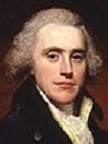


















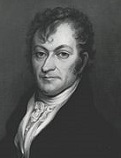


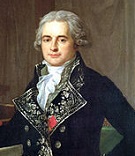










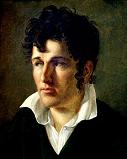

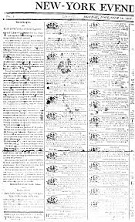
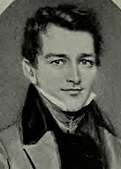
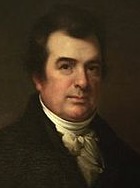



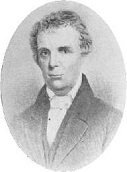
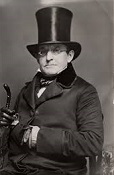



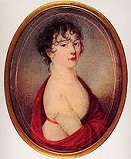
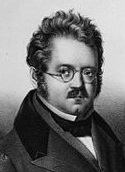


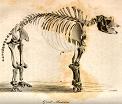
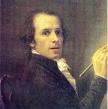
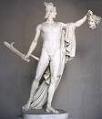
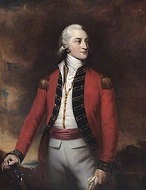
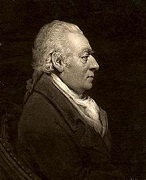
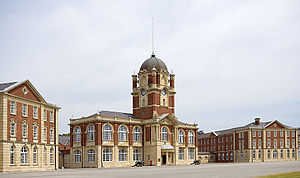


1801 On Jan. 1 the 1800 Acts of Union with Ireland come into effect, dissolving the Irish Parliament, giving it 32 peers in the British House of Lords and 100 members of the House of Commons, with the new U.K. Parliament meeting on Jan. 22; English king (since Oct. 25, 1760) George III (1738-1820) becomes king of the United Kingdom of Great Britain and Ireland (until Jan. 29, 1829), officially giving up Edward III's claim to the throne of France; his wife (since Sept. 8, 1761) Charlotte of Mecklenburg-Strelitz (1744-1818) becomes queen, adding the title to electress of Hanover of the HRE until her hubby is promoted to king of Hanover on Oct. 12, 1814, allowing the Christmas tree to be introduced to England; William Pitt the Younger becomes PM #1 (until Mar. 14); the Union Jack as the official flag; Ireland's parliament is dissolved, and the Irish are forced to elect reps. to the British Parliament; Ireland begins to be all about nationalist movements springing up to get it repealed and regain home rule, lasting well into the 20th cent. On Jan. 1 the U.S. Marine Band makes its debut at the White House, which is actually painted gray until 1813. On Jan. 1 war secy. (since 1800) Samuel Dexter becomes treasury secy. #3, becoming the lucky guy who administers the oath of office to chief justice John Marshall before resigning on May 13 and heading back to Boston. On Jan. 31 Pres. Adams appoints his secy. of state John Marshall (1755-1835) as the 4th chief justice of the U.S. Supreme Court and 13th justice (until July 6, 1835) to replace Oliver Ellsworth (1796-1800) in a Supreme Court regarded as ineffectual, and he is sworn in on Feb. 4, serving simultaneously as secy. of state until Mar. 4; both Marshall and Thomas Jefferson are descended from William Randolph - so the nation is in good hands with Allstate? In Jan. French gen. Etienne Jacques Joseph Alexandre MacDonald (1765-1840) (of Scottish descent) leads the French army of Italy into Austria from the S over the difficult Splugen Pass, causing the Austrian emperor to seek peace; in Jan. extreme conservative Klemens Wenzel Nepomuk Lothar von Metternich (1773-1859) (who witnessed revolutionary excesses as a student in Strasbourg, souring him against them for life) begins his career as Austrian envoy to the elector of Saxony at the court of Dresden, where he develops all kinds of connections with the Poles and Russians, and goes on to maneuver Austria through the dangerous Napoleon era and land it on top, getting a promotion to prince along the way (1813) - with this new job I know I can get financing? On Feb. 9 after having the Hohenlinden knocked out of them, the Austrians sign the Treaty (Peace) of Luneville (Lunéville) (pr. lu-nay-VEEL) with Napoleon, and HRE Francis II again cedes the left bank of the Rhine to France (which is nice, since that's where the original Germanic Franks started out?), and concedes the breakup of the Holy Roman Empire, with all cessions made under Campo Formio reaffirmed; the Batavian, Helvetian, Cisalpine and Ligurian Repubs. are recognized, and the Louisiana territory is ceded by Spain to France; the grand duchy of Tuscany becomes the duchy of Etruria, given to the son of the duke of Parma; with Austria out of the war, Britain and France begin peace negotiations; on Feb. 9 the Armistice of Foligno stops the war between France and Naples. Like sausage, it's better if you don't see it made? On Feb. 10 knowing of his defeat before the electoral votes are formally counted on Feb. 11, U.S. Pres. Adams closes his admin. with his controversial U.S. Midnight Judges Act (Appointments) (Judiciary Act of 1801), which is passed on Feb. 27 by the outgoing Federalist-controlled U.S. Congress, repealing the 1789 act and reducing the Supreme Court from six justices to five, while raising the number of circuits from three to six and establishing five new judicial districts, for a total of 18, creating 16 circuit courts that Adams appoints Federalist officers to, incl. William Marbury (1762-1835) to the office of justice of the peace in the District of Columbia; the incoming Jefferson admin. views the act as a Federalist trick to keep a Repub. from being appointed to the court, and gets it repealed next year. On Feb. 11 the 1800 U.S. Pres. Election of Oct. 31-Dec. 3 is finally counted; Repubs. Thomas Jefferson and Aaron Burr tie with 73 electoral votes each (Adams 65, Pinckney 64, New York Federalist John Jay 1); when Burr refuses to withdraw in favor of Jefferson (did this system suck or what?), the election is then moved to the House of Reps. for the 1st time ever, which has a Federalist majority that was largely elected in 1798 and is now a lame duck; instead of conceding, Burr decides to use the Duck House to pick him, but Alexander Hamilton urges Federalists to vote for Jefferson as the lesser of two evils, and on Feb. 17 on the 36th ballot Vt. and Md. switch their votes to Jefferson, but since Federalist reps of four states cast blank ballots, Jeffybaby wins with only 10 out of the 16 states, while Burr wins four states and becomes vice-pres. (and becomes bitter about his whole also-ran life?); meanwhile John Adams' standing up to war pressure has borne fruit in a treaty with France, but news arrives too late to save his reelection - I ain't gonna work for Maggie's brother no more? On Feb. 27 the District of Columbia Organic Act of 1801 is passed by the U.S. Congress, placing the District of Columbia under their control incl. Washington County to the N and E of the Potomac River, Alexandria County to the W and S of the Potomac River, and leaving the charters of Georgetown and Alexandria untouched; next year the city of Washington, D.C. is incorporated, a mayor-city council govt. established, and a jail built. On Mar. 4 6 ft. 2.5 in. Va.-born Thomas Jefferson (1743-1826), AKA "the Red Fox", "the Scribe (Pen) of the Revolution", "the Father of the Declaration of Independence", "the Sage of Monticello", "the Moonshine Philosopher of Monticello", "the Man of the People", "Long Tom", "Mad Tom", "the Negro President" (owes his V to the Three-Fifths Compromise) becomes the 3rd U.S. pres. (until Mar. 4, 1809) in the 4th U.S. Pres. Inauguration, becoming the first pres. to be inaugurated at the U.S. Capitol in Washington, D.C., which he helped to design, and where he goes every Sunday for religious services in the House of Reps.; after he gets dissatisfied with the music at the Sunday services, and knowing that outgoing Pres. Adams invited them to perform at the Pres. Mansion earlier in the year, Jefferson gets the U.S. Marine Band (established on July 11, 1798) to play there, becoming a tradition; Jefferson names the music The President's Own, becoming the nickname for the band; the inauguration is tense and on the break of violence because Jefferson's view of govt. is 180 deg. out of step with Washington's and Adams', but it goes peacefully, setting a precedent until 2021?; Jefferson's First Inaugural Address calls America "the world's best hope", spurring Dr. Joseph Priestly in Mar. to write: "We can no longer say there is nothing new under the sun. For this whole chapter in the history of man is new. The great extent of our republic is new"; Aaron Burr (1756-1836) becomes the 3rd U.S. vice-president; 32-y.-o. snuff-loving becoming the first pres. to be inaugurated at the U.S. Capitol in Washington, D.C., which he helped to design, and where he goes every Sunday for religious services in the House of Reps.; the U.S. Marine Band plays for his inaguration, and he names the music The President's Own, which becomes a tradition; after he gets dissatisfied with the music at the Sunday services, he gets the U.S. Marine Band to play there; Jefferson's First Inaugural Address calls America "the world's best hope", spurring Dr. Joseph Priestly in Mar. to write "We can no longer say there is nothing new under the sun. For this whole chapter in the history of man is new. The great extent of our republic is new"; Aaron Burr (1756-1836) becomes the 3rd U.S. vice-president; 32-y.-o. snuff-loving Dolley Madison becomes his hostess, while his intellectual daughter Martha Washington Jefferson "Patsy" Randolph (1772-1836) becomes First Lady since he's a widower; next year Jefferson turns the State of the Union address from a speech into a written report sent to Congress, which is not changed for 112 years (until Pres. Wilson); the whole business is historic since Creation, becoming the first time a govt. changes hands between bitter political foes without violence, as ex-pres. Adams packs his bags and goes home to Quincy?; on Mar. 5 he appoints Am. Rev. War gen. Henry Dearborn (1751-1829) as U.S. war secy. #5 (until Mar, 4, 1809), and former S.C. gov. (1789-92) Charles Pinckney (1757-1824) as U.S. minister to Spain (until 1805), with the Mission: Impossible of getting Fla. from Spain and Spanish acquiescence in the transfer of La. from France. On Mar. 8 the Second Battle of Aboukir sees the British Expeditionary Corps begins a siege of Alexandria, establishing a beachhead against 4K French troops under Gen. Menou after an assault under Scottish-born Col. (later Lt.-Gen. Sir John Moore (1761-1809), followed on Mar. 21 by the Battle of Alexandria (Canope), where the British disprove the myth of French invincibility, although Lord Ambercrombie (b. 1734) is fatally wounded. On Mar. 12 Russian tsar (since 1796) Paul I (b. 1754) (always paranoid about suspected assassins) is assassinated by revolutionaries (those *!*? serfs and peasants?) in his bedroom in Mikhailovsky Palace in St. Petersburg, and on Sept. 5 despite announcing his wish to abdicate, his poetic, bookish son (Catherine II the Great's grandson) (handsome-pretty, with curly chestnut hair and blue-gray eyes like his grandmother) Alexander I (1777-1825) (whose portrait bears a striking resemblance to Russian pres. Vladimir Putin (1952-)?) is crowned tsar of Russia (until Dec. 1, 1825). On Mar. 14 after paying $83K in the last 3.5 years, Pres. Jefferson decides to quit paying their Muslim jizya, the dey of Tripoli orders the U.S. consular flagstaff to be cut down as a declaration of war, and Jefferson dispatches four warships sans Congressional action, later adding two more. On Mar. 14 British PM (since Dec. 19, 1783) William Pitt the Younger (1759-1806) resigns along with Viscount Castlereagh when George III rejects his plans for linking the Act of Union with Ireland with the emancipation of Irish Catholics, and approaches anti-emancipationist Henry Addington (1757-1844) about replacing him as PM, becoming British PM on Mar. 17 (until May 10, 1804). On Mar. 28 the Treaty of Florence between France and Naples cedes Naples' possessions in C Italy and the island of Elba, accepts French garrisons in several Italian towns, and closes harbors to British and Ottoman ships. On Mar. 31 the Danish colonies in the Virgin Islands surrender to the British; on Apr. 2 the British under adm. Sir Hyde Parker (1739-1807), aided by newly-promoted vice-adm. Lord Nelson (who accepts service under Parker despite rank) destroy most of the Danish fleet in the Battle of Copenhagen Roads (Harbor), during which Nelson ends up taking charge, and ignores a signal from Parker to withdraw by putting a telescope up to his blind right eye and declaring he can't see any signal; the Danish fleet is almost destroyed, but they hurt the British enough to sign a peace treaty on Oct. 23, allowing Denmark to quit the leaderless League of Armed Neutrality and flourish again, playing all sides; Nelson is created viscount for his big V - give me a box of Dutch Masters? In Apr. after being instigated by Napoleon, the Prussians march into Hanover and occupy it without resistance (until June, 1803). In late Apr. a combined British-Ottoman army advances on Cairo, and reaches it on June 21, taking the 13K-man French garrison on June 27. On May 2 Dem.-Repub. Party co-founder (with Pres. Jefferson) James Madison becomes U.S. secy. of state #5 (until Mar. 3, 1809), going on to supervise the Louisiana Purchase. On May 10 after a $225K bribe is refused by the Jefferson admin., the pasha (eyalet) of Tripoli declares war on the U.S., starting the First Barbary (Barbary Coast) (Tripolitan) War (ends June 10, 1805) (2nd in 1815) between the U.S. and Sweden vs. Tripolitania and Morocco; on July 17 the U.S. fleet arrives in Tripoli with the schooners USS Enterprise and USS Constitution (AKA Old Ironsides) to do battle with the Quran-thumping Muslim Barbary pirates, who claim the Quran gives them the right to make war on any nation not submitting to Sharia and take prisoners and booty - an early episode of Star Trek, and it's between the Stars and Strips and Islam? On May 14 Swiss-born Repub. financial expert Albert Gallatin (1761-1849), who was elected to the U.S. Senate in 1793 then ousted for not having been a U.S. citizen for the required nine years, then elected to the U.S. House of Reps. in 1795-1801, where he founded the House Ways and Means Committee (originally the Finance Committee) is appointed U.S. treasury secy. #4 by Pres. Jefferson (until Feb. 8, 1814), going on to create a treasury surplus by 1807 despite the Louisiana Purchase. In early June a British force lands on the Red Sea coast, and begins crossing the desert on June 19, scaring France's new Mamluk allies into dropping support. On May 20-June 9 the War of the Oranges sees Spain declare war on Portugal after it refuses the demand of Spanish minister Manuel de Godoy to enter into an alliance with France against its ally (since 1343) Britain as well as cede most of its territory; in Apr. French troops invade, and on May 20 they are joined by Spanish troops, taking the town of Olivenza (Olivenca) near the border, after which Godoy picks oranges at nearby Elvas and sends them to the queen of Spain with a message that he will now head toward Lisbon, after which Portugal folds, signing the Treaty of Badajoz on June 6, ceding Olivenza, Almeida and other border fortresses to Spain, and closing all ports to the British; on Sept. 29 John VI of Portugal also signs the 1801 Treaty of Madrid, agreeing to pay France a 20M franc indemnity and cede half of Guyana in N South Am., which becomes French Guiana. On July 4 the first public 4th of July reception is held at the White House, er, Executive Mansion in Washington, D.C. I'm walking on sunshine, whoa-oh? On July 15 the Concordat of 1801 (announced on Easter Sunday, 1802), signed in Paris by Napoleon and Pope Pius VII reconciles the French Consulate with the Roman Catholic Church, and reestablishes and governs the relations of the French Church with Rome for the next cent., esp. by recognizing Protestantism (both Lutheran and Calvinistic), Judaism, and Roman Catholicism as established religions entitled to state support and subject to state control; the consul appoints bishops, subject to confirmation by the pope, and the bishops choose their own clergy, paid by the govt.; the pope continues to control the Papal States, except Ferrara, Bologna, and Romagna; priests in Belgium and other outlying regions form the Petite Eglise (Little Church) outside Courlay in Deux-Sevres to oppose it, functioning without a priest; Joseph Fesch (1763-1839), half-uncle of Napoleon I is made archbishop of Lyons for helping bring the concordat about, and cardinal next year. On July 21 (5th anniv. of his death) the first Burns Supper is held in memoriam of Scottish poet Robert Burns by his friends in the Burns Club in Greenock, mostly merchants born in Ayrshire who knew him personally; next year they hold it on Jan. 29, then discover that his birthday is Jan. 25, making it an annual tradition; dinners incl. haggis, Scotch whisky, and recitation of his poetry, with plenty of bagpipes. On July 25 U.S. Rep. (Dem.-Repub., Ga.) (1795-1802) John Milledge (1757-1818) founds the city of Athens, Ga. (modern-day pop. 115K/192K) on the Oconee River as a site for the U. of Ga. (incorporated Jan. 27, 1785); on Nov. 4, 1802 he becomes Ga. gov. #26 (until Sept. 23, 1806), founding a land lottery for fair distribution of former Creek lands, reorganizing the state militia, and building a road to Tenn. through Cherokee lands; in 1804 he founds the city of Milledgeville, Ga. on the Oconee River in C Ga. NE of Macon (modern-day pop. 18.9K) as the Ga. state capital (until 1868); on June 19, 1806 he becomes U.S. Sen. from Ga., resigning on Nov. 14, 1809. On July 29 Robert Fulton demonstrates his submarine in France in an attempt to sell it to Napoleon - they are called frogs, right? In July British Col. Sir William Henry Clinton (1769-1846) leads a force of 3.5K men to the Portuguese island of Madeira SW or Portugal to forestall any French or Spanish attack; they are withdrawn next mar. after the signing of the Treaty of Amiens. On Aug. 9 the British under Gen. Hutchinson siege the French under Gen. Menou in Alexandria, and they surrender on Aug. 30; two weeks later the French embark for France, ending the Egyptian Occupation (begun 1798); on Oct. 9 peace preliminaries are signed; Egypt is recovered by the Turks, but anarchy and civil war soon reign, the Brits refuse to leave, and Egypt remains open to European intervention. On Oct. 1 the Peace (Treaty) of London is signed by Britain and France, with the French agreeing to evacuate Egypt, the news that they have already been expelled not reaching them yet. On Nov. 16 after getting pissed-off at the election of Dem.-Repub. Party leader Thomas Jefferson (1743-1826), the tabloid newspaper New York Post (originally New-York Evening Post) is founded in New York City by Founding Father Alexander Hamilton (1755-1804) and other Federalists with $10K "to inculcate just principles in religion, morals and politics", becoming the oldest daily newspaper in the U.S. to survive to modern times, with a modern-day circ. of 500K. In Nov. Tenn. becomes the first U.S. state to criminalize dueling - too bad about New Jersey? On Dec. 24 Md.-born Renaissance man Charles Willson Peale (1741-1827) displays the skeleton of a mastodon which he had had dug up in his nat. history museum in Philly. Edward Livingston (1764-1836), younger brother of Robert R. Livingston of La. Purchase fame becomes Dem.-Repub. mayor #46 of New York City (until 1803) as well as U.S. atty. for N.Y., showing heroism in fighting the yellow fever in summer 1803 until he contracts the fever himself, recovering only to find that one of his clerks mismanaged funds, causing him to resign and move to New Orleans, La. to practice law, repaying the debt with interest by 1826 while becoming friends with Andrew Jackson, becoming a U.S. rep. in 1823-9, U.S. sen. in 1829-31, U.S. secy. of state #111 in 1831-3, and U.S. minister to France in 1833-5. The Janissaries in Serbia kill vizier Hadzi-Mustafa in Belgrade and seize power, ruling Serbia independently under dahias while grinding the Serbs down, bringing them to the breaking point. Pope Pius VII begins unsuppressing the Society of Jesus (Jesuits), starting in Russia. Haitian blacks under self-educated freed slave Francois Dominique Toussaint L'Ouverture (the Opening) (1744-1803) (who fought under the banner of Spain before deciding to fight against all white foreigners, and was willing to settle for better treatment of slaves before switching to full abolition) conquer the Dominican Repub., developing a rep for "bloodless victories", after which L'Ouverture sends Napoleon a proposed constitution permitting the island's three racial groups to live in peace, but since Haiti is the richest colony in the New World, Napoleon orders 15K troops to oust him, planning to use it as a base to conquer the U.S. The East India Co. occupies the Gorakpur district, starting a conflict with the Gurkhas of Nepal. The N Indian village of Kanpur (in Uttar Pradesh on the Ganges) (modern pop. 2M) is ceded to the British, becoming a frontier station. The pork trade begins between Tahiti and the British convict colony of New South Wales. The Korean govt. frees its slaves, but private slavery continues until 1894; the govt. begins persecuting Catholics for its subversive idea that all men and women are equal in the eyes of a supreme deity - she's the size of an elephant, oh really? Robert R. "the Chancellor" Livingston (1746-1813), one of the Committee of Five that drafted the Declaration of Independence (with Thomas Jefferson, Benjamin Franklin, John Adams, and Roger Sherman) becomes minister to France (until 1804) just in time for the big purchase of I'm-so-happy-my-eyes-are-jellin' La. Dutch East India Co. explorer Sir (Petrus Johannes)(Pieter Jan) Truter (1747-1825) of the Cape judicial bench and British army physician Dr. William Somerville (1771-1860) begin an expedition; next year they explore Bechuanaland to buy cattle. The harbor town of Ashtabula on Lake Erie at the mouth of the Ashtabula River (55 mi. E of Cleveland, Ohio) is founded. The Royal Military College (RMC) is founded in Great Marlow and High Wycombe, Buckinghamshire, England by British CIC (1795-1809) Prince Frederick, Duke of York, with cavalry cmdr. Col. John Gaspard Le Marchant (1766-1812) as lt.-gov. #1, who produces able staff officers called Wycombites and introduces the idea that officers should be formally trained rather than learn on the job, introducing prof. merit-based training for future officers; in Oct. 1812 the college moves to specially-built bldgs. in Sandhurst in Berkshire, designed by English architect James Wyatt (1746-1813); in 1947 it is combined with the Royal Military Academy ("the Shop") in Woolwich (founded 1741) as the Royal Military Academy Sandhurst. The Cane Ridge Revival in Cane Ridge (near Paris), Bourbon County, Ky. (named by Daniel Boone after seeing bamboo growing there) in the Camp Ridge Meeting House (built 1791) (largest 1-room log cabin in North Am.) and attended by 20K is led by 18 Presbyterian ministers and several Methodist and Baptist preachers, esp. Port Tobacco, Md.-born Barton Warren Stone (1772-1844), who in 1804 leaves the Presbyterian Church and founds the Christian Church (Disciples of Christ) (New Lights) (Stoneites) back-to-the-1st-century movement, growing to 12K members by 1830 and forming the backbone of the Am. Restoration Movement, a form of Christian Primitivism (Restorationism) that has roots going back to Martin Luther. Johnny Appleseed arrives in Licking County, Ohio - sounds like a candy apple? Aaron Burr's daughter and her hubby start a fashion by honeymooning at Niagara Falls. French libertine Donatien Alphonse Francois, Marquis de Sade (1740-1814) is arrested on the orders of Napoleon I for writing the anon. porno books "Justine" and "Juliette", and imprisoned without trial; after being accused of seducing prisoners at Saint-Pelagie prison, he is tranferred to the harsher Bicetre Fortress, is declared insane in 1803 after his family intervenes, and ends up back in the insane asylum in Charenton where he spent 1789-90; after his wife Marie-Constance Quesnet is allowed to live with him there, the dir. Abbe Francois Simonet de Coulmier (1741-1818) lets him stage several of his plays for the public with inmates as actors, but this raises eyebrows, causing de Sade to be put in solitary confinement in 1809, while the plays are shut down in 1813; meanwhile in 1810 after being let out of solitary, the old lecher de Sade begins an affair with 13-y.-o. Madeleine Leclerc, daughter of an asylum employee, and continues training her to be his horsey until his 1814 death. (St.) Madeleine Sophie Barat (1779-1865) founds the Society of the Sacred Heart of Jesus in France for women, receiving papal approval in 1826 and founding 105 houses in several countries. Charles Lamb writes a Letter to Thomas Manning in which he issues the soundbyte "Logic is nothing more than a knowledge of words." The Bank of France is founded by a group of Parisian banks as a discount bank with a local monopoly on note issue. Pres. Jefferson asks Pierre Samuel du Pont de Nemours to prepare a nat. education plan, which is later incorporated into the French education code but not adopted in the U.S. The Society for the Encouragement of Nat. Industry is founded in France by chemist Jean-Antoine Chaptal (1756-1832), going on to organize industrial expositions in France, causing Napoleon to create him count of the empire in 1808, and count of Chanteloup in 1810. A Freemasonic Lodge is chartered in Charleston, S.C. by a British branch that backed England during the Am. Rev., and goes on to foment and back the U.S. Civil War?; it incl. many wealthy Jews prominent in the slave trade. German philosophers Georg Wilhelm Friedrich Hegel and Friedrich Wilhelm Joseph Schelling begin pub. The Critical Journal of Philosophy. Charles Didelot (1767-1837), inventor of flesh-colored tights moves to St. Petersburg to direct the ballet - eventually it takes its toll on your feet, legs, hip and back, but hey, we're serfs and can take it? Cornish artist Henry Bone (1755-1834) is appointed enamel painter to George III of England, going on to make many fine minatures. The first iron trolley tracks are built betwen Croydon and Wandsworth in England. Charles Nodier (1780-1844) succeeds Maximilian de Lorraine as grandmaster of the Priory of Sion (until 1844) :). The New Testament is translated into Bengali. English immigrant James Vassar founds a brewery in Dutchess County, N.Y., moving to Poughkeepsie, N.Y. in 1801 and capturing most of the customers in the river towns from Hudson to Newburgh; in 1810 his son, East Dereham, Norfolk, England-born Matthew Vassar (1792-1868) joins the family brewing business on Vassar St. in Poughkeepsie; in 1811 it burns down, and he takes over the mgt.; in 1814 after fighting in the War of 1812 he opens M. Vassar & Co. on Vassar St., becoming the largest brewery in the U.S.; in 1836 he builds a larger facility on the waterfront, with a cap. of 60K barrels/year, complete with its own fleet of sloops; in 1861 he founds Vassar College, becoming one of the first women's colleges in the U.S. Architecture: The neo-classical style Cathedral of St. Stanislas is built in Vilnyus (Vilnius), Lithuania as the 4th in a series dating from 1387. The 10-bedroom Frogmore Cottage (originally Double Garden Cottage) is built in Home Park, Windsor, Berkshire, England; built for Queen Charlotte; renamed Frogmore after Queen Victoria has breakfast there on June 28, 1875 and finds the "immense number of frogs" to be "quite disgusting"; in spring 209 Prince Harry and Meghan Markle (the Duke and Duchess of Sussex) move there from Nottingham Cottage. Inventions: English chemist Humphry Davy (1778-1829) invents the Arc Lamp, using charcoal sticks hooked to a 2K volt battery, creating an arc across a 4-in. gap, and calling it an arch lamp. The Jacquard punch-card controlled drawloom for figured fabrics is invented by Joseph Marie Jacquard (1752-1834); too bad, his exhibit loom in Lyons is destroyed by Luddites; in 1840 (six years after his death) a statue of him is erected on the site. German chemist Franz Karl Achard (1753-1821) opens the first sugar beet refinery in Gut Kernern near Steinau, Silesia, which is burned down during the Napoleonic Wars in 1806; afer Napoleon bans sugar imports in 1813, a sugar beet industry booms. Judge James Finley (1762-1828) builds the first iron chain suspension bridge at Jacob's Creek, Penn., and it catches on. The first commercial steamship, the Charlotte Dundas is built by Scottish engineer William Symington (1764-1831), who patents a horizontal steam engine directly linked to a crank, and on Jan. 4, 1803 it begins operating in the Forth and Clyde Canal. On Dec. 24 Richard Trevithick tests a high pressure (60 psi) engine, despite James Watt complaining that he should be hanged for it (Watt's engines run at 7 psi); on Dec. 27 a second test is made, and when it breaks down the travelers refresh themselves at an inn, returning to find the carriage a smoldering ruin. Shape notes are invented to facilitate congregational and community singing; in 1844 The Sacred Harp is pub., becoming a hit with Protestants in the Am. South. Science: Scottish botanist Robert Brown (1773-1858) arrives in Western Australia in Dec. aboard the Investigator, captained by Matthew Flinders (1774-1814), and spends 3.5 years collecting 3.4K species, 2K of them new; too bad, the Porpoise wrecks on his return voyage in 1805, and he loses much of his collection, but still saves 1.2K new ones, pub. them in 1810. Charles Hatchett (1765-1847) of the British Museum in London discovers the element Niobium (Nb) (#41) in columbine from North Am., and initially calls it columbite. panish physician Francisco Romero peforms the first open pericardiostomy to drain a pleural effusion, becoming the first cardiac surgeon. The giant water lily Victoria Regia ("Queen of the Night") is discovered in Amazon Territory. French mineralogist Rene Just Hauy (Haüy) (1743-1822) pub. the Law of Rational Indices for crystals. Joseph Jerome Lalande (1732-1807) pub. a catalog of 47,390 stars. On Jan. 1 Italian Theatine monk-astronomer Giuseppe Piazzi (1746-1826) discovers the first asteroid, Ceres, and German rising star mathematician Carl (Karl) Friedrich Gauss (1777-1855) computes its orbit using his new Least-Squares Method, which allows it to be found even after it goes invisible and emerges among a multitude of stars, causing him to be appointed dir. of the Gottingen Observatory for life in 1807, going on to become the greatest mathematician since antiquity - while juggling sausages? German chemist Johann Wilhelm Ritter (1776-1810) and English chemist-physicist William Hyde Wollaston (1766-1828) independently discover Ultraviolet Light beyond the violet - now the nightclubs will rock? William Wollaston shows that electricity producted by friction is identical to that produced by voltaic piles. The Pie Chart and Circle Graph are first used by William Playfair in England. William Smith of England draws "the map that changed the world", the first Geological Map (of England), founding the science of Stratigraphic Geology. Nonfiction: Hannah Adams (1755-1831), Evidences of Christianity. Sandy Addison, The Sugar House Book; contains a recipe for tomato-based ketchup. Xavier Marie-Francois Bichat (1771-1802), Anatomie General; introduces the term "tissues" (textures of the body with unique vital properties), and describes 21 types, founding the field of Histology. Johann Elert Bode (1747-1826), Uranographia; a catalog of 17,240 stars, beating the previous charts by 12K stars, with elaborate artistic representations of the constellations, which go out of fashion with astronomers after this. Jean-Antoine Chaptal (1756-1832), The Art of Making, Growing and Perfecting Wine (L'Art de Faire, de Gouverner et de Perfectioner les Vins). Carl Friedrich Gauss (1777-1855), Disquisitiones Arithmeticae; founds the mathematical field of Number Theory, incl. the theory of congruences, quadratic forms, and quadratic residues. Elizabeth Hamilton (1756-1816), Letters on the Elementary Principles of Education. Rene Just Hauy (1743-1822), Traite de Mineralogie (5 vols.); describes the Law of Rational Indices. August von Kotzebue (1761-1819), Das Merkwurdigste Jahr Meines Leens. Joseph Jerome Lalande (1732-1807), Histoire Celeste Francaise; contains a huge star catalog with many faint nearby stars. Alexander Mackenzie, Voyages. Antonio Scarpa (1752-1832), Saggio di Osservazioni e d'Esperienze Sulle Principali Malattie degli Occhi (Treatise on the Principal Diseases of the Eyes); classic text in ophthalmology. Jean Charles Leonard de Sismondi (1773-1842), De la Richesse Commerciale; backs Adam Smith. Helen Maria Williams (1761-1827), Sketches on the State of Manners and Opinions in the French Republic. Music: Ludwig van Beethoven (1770-1827), Die Geschopfe des Prometheus (ballet) (Vienna); Moonlight Sonata (Quasi una Fantasia) (Piano Sonata no. 14, Op. 27 no. 2 in C#-minor); not a lot of notes but each is so very perfect and important?; dedicated to his pupil and main squeeze Countess Julie "Giulietta" Guicciardi (1782-1856) ("the most beautiful woman in the whole world"), to whom he proposes, but her parents reject his suit for lack of sufficient social standing, the father saying "That chap Beethoven will never amount to anything"; the sonata receives the popular name in 1836 from poet and music critic Heinrich Friedrich Ludwig Rellstab (1799-1860), who is thinking of Lake Lucerne. Franz Joseph Haydn (1732-1809), The Seasons (oratorio). Antonio Canova (1757-1822), Perseus with the Head of Medusa (sculpture). Jacques-Louis David (1748-1825), Napoleon au Grand Saint-Bernard. Plays: Jean-Francois Ducis (1733-1816), Phedor et Vladimir, ou la Famille de Siberie; unlike his desert Arab play of 1795, this one is a flop, causing him to retire. Johann Gottfried von Herder (1744-1803), Adrastea: Events and Characters of the 18th Century (6 vols.) (1801-3). August von Kotzebue (1761-1819), Die Deutschen Kleinstadter (comedy). Manuel Jose Quintana (1772-1857), El Duque de Viseo; based on M.G. Lewis' "Castle Spectre". Johann Christoph Friedrich von Schiller (1759-1805), The Maid of Orleans (Die Jungfrau von Orleans) (Leipzig). Poetry: Thomas Campbell (1777-1844), Ye Mariners of England; The Soldier's Dream; The Battle of the Baltic. Hannah Cowley (1743-1809), The Siege of Acre: An Epic Poem. James Hogg (1770-1835), Scottish Pastorals. Louis-Jean Nepomucene Lemercier (1771-1840), Homere, Alexandre. Thomas Moore (1779-1852), The Poetical Works of the Late Thomas Little, Esq.; juvenile poems; pub. anon. Robert Southey (1774-1843), Thalaba the Destroyer. Novels: Clemens Brentano (1778-1837), Godwi oder Das Steineme Bild der Mutter. Francois-Rene de Chateaubriand (1768-1848), Atala, ou Les Amours de Deux Sauvages dans le Desert (Apr. 2); filled with exotic adventures by Native Ams. in the Deep South incl. Miss., La., and Fla., becoming a hit. Births: French botanist ("the Father of Paleobotany") Adolphe-Theodore (Adolphe-Théodore) Brongniart (d. 1876) on Jan. 14; son of Alexandre Brongniart (1770-1847); grandson of Alexandre-Theodore Brongniart (1739-1813). Scottish celeb letter-writer Jane Welsh Carlyle (nee Jane Baillie Welsh) (d. 1866) on Jan. 14 in Haddington; wife (1826-66) of Thomas Carlyle (1795-1881); known for a pseudo-lesbian relationship with novelist Geraldine Jewsbury, who hooks up with Walter Mantell in 1857; Virginia Woolf later writes an article for the Times Lit. Supplement on Geraldine's letters to Jane. Am. painter (father of the Hudson River School) Thomas Cole (d. 1848) on Feb. 1 in Bolton, Lancashire, England; emigrates to the U.S. in 1818. English Roman Catholic theologian-cardinal (1879-) John Henry Newman (d. 1890) on Feb. 21 in London; educated at Trinity College, Oxford U.; starts out an evangelical Calvinist who preaches that the pope is the Antichrist, then becomes an Anglican priest on May 29, 1825, then goes Roman Catholic in 1845, becoming a priest on May 30, 1847, followed by cardinal on May 12, 1879. Am. "Man and Nature" diplomat-philologist ("America's First Environmentalist") George Perkins Marsh (d. 1882) on Mar. 15 in Woodstock, Vt.; educated at Phillips Academy, and Dartmouth College. Am. rotary lathe inventor Immanuel Nobel the Younger (d. 1872) on Mar. 24; father of Alfred Nobel (1833-96). Am. navy capt. William Francis Lynch (d. 1865) on Apr. 1 in Norfolk, Va. French philologist Eugene Burnouf (d. 1852) on Apr. 8 in Paris; son of Jean Louis Burnouf (1775-1844); first to decipher ancient Persian cuneiform. Am. atty. (alcoholic) George Washington Adams (d. 1829) on Apr. 12 in Berlin; son of J.Q. Adams (1767-1848); educated at Harvard U. Austrian Viennese "Butterflies Waltz", "Schonbrunner Waltz" waltz composer ("the Mozart of Dance Music") Josef Franz Karl Lanner (d. 1843) on Apr. 12 in St. Ulrich, Vienna; father of August Lanner (1835-55); friend-rival of Johann Strauss I (1804-49). French paleontologist-geologist Edouard (Édouard) Lartet (d. 1871) on Apr. 15 in Castelnau-Barbarens, Gers; educated at the U. of Auch, and U. of Toulouse; father of Louis Lartet (1840-99). German physicist-psychologist (founder of modern experimental psychology) Gustav Theodor Fechner (d. 1887) on Apr. 19 in Gross-Sarchen (near Muskau), Lower Lusatia; educated at the U. of Leipzig. British Zionist Tory politician and social reformer for the poor and insane Anthony Ashley Cooper, 7th Earl of Shaftesbury (d. 1885) on Apr. 28 in London; educated at Harrow School, and Christ Church, Oxford U. Mexican gov. of Alta Calif. (last) (1832, 1845-6) Pio de Jesus Pico (d. 1894) on May 5 in Mission San Gabriel Arcangel; brother of Andres Pico (1810-76). U.S. secy. of state #24 (1861-9), U.S. Senator (R-N.Y.) (1849-61) and N.Y. gov. #12 (1839-42) William Henry Seward Sr. (d. 1872) on May 16 in Florida, Orange County, N.Y.; father of Frederick William Seward (1830-1915) and William Henry Seward Jr. (1839-1920).; educated at Union College. Am. Mormon pres. #2 (1847-77) (Freemason) ("the American Moses") Brigham (OE "bridge hamlet") Young (d. 1877) on June 1 in Whitingham, Vt.; son of John Young and Abigail "Nabby" Howe; brother of Lorenzo Dow Young, Phineas Young (1799-1879), Joseph Young (1797-1881), and John Young; marries 55 wives, only 21 of whom had never been married before. Italian republican patriot-philosopher Carlo Cattaneo (d. 1869) on June 15 in Castagnola (Milan?). German mathematician-physicist Julius Plucker (Plücker) (d. 1868) on June 16 in Elberfeld (Wuppertal); educated at the U. of Bonn, U. of Heidelberg, and U. of Berlin. French "Parable of the Broken Window" political economist Claude Frederic Bastiat (d. 1850) on June 30 in Bayonne. U.S. ("Damn the torpedoes, full speed ahead") adm. David Glasgow Farragut (d. 1870) on July 5 in Campbell's Station, Tenn.; first U.S. rear adm., vice-adm., and full adm. German physiologist Johannes Peter Muller (d. 1858) on July 14 in Koblenz. U.S. treasury secy. #18 (1845-9) Robert John Walker (d. 1869) on July 23 in Northumberland, Penn.; educated at the U. of Penn. English astronomer royal (1835-81) Sir George Biddell Airy (d. 1892) on July 27 in Alnwick; educated at Trinity College, Cambridge U. French mathematician-economist Antoine Augustin Cournot (d. 1877) on Aug. 28 Gray, Haute-Saone. German pterodactyl paleontologist Christian Erich Hermann von Meyer (d. 1869) on Sept. 3 in Frankfurt am Main. English Orientalist and Arabic scholar Edward William Lane (d. 1876) on Sept. 17 in Hereford. German inventor (in Russia) (Jewish) Moritz Hermann (Boris Semyonovich) von Jacobi (d. 1874) on Sept. 21 in Potsdam. Russian mathematician-physicist Mikhail Vasilyevich Ostrogradski (Ostrogradskiy) (d. 1862) on Sept. 24 in Pashenivka (modern-day Poltava Oblast, Ukraine); of Ukrainian descent; educated at the U. of Kharkiv. French statesman Lazare (Lazar) Hippolyte Carnot (d. 1888) on Oct. 6 in Saint-Omer, Pas-de-Calais; 2nd son of French Rev. engineer Lazare Carnot (1753-1823); brother of Sadi Carnot (1796-1832). Am. portraitist Henry Inman (d. 1846) on Oct. 10 in Utica, N.Y.; student of John Wesley Jarvis; paints Martin Van Buren and John Marshall. German physicist-astronomer-engineer-inventor Carl August von Steinheil (d. 1870) on Oct. 12 in Ribeauville, Alsace; educated at the U. of Erlangen, U. of Gottingen, and U. of Konigsberg. Belgian phenakistiscope physicist Joseph Antoine Ferdinand Plateau (d. 1883) on Oct. 14 in Brussels; educated at the U. of Liege. Argentine gen.-politician Justo Jose (José) Urquiza y Garcia (d. 1870) on Oct. 18 in Arroyo de la China, Entre Rios. German Spieloper opera composer Gustav Albert Lortzing (d. 1851) on Oct. 23 in Berlin. Am. scholar (pres. #10 of Yale College in 1846-71) Theodore Dwight Woolsey (d. 1889) on Oct. 31 in New York City; educated at Yale U., and Princeton U. German travel guide publisher Karl Ludwig Johannes Baedeker (d. 1859) on Nov. 3 in Essen, Prussia. Italian (Sicilian) "Norma", "La Sonnambula" bel canto opera composer Vincenzo Salvatore Carmelo Francesco Bellini (d. 1835) on Nov. 3 in Catania, Sicily. Am. abolitionist legislator-diplomat (Spiritualist) Robert Dale Owen (d. 1877) on Nov. 7 in Glasgow, Scotland; son of Robert Owen (1771-1858); emigrates to the U.S. in 1825. Am. evaporated milk inventor Gail Borden Jr. (d. 1874) on Nov. 9 in Norwich, N.Y.; grows up in Kennedy's Ferry (Covington), Ky. and New London, Ind. Am. abolitionist physician (founder of Perkins Inst. for the Blind and Mass. School for Idiotic Children) Samuel Gridley "Chev" Howe (d. 1876) on Nov. 10 in Boston, Mass.; educated at Brown U., and Harvard U.; husband (1843-) of Julia Ward Howe (1819-1910); father of Laura Elizabeth Howe Richards (1850-1943) and Maud Howe Elliott (1854-1948). Austrian dramatist-comedian Johann Nepomuk Eduard Ambrosius Nestroy (d. 1862) on Dec. 7 in Vienna. Am. Procter & Gamble co-founder William Procter (d. 1884) on Dec. 7 in Herefordshire, England; father of William Alexander Procter; grandfather of William Cooper Procter (1862-1934) and Henry Procter. German dramatist-journalist ("the Drunken Shakespeare") Christian Dietrich Grabbe (d. 1836) on Dec. 11 in Detmold. German Prussian banker-statesman Hermann von Beckerath (d. 1870) on Dec. 13 in Krefield, Rhenish Prussia. Am. politician-gen. Joseph Lane (d. 1881) on Dec. 14 in Bunscombe Count, N.C. Deaths: Irish-born Spanish viceroy of Peru (1795-1801) Don Ambrosio O'Higgins (b. 1720) on Mar. 18 in Lima. German-Polish painter Daniel Chodowiecki (b. 1726) on Feb. 7 in Berlin. Am.-born Canadian soldier-judge Joshua Winslow (b. 1726) in June in Quebec City, Quebec. English writer Hester Chapone (b. 1727) on Dec. 25 in Hadley, Middlesex: "Though men's ways are unequal, the way of God are equal, and with him even women shall find justice." Chilean priest Manuel De Lacunza (b. 1731) on June 18 in Imola, Cisalpine Repub. (found dead beside the road after a walk). Am. Rev. turncoat gen. (the original "I shot the sheriff"?) Benedict Arnold (b. 1741) on June 14 in London - he just had to die on the 26th anniv. of the founding of the U.S. Army, AKA Flag Day? Scottish-born British lt. gen. Sir Ralph Abercrombie (b. 1734) on Mar. 28 in Alexandria, Egypt (KIA); dies aboard HMS Foudroyant seven days after the Battle of Alexandria. Swiss phrenology founder Johann Kaspar Lavater (b. 1741) on Jan. 2 in Zurich (shot in 1799 by a French grenadier). Am. theologian Jonathan Edwards Jr. (b. 1745) on Aug. 1 in Schenectady, N.Y. Bohemian violinist-composer Carl Stamitz (b. 1745) on Nov. 9. Italian composer Domenico Cimarosa (b. 1749)on Jan. 11 in Venice (intestinitis); dies while preparing to return to St. Petersburg, leaving 60+ operas; an inquest finds no evidence of poisoning. Russian tsar Paul I (b. 1754) on Mar. 12 in St. Petersburg (assassinated). German margrave Charles Louis, hereditary prince of Baden (b. 1755) on Dec. 16 in Arboga. Austrian archduke Maximilian Francis (b. 1756) on July 21 in Hetzendorf Palace, Vienna; dies before Beethoven can dedicate his First Symphony to him. German Romantic poet Novalis (Baron Friedrich von Hardenberg) (b. 1772) on Mar. 25 in Weissenfels. Am. celeb Philip Hamilton (b. 1782) on Nov. 23 (Mon. eve.) in Weehawken, N.J. (killed in a duel with George I. Eacker); son of Alexander Hamilton, who is overcome with grief, and is later killed in the same spot with the same set of dueling pistols, and attended by the same physician Dr. David Hosack (1769-1835).

















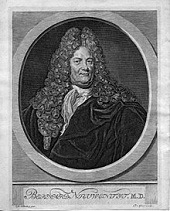


















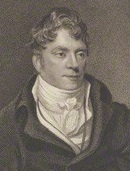
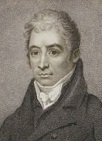
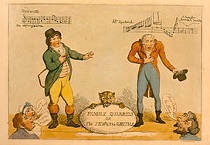


1802 On Jan. 1 Thomas Jefferson writes a letter to the Danbury Baptist Assoc. in Conn., using Roger Williams' phrase "wall of separation between church and state"; "Believing with you that religion is a matter which lies solely between Man & his God, that he owes account to none other for his faith or his worship, that the legitimate powers of government reach actions only, & not opinions, I contemplate with sovereign reverence that act of the whole American people which declared that their legislature should 'make no law respecting an establishment of religion, or prohibiting the free exercise thereof', thus building a wall of separation between Church & State. Adhering to this expression of the supreme will of the nation in behalf of the rights of conscience, I shall see with sincere satisfaction the progress of those sentiments which tend to restore to man all his natural rights, convinced he has no natural right in opposition to his social duties"; the same week he attends a church service in the U.S. Capitol, where the sermon is by Mass.-born Baptist minister John Leland (1754-1841), who arrived on Jan. 1 with a giant cheese from the people of Cheshire, Mass., causing him to become known as the Mammoth Priest, and who writes the immortal soundbyte: "To read in the New Testament, that the Lord has ordained that those that preach the gospel shall live by its institutions and precepts, sounds very harmonical; but to read in a state constitution, that the legislature shall require men to maintain teachers of piety, religion and morality, sounds very discordant"; too bad, after the issue seems settled, Here Comes Marx, and by the late 20th cent. the ACLU (Anti-Christian Litigation Union?) is running a systematic campaign to twist Jefferson from the Saint of Church-State Separation into the Saint of Secularism, citing his letter as if it were part of the U.S. Constitution in a master plan to pressure judges into creating a new Bill of Rights that incl. "freedom from religion", seeking to remove all religious references from public life by force Commie-style, even the expression of individual opinion i n public institutions?; by the 2020s the ACLU is backing the extreme leftists in denigrating Jefferson as a white supremacist - I forgot the italics this time bahbahbahbah dadangdangdiddy? On Jan. 26 Congress passes an act calling for a library to be established in the U.S. Capitol. On Jan. 26 the Italian (formerly Cisalpine) Repub. is created in Lyons, with Napoleon as pres. #1 (ends 1805). In Jan. after his first newspaper The Porcupine fails in 1801, crusading pamphleteer William Cobbett (1763-1835) founds Cobbett's Weekly Political Register, which is so radical that in 1815 the govt. attempts to er, stamp it out by imposing a 4d stamp duty on all newspapers, which he counters in Nov. 1816 by pub. a cheap (2d) pamphlet ed. sans news, becoming known as "tuppenny trash", reaching a circ. of 40K; he also pub. Parliamentary Debates, an exact record of Parliamentary debates, which is illegal but doesn't stop him, selling it to T.C. Hansard in 1812; the Political Register is pub. weekly until the the year after his death. On Feb. 2 Othello Pollard exhibits the first leopard in the U.S. in Boston (admission 25 cents). On Feb. 6 the U.S. Congress passes the U.S. Act for Protection of Commerce and Seamen of the United States Against Tripolitan Corsairs, a declaration of war against the Muslim pirate nations of N Africa - Pres. Obama missed this in his history classes? On Mar. 6 Princeton U.'s Nassau Hall burns down. On Mar. 16 the U.S. Military Academy (USMA) at West Point, N.Y. is authorized by Congress; it officially opens on July 4; later, when they can't find dark material for uniforms they end up using gray, causing the "plebes" (1st-year students) to become known as the Long Gray Line; it originates the tradition of class rings. You got to change your evil ways, baby? On Mar. 27 Britain makes peace with France, Spain, and the Batavian Repub. in the Treaty (Peace) of Amiens (negotiated by Charles, Lord Cornwallis), ending the War of the Second Coalition, officially recognizing the French Repub. (first and only time Napoleon's France is at peace), and surrendering all conquests to France except Trinidad (taken from the Brits in 1797) and Ceylon (which goes to the French puppet Batavian Repub. in the Low Countries, which also gets the Cape of Good Hope Colony); France agrees to evacuate Egypt, Naples and the Papal States, and recognizes the Repub. of the Seven Ionian Islands (Septinsular Repub.) (1800-15); Malta is restored by Britain to the Knights of St. John (Malta); France regains its possessions in Africa; Holland's West Indian possessions (Malacca et al.) are restored, except for Guiana; Holland loses the Cape of Good Hope and Ceylon but regains the East Indian possessions; Europe is finally at peace, but only until 1803 after the treaty provisions are reneged on; meanwhile Nappy turns his attention to internal affairs, and Lord Nelson lives peaceably in England until 1803. On Apr. 8 the Organic Articles for Protestants, written by French religion minister Jean-Etienne Marie Portalis (1746-1807) at Napoleon's direction divides the French Calvinist community into 6K-person congregations led by a pastor and elders chosen from the taxpayers; Lutheran churches are governed by directories, the majority of which are selected by the consul, which has the power to veto clerical appointments and changes in church doctrine; by 1804 Protestant pastors get govt. salaries; a Calvinist revival begins in Napoleonic France; meanwhile "Jews should participate as equals, like all other religions as permitted by our laws" (Portalis). On Apr. 19 Spain reopens New Orleans to Yankee Americans. In Apr. after Wahhabi (Sunni) king Abd al-Aziz sends his son Sa'ud (Saud) with a 12K-man army, they occupy Karbala (Kerbalah), Iraq, home of the #1 shrine of the Shiites to al-Husayn (al-Husain), destroy the jewel-encrusted dome covering it, kill the priests along with 4K inhabitants, and bring back a super booty - the Muslim MO? On May 1 Napoleon replaces the secondary schools with lycees, emphasizing technical and practical skills, and aimed at producing govt. officials, with scholarships for their children; women are barred from French lycees and univs. by understanding Papa Nappy. On May 1 Ecole Speciale (École Spéciale) Militaire de Saint-Cyr (ESM) (Special Military School of Saint-Cyr) is founded in Fontainebleu, France by Napoleon in the Maison Royale de Saint-Louis school for impoverished daughters of noblemen (founded in 1685 by Louis XIV); in 1808 they move to Saint-Cyr (W of Paris), becoming the #1 military academy in France, with the motto "Lis s'instruisent pour vaincre" (They study to vanquish). On May 3 the city of Washington, D.C. is incorporated, with a mayor appointed by the U.S. pres. and the city council elected by property owners. On May 19 Napoleon creates the Nat. Order of the Legion of Honor. On June 1 (Tue.) a Day of Thanksgiving in England to celebrate the Treaty of Amiens is the occasion of a sermon titled Reflections on War in Cambridge by Baptist minister Robert Hall (1764-1831); his statue is later erected in De Montfort Square in Leicester. On June 2 the British Factory (Health and Morals of Apprentices) Act improves factory working conditions in Britain from squalid to cruddy. On June 4 Sardinian king (since 1796) Charles Emmanuel IV abdicates after his French wife Marie Clotilde dies on Mar. 7, and his brother Victor Emmanuel I (1759-1824) becomes king of Sardinia (until Mar. 12, 1821). In June Sarah Trimmer (1741-1810) begins pub. The Guardian of Education (until Sept. 1806), becoming the first successful periodical dedicated to reviewing children's lit. in Britain. On July 19 after returning briefly to France to get plans and models of machinery and obtain financial support, Paris-born industrial chemist Eleuthere Irenee (Éleuthère Irénée) du Pont de Nemours (1771-1834) founds the Brandywine Powder Mills in Wilmington, Del. to manufacture black gunpowder, becoming the largest of its kind in the U.S., and Du Pont's only product until 1880. On Aug. 2 Napoleon becomes consul for life with the right to appoint his successor under a new 1802 French Constitution (of the Year X) approved by plebiscite (3.5M votes), which enlarges the powers of the Senate (ruled by the consul) and diminishes other legislative bodies; Swiss-born tribune Benjamin Constant (Henri-Benjamin Constant de Rebecque) (1767-1830) is removed from office and exiled next year, moving in with hot French writer Madame de Stael in Copulate, er, Coppet, Switzerland, which becomes a center of anti-Napoleon activity; too bad, after Napoleon abdicates in 1814, he returns to Paris, then flops and becomes his council of state during the Hundred Days, and gets exiled again by Louis XVIII, finally getting it right and supporting Louis Philippe in 1830 and becoming pres. of the council of state before croaking the same year - constant? On Oct. 3 William Wordsworth marries childhood friend Mary Hutchinson (1770-?), and writes the sonnet She Was a Phantom of Delight about her; "And now I see with eye serene/ The very pulse of the machine" - a clitoral erection? On Oct. 10 after a short stint in 1755-6, the pro-Whig pro-Romanticism Edinburgh Review, founded by literary critics Lord Francis Jeffrey (1773-1850) of Scotland, English clergyman Sydney Smith (1771-1845) et al. begins pub. (until 1929); Jeffrey becomes famous for his trenchant caustic treatment of poets Wordsworth, Keats, Shelly et al. On Oct. 17 the U.S. signs the Treaty of Fort Confederation (Tombecbe) with the Choctaw tribe, ceding 10K acres of land incl. the site of the fort, permitting Great White Father to redraw their old boundary line with the Brits for a consideration of a box of trinkets, er, $1. In Oct. Ludwig van Beethoven (d. 1827), who is suffering from intestinal troubles and failing eyesight, and grieving over the loss of his babe writes the Heiligenstadt Testament, asking doctors to use his remains to "explain the causes of my malady so that the world may be reconciled to me". In Oct. after the Jefferson V, Penn. begins to be called "the keystone in the federal union", and next year is called "the keystone in the democratic arch", causing it to become known as the Keystone State. In Oct. the city of Ashburn, Va. (modern-day pop. 43K) (originally Old Farmwell Station) 30 mi. NW of Washington, D.C. starts out as a 1,236-acre plantation owned by George Lee III; in 1841 Quaker atty. John Janney purchases a 580-acre tract W of Ashburn Road, calling it Ashburn Farm; it goes on to host campuses of George Washington U., Strayer U., and George Mason U., and become a hub for 70% of the world's Internet traffic. On Nov. 29 Ohio adopts a constitution; it is not called the Buckeye State until 1840 even though the state is full of buckeye trees, whose nuts have markings resembling the eyes of a buck. On Dec. 31 after his excesses cause a revolt which makes him flee from Puna to Bengal, Baji Rao II of Martha in C India signs the Treaty of Bassein with the East India Co., reinstating him in return for permitting British troops and accepting a British resident; too bad, his enemies don't accept the British presence, and they start another war next year. Ferdinando dies, and Parma and Piacenza are annexed to France, along with Piedmont. The French attack Cape Haiti, which is ably defended by giant-of-a-man Henri Christophe (1767-1820; the French set back the Haitian slave rebellion by capturing leader Toussaint L'Overture through treachery and imprisoning him in a cell on the France-Swiss border - giving him his choice of thin crust or Old Chicago style buttery crust? Nominal Whig John Quincy Adams of Mass. is elected to the U.S. Senate. Gabriel Duvall (1752-1844) of Md. is appointed by Pres. Jefferson as the first comptroller of the U.S. Treasury (until 1811). Russia obtains a voice in the appointment of hospodars in Moldavia and Wallachia. The town of Waterbury, Ct. (founded 1674) begins manufacturing brass products, becoming the "Brass Center of the World" until after WWII. The state of N.Y. bans horseracing (until 1821). Erfurt in Saxony comes under Prussian control. Georgia cedes its Western lands to federal authority, causing Pres. Jefferson to seek a compromise settlement of the Yazoo land claims, but states rights' champeen House Speaker John Randolph (1773-1833) of Roanoke, Va. (a skinny, beardless, impotent soprano always wearing tails, stovepipe hat, boots, and carrying a whip) blocks passage of the legislation and gets removed as speaker. English explorer Capt. Matthew Flinders (1774-1814) circumnavigates Australia, discovering cool pink Lake Hillier on Middle Island in Western Australia. Portuguese explorers cross Africa. Nguyen Phuc Anh ends the Tay Son Dynasty (founded 1789), and founds the orthodox Confucian Nguyen Dynasty in Vietnam (its last) (ends 1945) under the name of Emperor Gia Long (1762-1820), going on to subdue the Trinh Lords, unify the country, and move the capital S from Hanoi to Hue; meanwhile he plays the eager-to-Catholicize French off for military expertise by letting their Roman Catholic missionaries in. Scottish-born Jean Auguste Dominique Ingres wins a 4-year scholarship in Rome, and when it runs out he scrapes a living together by sketching portraits of French aristocrats on holiday, and ends up staying in Italy for 18 years (until 1824)? Pierre Samuel du Pont de Nemours returns with a wave of French Rev. refugees to France, where he participates in negotiations for the Louisiana Purchase, which he thought of to keep French troops from landing in New Orleans. James Monroe is sent by his buddy Thomas Jefferson to France as a plenipotentiary to aid Robert R. Livingston and Charles C. Pinckney. Thomas Paine returns to the U.S. in a ship placed at his service by Pres. Jefferson, where he is treated like manure for his Deist books, and hounded and harassed for the rest of his life by people trying to "save his soul"? The U.S. Congress establishes a local govt. for Washington, D.C., incl. a mayor and city council, with the local pop. allowed to elect council members only; in 1820 they are allowed to elect the mayor too; they are not allowed to vote for members of Congress or U.S. pres. Italian composer Giovanni Paisiello moves to Paris (until 1804), dir. the music for Napoleon's chapel; he then returns to Naples and keeps cranking out the operas. The Shakers of Enfield, Conn. sell the first seeds in packages. Francis Burney and her hubby Gen. Alexandere d'Arblay are imprisoned in France by Napoleon until his downfall in 1812, when they return to England - who loves you pretty baby, who's gonna help you through the night? Scottish born journalist James Thompson Callendar (1758-1803) pub. articles alleging that Pres. Jefferson "keeps and for many years has kept as his concubine one of his slaves. Her name is Sally. The name of her eldest son is Tom"; the first mention of Thomas Jefferson's alleged slave-bed tigress Sally Hemings (1773-1835). The Classicist Empire Period in Art begins. The Philolexian Society, based on a 1770s lit. society founded by Alexander Hamilton is founded at Columbia U. "to improve its members in Oratory, Composition and Forensic Discussion"; motto: Surgam (Lat. "I shall rise"); it later becomes the rival of the Peithologian Society (founded 1806 for freshmen; motto: Vitam Impendere Vero = Lat. "To devote one's life to truth"); the school colors later become Philolexian Blue and Peithologian White. Architecture: On Aug. 27 the West India Docks on the Isle of Dogs in London, England, built by Robert Milligan (1746-1809) open, becoming London's first enclosed docks, specializing in goods from the West Indies (rum, molasses, sugar). Sports: Charles Lennox, 4th Duke of Richmond (1764-1819) introduces horseracing at his ancestral home Goodwood House in Westhampnett, West Sussex, england. Inventions: Scottish engineer Thomas Telford (1757-1834) improves road-building technology. English chemist Thomas Wedgwood (1771-1805), son of Josiah Wedgwood makes the first photograph using paper coated with silver nitrate, causing his acquaintance Humphry Davy to pub. a paper on it, after which the search for a fixing agent begins - send us your pictures? Science: The scarce hard acid-resistant bluish metallic element Tantalum (Ta) (#73) (named for Tantalus, who was eternally tantalized by the gods) is discovered by Swedish chemist Anders Gustaf (Gustav) Ekeberg (1767-1813); until 1844 it is confused with niobium. Blind epileptic Kendal, Westmorland, England-born Quaker naturalist John Gough (pr. like gof) (Gow) (1757-1825), who touches plants to his lip and tongue to identify them pub. "An investigation of the method whereby men judge by the ear of the position of sonorous bodies relative to their own persons", describing echolocation; in 1804 he first pub. the elastocaloric effect after quickly stretching a piece of natural rubber (Caoutchouc) and feeling its sudden warmth on his lip, making a fan of James Joule, who undertakes more experiments, discovering that stretched rubber contracts when heated, causing the Gough-Joule Effect to be named; he goes on to discover hydrosere sucession whereby freshwater lakes dry out and become land, and to describe seed banks in soils. German epigraphist Georg Friedrich Grotefend (1775-1853) first deciphers Babylonian cuneiform writing. Sir William Herschel discovers binary stars, and in 1803-4 pub. observations on six cases, becoming the first changes observed taking place under gravity beyond the Solar System. English chemist Luke Howard (1772-1864) first scientifically defines the types of clouds, becoming the father of the science of Meteorology. Alexander von Humboldt discovers and explores the cold sluggish Humboldt Current, running along the Pacific coast of South Am. (500M cu. ft. per sec); he also makes a record-settling climb of Mt. Chimborazo in Ecuador, and doesn't reach the top but correctly traces his altitude sickness to lack of oxygen. German astronomer Heinrich Wilhelm Matthaus Olbers (1758-1840) discovers the asteroid Pallas, (2nd ever discovered) on Mar. 28; at this time he thinks of them as planets. French naturalist Jean-Baptiste Pierre Antoine de Monet, Chevalier de Lamarck (1744-1829) pub. Hydrogeologie, coining the term "biology", and claiming that continents march steadily westward; he also pub. Recherches sur l'Organisation des Corps Vivans, proposing the theory of evolution, but without describing a mechanism; meanwhile German naturalist Gottfried Reinhold Treviranus (1776-1837) pub. Biologie: Oder die Philosophie der Lebenden Natur, independently coining the term "biology", and proposing the transmutation of species - God holds it remarkably up his anus? Jean d'Aubuisson de Voisins (1762-1841) and Christian Leopold von Buch (1774-1853), students of German geologist Abraham Gottlob Werner (1749-1817) reject their teacher's Neptunism (oceanic origin of rocks) in favor of the volcanic origin of basalt - you can't always give your kids what they love, but with Werner you can? The silver-white hydrogen-absorbing metallic element Palladium (Pd) (#46) (which is later alloyed with gold to make white gold) is discovered by English chemist-physicist William Hyde Wollaston (1766-1828), followed in 1804 by the the metallic element Rhodium (Rh) (#45), useful in strengthening platinum. William Hyde Wollaston observes black lines in the solar spectrum - how can a heavenly body have black in it when white is right? English physicist Thomas Young (1773-1829) proposes the Wave Theory of Light in his Royal Society paper On the Theory of Light and Colours. Nonfiction: Jeremy Bentham (1748-1832), Civil and Penal Legislation. Nathaniel Bowditch (1773-1838), The New American Practical Navigator; becomes a standard text for sea navigation. Francois-Rene de Chateaubriand (1768-1848), Genie du Christianisme (The Genius of Christianity); a defense of the Roman Catholic faith written during his exile in England in the 1790s, where he threw off the atheist atmosphere of the French Rev. and reconverted; launches a Catholic revival through its aesthetic value, inspiring the Romantic movement; Napoleon becomes a fan, using it to win support from French Catholics until he turns on him and sends him into internal exile in 1807. John Debrett (1753-1822), Peerage (London). Timothy Dexter (1747-1806), A Pickle for the Knowing Ones; or Plain Truths in Homespun Dress (May); eccentric English merchant prince pub. a 24-page autobio. work containing no punctuation; to please critics, he adds a page of nothing but punctuation, writing, "They may peper and solt it as they plese". J.N. Forkel (1749-1818), Life of Johann Sebastian Bach. George Wilhelm Friedrich Hegel (1770-1831), System of Ethical Life; his slow start after getting a position at the U. of Jena in 1801. Luke Howard (1772-1864), Essay on the Modification of Clouds; defines cumulus (puffy popcorn), stratus (formless), and cirrus (ice crystal) cloud types, plus modifications incl. cirrostratus, stratocumulus, and cumulonimbus. Jean-Baptiste de Lamarck (1744-1829), Hydrogeologie; coins the term "biology", and claims that continents march steadily westward; Recherches sur l'Organisation des Corps Vivans; proposes the theory of evolution, but without describing a mechanism. Louis Le Clerk Milfort (1752-1820), Mémoires, ou coup-d'oeil rapide sur mes voyages en Louisiane, et mon séjour dans la nation Creeke; attempts to interest France in the lands of the Creek Indians. William Moultrie (1730-1805), Memoirs of the Revolution As Far As It Related to the States of North and South Carolina. William Paley (1743-1805), Natural Theology, or Evidences of the Existence and Attributes of the Deity; based on The Religious Philosopher: or, The RIght Use of the Contemplation of the World, for the Conviction of Atheists and infidels (2 vols.) (1715), by Dutch theologian Bernard Nieuwentyt (Nieuwentijdt) (Nieuwentjit) (1654-1718), introducing the watchmaker analogy of God. John Playfair (1748-1819), Illustrations of the Huttonian Theory of the Earth; popularizes and wins acceptance of the uniformitarianism of his mentor James Hutton (1726-97) as the basis of modern evolutionist geology. Friedrich von Schelling (1775-1854), Bruno; or On the Natural and Divine Principle of Things. Henry Thornton (1760-1815), An Enquiry into the Nature and Effects of the Paper Credit of Great Britain; an analysis of the 1797 British banking currency crisis, denying that the increase in paper credit caused it, opposing the Real Bills Doctrine, making him into the "Father of the Modern Central Bank", with fans incl. Knut Wicksell, Friedrich von Hayek, and John Maynard Keynes. Gottfried Reinhold Treviranus (1776-1837), Biologie: Oder die Philosophie der Lebenden Natur; coins the term "biology", and proposes the transmutation of species. Daniel Webster (1782-1852), The Rights of Neutral Nations in Time of War. Music: Ludwig van Beethoven (1770-1827), Symphony No. 2 in D-major, Op. 36. Art: John Constable (1776-1837), Dedham Vale; his best painting is of his own locality, "I should paint my own places best. Painting is but another word for feeling." Francois Gerard (1770-1837), Portrait of Madame Recamier. Benjamin West (1738-1820), Death on a Pale Horse. George Colman the Younger (1762-1836), The Poor Gentleman. Poetry: Rhijnvis Feith (1753-1824), Old Age. Vincenzo Monti (1754-1828), Bella Italia, Amate Sponde. Robert Southey (1774-1843), The Inchcape Rock, about 14th cent. Abbot Aberbrothock of Arbroath, who installs a warning bell on a dangerous sandstone reef 11 mi. off the E coast of Scotland, only to have it stolen by a pirate, who later is killed on the reef in bad weather. William Wordsworth (1770-1850), Composed Upon Westminster Bridge (Sept. 3); "Earth has not anything to show more fair." Novels: John Boydell (1719-1804), Boydell's Shakespeare; an ed. of Shakespeare illustrated by the best artists in England, launching a movement to reform publishing; now artists have more to paint than portraits of rich patrons. Francois-Rene de Chateaubriand (1768-1848), Rene; about young Frenchman Rene, who seeks refuge with the Natchez people of La., Madame de Genlis (1746-1830), Mademoiselle de Clermont. Sir Walter Scott (1771-1832), Minstrelsy of the Scottish Border (first novel). Madame Germaine de Stael (1766-1817), Delphine; semi-autobio. novel; introduces the femme incomprise to French lit. Births: French historian-dramatist (Jewish) Leon Halevy (Léon Halévy) (d. 1883) on Jan. 14 in Paris; son of Elie Halevy (1760-1826); brother of Jacques Fromental Halevy (1799-1862); father of Ludovic Halevy (1834-1908). Am. Gothic Revial architect Richard Upjohn (d. 1878) on Jan. 22 in Shaftesbury, England; emigrates to the U.S. in 1829. Am. "Evidences of Christianity" Congregationalist theologian-educator Mark Hopkins (d. 1887) on Feb. 4 in Stockbridge, Mass.; nephew of Samuel Hopkins (1721-1803); educated at Williams College and Berkshire Medical School; pres. of Williams College (1836-72). English physicist (developer of the Wheatstone Bridge) Sir Charles Wheatstone (d. 1875) on Feb. 6 in Gloucester; knighted in 1868. Scottish "Father of the Australian Wine Industry" and British resident of New Zealand #1 (1832-40) James Busby (d. 1871) on Feb. 7 in Scotland; emigrates to Australia in 1824. Am. "Over the River and Through the Woods" abolitionist activist-writer Lydia Maria Child (d. 1880) on Feb. 11 in Medford, Mass. Am. spiritualist Phineas Parkhurst Quimby (d. 1866) on Feb. 16 in Lebanon, N.Y.; teacher of Mary Baker Eddy. Belgian violinist-composer Charles Auguste de Beriot (Bériot) (d. 1870) on Feb. 20 in Leuven. French #1 Romantic "Les Miserables", "The Hunchback of Notre Dame" novelist-poet-playwright and politician (child prodigy) (Rosicrucian) Victor Marie Hugo (d. 1885) on Feb. 26 in Besancon (Besançon), Doubs; family is of aristocratic descent from Lorraine; father is a gen. in Napoleon's army who gets involved in plots against him with his wife's lover, who moves in; learns Gothic architecture from Charles Nodier; starts out a royalist then mellows into a suporter of republicanism, becoming a friend of Louis Philippe, duke of Orleans (1773-1850); writes in the nude so he can't be tempted to leave home? British Conservative MP (1828-48) Lord William George Frederick Cavendish-Scott-Bentinck (d. 1848) on Feb 27 in Welbeck Abbey, Nottinghamshire; son of William Bentinck, 4th duke of Portland (1768-1854). French tenor-composer Adolphe Nourrit (d. 1839) on Mar. 3 in Montpelier. English animal painter-sculptor Sir Edwin Henry Landseer (d. 1873) on Mar. 7 in London; knighted in 1850. Dutch historical novelist-poet Jacob van Lennep (d. 1868) on Mar. 24 in Amsterdam; son of David Jacob van Lennep (1774-1853). Am. mental health (civil rights) reformer Dorothea Lynde Dix (d. 1887) on Apr. 4 in Hampden, Maine; not to be confused with Dorothy Dix (1861-1951). Finnish philologist-physician Elias Lonnrot (Lönnrot) (d. 1884) on Apr. 9 in Sammatti, Nylandia. Am. Congregationalist theologian Horace Bushnell (d. 1876) on Apr. 14 in Litchfield, Conn; educated at Yale U. English statesman-writer George William Frederick Howard, 7th Earl of Carlisle (d. 1864) (Viscount Morpeth) on Apr. 18 in London; educated at Eton College, and Christ Church, Oxford U.; son of the 6th Earl of Carlisle (-1848). Am. abolitionist Unitarian clergyman William Henry Furness (d. 1896) on Apr. 20 in Boston, Mass.; father of Shakespearean scholar Henry Horace Furness (1833-1912). Am. fur trader Ceran de Hault de Lassus de St. Brain (d. 1870) on May 5 in St. Louis, La. Territory; partner of William Bent (1809-69). English feminist abolitionist writer-philosopher Harriet Martineau (d. 1876) on June 12 in Norwich; sister of James Martineau (1805-1900). U.S. Rep. (D-Ill.) (1843-9, 1857-9) Robert Smith (d. 1867) on June 12 in Peterborough, N.H.; founder of General Mills (1856). French journalist-politician Emile de Girardin (d. 1881) on June 22 in Paris. Scottish evolutionary geologist-writer Robert Chambers (d. 1871) on July 10 in Peebles, Peeblesshire; brother of William Chambers (1800-83). Am. Civil War Union maj. gen. David "Black Dave" Hunter (d. 1886) on July 21 in Troy, N.Y. French "The Three Musketeers", "The Count of Monte Cristo" novelist-playwright Alexandre Dumas pere (Dumas Devy de la Pailleterie) (d. 1870) on July 24 in Villers-Cotterets, Aisne; son of Saint-Domingue, Haiti-born mulatto French gen. Thomas Alexandre Davy de la Pailleterie (1762-1806), a republican not well liked by Napoleon, causing his family to be left in poor financial condition on his death; grandson of the Marquis de la Pailleterie and black Santo Domingan slave Marie Cessette Dumas; his father takes the name Dumas when joining the French army; father of Alexandre Dumas fils (1824-95) - do I look like I've got the word Dumas stamped on my forehead, yes? Mexican pres. (1851-3) Gen. Mariano Arista (d. 1855) on July 26 in San Luis Potosi. English "Araminta", "The Vicar" light-satirical poet and MP Winthrop Mackworth Praed (d. 1839) on July 28 in London; educated at Eton, and Trinity College, Cambridge U. Norwegian mathematician Niels Henrik Abel (d. 1829) on Aug. 5 in Nedstrand. Swiss-Russian Hess' Law chemist Germain Henri Hess (d. 1850) on Aug. 7 (July 26 Old Style) in Geneva; educated at the U. of Dorpat. Am. chocolateur (Quaker) John Cadbury (d. 1889) on Aug. 12 in Birmingham; father of John Cadbury (1834-66), Richard Cadbury (1835-99), Maria Cadbury (1838-1908), George Cadbury (1839-1922), Joseph Cadbury (1841), Edward Cadbury (1843-66), and Henry Cadbury (1845-75). Hungarian poet Nikolaus Lenau (Nikolaus Franz Niembsch Edler von Strehlenau) (d. 1850) on Aug. 25 in Schadat (near Temesvar) (modern-day Lenauheim, Romania); educated at the U. of Vienna. Am. Oregon missionary-physician Marcus Whitman (d. 1847) on Sept. 4 in Federal Hollow, N.Y.; husband of Narcissa Prentiss Whitman (1808-47). Am. businessman (Freemason) (founder of Purdue U.) John Purdue (d. 1876) on Oct. 31 in Huntingdon County, Penn. Hungarian patriot statesman and freedom fighter Lajos (Louis) Kossuth (Lajos Kossuth de Udvard et Kossuthfalva) (d. 1894) on Sept. 19 in Monok; educated at the U. of Budapest. Am. physician-inventor ("Father of Refrigeration and Air Conditioning") John Gorrie (d. 1855) on Oct. 3 on Nevis Island; Scottish parents; grows up in S.C. Portuguese pretender Dom Miguel de Braganca (Bragança) (d. 1866) on Oct. 26 in Lisbon; 3rd son of Joao IV and Carlota Joaquina. French engineer (inventor of the water turbine) Benoit Fourneyron (d. 1867) on Oct. 31 in Saint-Etienne, Loire. Welsh Big Ben civil engineer Sir Benjamin Hall, 1st Baron Llanover (d. 187) on Nov. 8 in Abergavenny, Monmouthshire. German philologist (pioneer in linguistics) August Friedrich Pott (d. 1887) on Nov. 14 in Nettlerede, Hanover. German poet-novelist Wilhelm Hauff (d. 1827) on Nov. 29 in Stuttgart. French archaeologist Paul-Emile (Paul-Émile) Botta (d. 1870) on Dec. 6 in Turin, Italy; son of historian Carlo Giuseppe Guglielmo Botta (1766-1837). Hungarian mathematician (co-founder of non-Euclidean geometry) Janos (Johann) Bolyai (d. 1860) on Dec. 15 in Kolozsvar, Transylvania (modern-day Cluj-Napoca, Romania); son of Farkas Bolyai (1775-1856). English "Phantasmion" poet Sara Coleridge (d. 1852) on Dec. 23 in Greta Hall, Keswick, Cumbria; 4th child and only daughter of Samuel Taylor Coleridge (1772-1834); mother of Herbert Coleridge (1830-61). German Young Germany journalist-critic Christian Ludolf Weinbarg (d. 1872) on Dec. 25 in Altona; educated at Marburg U. English "Orion" poet-critic Richard Hengist (Henry) Horne (d. 1884) on Dec. 31 in Edmonton, London. English "The Mountain Sylph" composer John Barnett (d. 1890) in Bedford; Prussian immigrant father. English statesman Henry George Grey, 3rd Earl Grey (d. 1894) (AKA Viscount Howick from 1807-45) on Dec. 28; son of the 2nd earl Grey (1764-1845); uncle of the 4th earl Grey (1851-1917). English Romantic painter Richard Parkes Bonington (d. 1828) in Arnold (near Nottingham); pupil of Antoine Jean Gros; brings the technique of English landscape painter John Constable to France. German Bavarian Neoclassicist sculptor Ludwig von Schwanthaler (d. 1848). Am. politician Josiah Quincy IV (Jr.) (d. 1882) in Boston, Mass.; son of Josiah Quincy III (1772-1864); father of Josiah Phillips Quincy (1829-1910); grandfather of Josiah Quincy (1859-1919); mayor of Boston (1846-8). Welsh poet Eben Fardd (Vardd) (d. 1863). Am. "Woodman, Spare that Tree" journalist-poet George Pope Morris (d. 1864) in Philadelphia, Penn. Am. Southern Baptist missionary (in China) Issachar Jacox Roberts (d. 1871) in Sumner County, Tenn.; educated at Furman U. Am. violinist-conductor (founder of the New York Philharmonic Society) Ureli Corelli Hill (d. 1875) in New York City. Am. writer-playwright (creator of Mrs. Santa Claus) James Rees (d. 1885) in Norristown, Penn. Deaths: Italian fencing master Domenico Angelo (b. 1717) in Eton, England. Am. naval commodore Esek (Essex) Hopkins (b. 1718) on Feb. 26 in Providence, R.I. French astronomer Antoine Darquier de Pellepoix (b. 1718) on Jan. 18 in Toulouse. English actor Roger Kemble (b. 1721). British Col. Isaac Barre (b. 1726) on July 20; namesake of Wilkes-Barre, Penn. Am. playwright John Leacock (b. 1729). Scottish novelist-physician John Moore (b. 1729) on Jan. 21 in London, England; father of Gen. Sir John Moore (1761-1809). Italian composer Giuseppe Sarti (b. 1729) on July 28 in Berlin. English physician-poet Erasmus Darwin (b. 1731). U.S. First Lady #1 (1789-1897) Martha Washington (b. 1731) on May 22 in Mount Vernon, Va. English portraitist George Romney (b. 1734) on Nov. 15 in Kendal. Am. Rev. War soldier Daniel Morgan (b. 1736). Portuguese architect Manuel Caetano de Sousa (b. 1738). English composer-organist Samuel Arnold (b. 1740) on Oct. 22 in Westminster, London; buried in Westminster Abbey. Am. jurist John Lowell (b. 1743) on May 6 in Roxbury, Mass. Dutch painter Jens Juel (b. 1745) on Dec. 27 in Copenhagen. Am. Rev. War soldier Salem Poor (b. 1747). Spanish duke of Parma (1765-1802) Ferdinand (b. 1751) on Oct. 9 in Fontevivo, Italy. Am. educator Samuel Phillips Jr. (b 1752) in Essex County, Mass. Russian sculptor Mikhail Kozlovsky (b. 1753) on Sept. 18 in St. Petersburg. French histologist Xavier Marie-Francois Bichat (b. 1772) on July 22; dies after falling down some steps in his lab - tripped on some tissue?








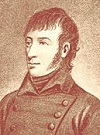

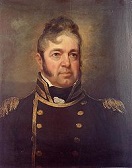











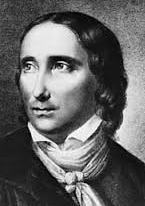










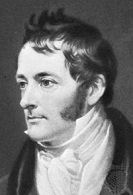





1803 After the Haitian Rev. and civil war damages Haiti's exports, S.C. reopens its slave trade, importing 40K Africans by 1807. By this year 40% of Calif.'s aborigine pop. has embraced Roman Catholicism thanks to the chain of Franciscan missions; European diseases reduce the pop. by two-thirds by 1833; Boston, Mass. Puritan merchant ship Lielya Byrd visits Calif., spending two weeks and making friends with Roman Catholic mission fathers, inaugurating a half-cent. of friendly relations. On Jan. 18 Thomas Jefferson sends a letter to Congress asking for $2.5K to pay for an expedition to the Pacific Ocean, which is later approved. On Feb. 19 Napoleon introduces the Act of Mediation to turn Switzerland into a federation of 19 cantons with a federal diet subservient to France; Grissons becomes a canton. On Feb. 19 Congress votes to accept Ohio's borders and constitution, and on Mar. 1 "Buckeye State" Ohio is admitted as the 17th U.S. state (free); there are now 8 free and 9 slave states, but N.J. is practically in the free camp; Xenia, Ohio (Gr. "xenia" = hospitality) in SW Ohio near Dayton is founded in an area known to the Shawnee as "place of the devil wind", and it is later hit by several severe tornadoes, incl. in 1974. Big day in U.S. history as the judiciary claims its turf? On Feb. 24 after Pres. Jefferson takes advantage of the failure of former secy. of state John Marshall (now U.S. chief justice) to deliver the commission to Federalist William Marbury to become justice of the peace in the District of Columbia, and orders his secy. of state James Madison not to deliver it, causing Marbury to appeal to guess what under the Judiciary Act of 1789 for a writ of mandamus compelling Madison to do so, the U.S. Supreme Court under clever John Marshall in Marbury v. Madison denies Marbury his commission, declaring that the act was unconstitutional, and that as chief justice he can't issue writs of mandamus, but at the same time he defuses the conflict between the admin. and the Federalist judiciary, while claiming the much greater new power of judicial review; the Supreme Court is now the supreme arbiter of the Constitution itself, and can declare acts of the Congress and U.S. pres. "unconstitutional"; "It is emphatically the province and duty of the judicial department to say what the law is"; since "the constitution is superior to any ordinary act of the legislature", "an act of the legislature, repugnant to the constitution, is void". On Mar. 3 the first impeachment trial of a U.S. judge John Pickering (1737-1805) begins; he is found guilty on Mar. 12, 1804 of decisions contrary to law and drunkeness, becoming the first U.S. federal official to be removed by impeachment. On Mar. 25 the Haputschluss (Final Recess) of the Reichsdeputations-Hauptschluss idemnifies the German princes who lost territory on the left bank of the Rhine River in 1801, elminating most of the ecclesiastical estates in Germany. In Mar. after stalling, the British evacuate Alexandria and give Egypt to the Turks, who install a viceroy. In spring the 1803 Cicadageddon sees trillions of red-eyed cicadas emerge at the same time as the usual green cicadas that emerge very 13-17 years, devastating crops; next in 2024. You know what I want, and I got what you need? Black slaves rock the whites' world in Haiti? On Apr. 7 Francois Dominique Toussaint L'Ouverture (b. 1744) dies in a French dungeon; the Haitian flag is created by tearing the white stripe from the French tricolor (get it?); on Nov. 18 after Haitian-born mulatto Jean-Pierre Boyer (1776-1850), who arrived with the French military in 1802 to put down the revolt switches sides when he learns they intend to reestablish slavery, the Haitians under pure African Gen. Jean Jacques Dessalines (1758-1806) defeat Napoleon's army at the Battle of Vertieres (Vertières) outside Cap-Haitien, securing the V of the former black slaves in Haiti over the French, who are suffering from yellow fever; 20K French troops are killed, and thousands of white colonists are massacred and the rest expelled; frustrated Napoleon now decides to sell French Louisiana; hence the slaves of Haiti save the U.S. from French takeover? On Apr. 12 France passes labor legislation outlawing unions while preventing employer combinations that act "unjustly or abusively" to lower wages and hours; workers (except agricultural and some unskilled) are required to carry a livret (passbook) that must be surrendered to the employer and validated. Might as well face it you're addicted to land? On Apr. 30 (Sat.) after the English refuse it, the 100M acre (828K sq. mi.) (2.14M sq. km.), 68M francs ($15M) Louisiana Purchase, negotiated for U.S. Pres. Thomas Jefferson by U.S. minister to France Robert R. Livingston, and surveyed by British-born Am. geologist George William Featherstonhaugh (1780-1866) is signed, reaching Washington, D.C. on July 4, doubling the size of the U.S. for less than 3 cents/acre by adding the La. Territory that stretches from the Gulf of Mexico in the S to Rupert's Land in the N, and from the Mississippi River in the E to the crest of the Rocky Mts. in the W, and prepares it for further expansion to the Pacific; it incl. the future states of Ark., Mo., Iowa, Okla., Kan., Neb., most of N.D. and S.D., Minn. W of the Mississippi River, NE N.M., N.Tex., Mont., Wyo., Colo. E of the Continental Divide, La. W of the Mississippi River (incl. New Orleans), and small portions of Alberta and Saskatchewan in Canada; on Oct. 20 the U.S. Senate ratifies it, and on Dec. 20 ownership of the territory is formally transferred from France to the U.S. in ceremonies held in Jackson Square in New Orleans (originally Plaza d'Armas); the largest state to be purchased (4th largest of the 50 states) is Montana; French privateer Jean Lafitte (1776-1854) (d. 1823?) establishes his own Kingdom of Baritaria in the swamps and bayous around New Orleans, claiming to command 3K men; too bad, aborigines aren't told they have to register ownership of their lands, allowing the federal govt. to claim them, incl. the La. Bayou, where oil cos. later make billions. On May 13 Mannheim is ceded to grand duke Karl Friedrich of Baden, and its fortifications demolished; the Palatinate cedes Heidelberg to him, and he becomes the patron of the U. of Heidelberg, restoring its prominence, founding the Grand Duchy of Baden on the E bank of the Rhine River in SW Germany in 1806 (until 1918). On May 13 the Second Anglo-Maratha (Mahratta) War (ends 1805) begins in C India between the British and the cool-dressing turbined bearded Hindu Mahrattas (Marathas) (cavalrymen) of C-W India (pop. 12M) and Sindhia of Gwalior; on Sept. 23 Sir Arthur Wellesley (later the Duke of Wellington) wins a decisive V at the Battle of Assaye, becoming his first major V, which he later calls his finest battlefield accomplishment. Not even fourteen months of peace in Europe and the dunderheads are at it again? On May 16 after the Maltese object to the Treaty of Amiens, and the British fail to evacuate, Britain declares war on France again, and the resulting Napoleonic Wars between France and various Allied coalitions last 11 years (until 1815); Adm. Horatio is appointed cmdr. of the British Mediterranean fleet, and blockades Toulon to stop a large French fleet under vice-adm. Pierre Charles Jean Baptiste Silvestre de Villeneuve (1763-1806) from invading England (until 1805). On May 22 the first public library in the U.S. opens in Salisbury, Conn. In May the slave ship Wanderer carrying Igbo and other tribesmen from Nigeria lands in Savannah, Ga.; too bad, as they are being transported to plantations on St. Simons Island on the York, 75 Igbo slaves rebel, kill the crew, then land in Dunbar Creek, after which they march singing into the water and commit mass suicide. On June 3 the Convention of Sulingen is signed with Prussia, requiring Hanoverian troops to withdraw over the Elbe River into Lauenberg; the Prussian minister, who tried to talk the king out of it resigns next year; on July 5 the Convention of Artlenburg, forced by Napoleon causes the army of the electorate of Hanover to be disbanded, after which 30K French occupy Hanover, pissing off George III of England, who on July 28 orders Lt. Col. Count Friedrich von der Decken (1769-1840), adjutant to Adolphus Frederick, duke of Cambridge to recruit the Hanoverian soldiers for the British army, causing them to emigrate to Lymngton, England, after which on Dec. 19 the King's German Legion is formed. On June 21 the West Indian island of St. Lucia, noted for the twin Pitons (Gros and Petit) comes under British rule. On July 23 the Society of United Irishmen, led by "the Irish Patriot" Robert Emmet (1778-1803) stage the disastrous poorly-planned Irish Insurrection (Rebellion) of 1803 in Dublin, which is suppressed by English CIC in Ireland gen. Henry Edward Fox (1755-1811) (son of Baron Henry Fox, who got rich as paymaster gen. in the Seven Years' War); on Oct. 21 United Irishmen leader Thomas Paliser Russell (1767-1803) is hanged and beheaded in Downpatrick Gaol; on Sept. 20 after telling his judges "Let no man write my epitaph", Emmett is hanged, drawn, and quartered in front of St. Catherine's Church on Thomas St. in Dublin after being held in the new Kilmainham Gaol (built 1796) in Dublin, which becomes infamous for maltreatment of prisoners, with men, women, and children not segregated and forced to live most of the time in the dark; more Irish are transported from Spike Island Prison in beautiful Cork harbor to Botany Bay to face cruel Gov. Captain William Bligh of "Mutiny on the Bounty" fame, incl. Michael Dwyer (1772-1825) of County Wicklow and his comrades Hugh Byrne, Martin Bourke and Arthur Devlin; at least the first Roman Catholic masses are permitted there by the "No Popery" Brits on the site of the future (1844) Church of St. Patrick in Sydney. On Aug. 17 Ft. Dearborn in Chicago, Ill. is built, named after U.S. war secy. (1801-9) Henry Dearborn. On Sept. 23 former gov. #1 (1796-1801) John "Nolichucky Jack" Sevier (1745-1815) is sworn in as gov. #3 of Tenn. (until Sept. 20, 1809); too bad, after losing a vote to become maj.-gen. of volunteer forces for Tenn. to Andrew Jackson, he insults his wife (since 1791) Rachel Donelson Robards Jackson with the soundbyte: "I know of no services you have rendered to this country other than taking a trip to Natchez with another man's wife", and after meeting outside Kingston, Tenn. on Oct. 1 and calling each other names, they call the duel off. On Oct. 31 the warship USS Philadelphia (launched Nov. 28, 1799), captained by William Bainbridge (1774-1833) founders on a reef near Tripoli, and is forced to surrender along with all 307 sailors; Tripoli adds the ship to their Muslim pirate navy. In Nov. after his counties of Winneburg and Beilstein (received by his family from the archbishop of Trier in 1637) are confiscated, Klemens von Metternich is sent to Berlin as Austrian ambassador, and he is granted the title of prince of the Austrian Empire, along with the lands of the abbey of Ochsenhausen as compensation; after Wirttemberg absorbs (mediatizes) his principality in 1806, he is allowed to retain his precious title and pass it on to his descendants - the aristocratic Borgs have completely assimilated him? On Dec. 12 the XII (12th) (Separate Election of President and Vice-President) amendment to the U.S. Constitution is sent by the Eighth Congress to the states for ratification (ratified 1804). Oxford, Ohio in the SW part of the state is set aside as the future side of educational institutions. Salisbury, Conn. opens a free library for children. Federal aid is sent to fire victims in Portsmouth, N.H. this year, setting a precedent later used to justify the creation of the Federal Emergency Management Agency (FEMA) in 1979; the N.H. Fire and Marine Insurance Co. is also founded to cover all bases. The landgraviate of Hesse-Cassel, famous for furnishing Hessian troops to help the Brits during the Am. Rev. War becomes an electorate under William II of Hesse-Cassel (1787-1867) (until 1867). Wahhabi leader Abd al-Aziz captures Mecca, and plunders Khazinat an-Nabawiyya (Prophetic Treasure) and other monuments to Muslim saints, covering the Kaaba with two sheets of black cloth called Qailan so that it won't be considered idolatry?); he is then is murdered in Deriye by a Shiite in revenge for the destruction of the shrine of al-Husayn in Karbala, and his son Sa'ud (Saud) ibn Abdul Aziz ibn Mohammed ibn Saud (Saud al-Kabeer) (-1814) becomes emir of Deriye (until 1814), capturing Medina. Mahmud Shah is ousted by his brother Shoja (Shuja) Shah Durrani (1785-1842), who becomes ruler of Afghanistan (until 1809). Little Britain, N.Y.-born DeWitt Clinton (1769-1828), nephew of U.S. vice pres. (since 1805) and N.Y. gov. #1 (1777-95, 1801-4) George Clinton becomes Dem.-Repub. mayor #47 of New York City (until 1810, then 1811-15); in 1811-13 he also becomes N.Y. lt. gov., followed by N.Y. gov. #6 in 1817-22 and 1825-8, going on to become known as "the Father of the Erie Canal". The first Russian expedition, led by naval officer Fabian Gottlieb von Bellinghausen (1778-1852) circumnavigates the globe. Fur trapper mountain man John Colter (OE "colt-herd") (1774-1813) becomes the first white man to enter Wyoming (Wyo.), later becoming a member of the Lewis and Clark Expedition. Van Diemen's Land is taken over by Britain, and used as a penal settlement (until 1853). After the news of Alexander Mackenzie's explorations turns on Scottish philanthropist Lord Thomas Douglas, 5th Earl of Selkirk (1771-1820) to the Lake Winnipeg and Red River area as a place to help the poor start a new life, he sends 900 poor Scottish farmers to settle Prince Edward Island and Upper Canada this year and next. Bird-watcher John James Audubon (b. 1785 in Haiti) is sent to the U.S. by his father to avoid being drafted into Napoleon's army, to family estate in Penn.; he later marries neighbor Lucy Bakewell. The College of William and Mary in Va. (founded 1693) founds the first school of modern history in the U.S. Chemistry is first offered as a subject by Am. colleges; Princeton U. had a prof. of chemistry in 1796. Ludwig van Beethoven enters his Heroic Period (ends 1812), featuring his most ppular works. After two big years (1800-1) of writing patriotic poems such as "Hohenlinden", Scottish poet Thomas Campbell (1777-1844) moves from Scotland to London, where he remains until the last year of his life, when he moves to Boulogne for his health. Robert Southey joins his friend Samuel Taylor Coleridge at Keswick in the Lake District of England, moving into Greta Hall for life. After becoming the first prof. architect in the U.S. Leeds, England-born Benjamin Henry Boneval Latrobe (1764-1820) is hired by his friend Pres. Jefferson to supervise construction of the U.S. Capitol, going on to supervise numerous projects in the Washington, D.C. area incl. the Washington Canal, Washington Navy Yard, Decatur House, St. John's Episcopal Church, and the porticos of the White House. The Technical College of Prague is founded. August von Kotzebue et al. found the Berlin periodical Der Freimutige (1803-7), which attacks the Romantic movement and Napoleon. French comic opera composer Francois Adrien Boieldieu (1775-1834) becomes chapel master to the Russian court at St. Petersburg (until 1812). After 4+ cents. of Bierzwang (Ger. "beer coercion"), where local authorities exclude beers brewed outside their walls, the Bierfreiheit (Ger. "beer freedom") is established in Germany under the influence of the Napoleonic conquest. After arriving in New York City last year and writing to Pres. Jefferson about needing to be naturalized to patent an invention, Irish-born (Roman Catholic) brewer Joseph Coppinger (-1825) founds Point Brewery in Pittsburgh, Penn. on the site of old Fort Pitt; in 1805 he enters a partnership to found a brewery in Jessamine County, Ky., resulting in a lawsuit that is settled by Rev. Stephen Theodore Badin, the first Roman Catholic priest ordained in the U.S.; in 1810 after moving to New York City he writes a letter to Pres. James Madison, proposing the establishment of a nat. brewery in Washington, D.C.; in 1815 he pub. The American Practical Brewer and Tanner, describing a method of malting Indian corn; on Apr. 6, 1815 after Jefferson saw an 1813 advertisement and wrote him expressing a desire to buy it, he writes a letter to ex-U.S. pres. Thomas Jefferson, proposing a subscription brewery in Washington, D.C.; Jefferson writes back, with the soundbyte: "In my family brewing I have used wheat as we do not raise barley." Architecture: The 60-mi. 4-lock Caledonian Canal, running between Moray Firth on the North Sea and Loch Linnhe on the Irish Sea, designed by James Watt in 1773 is begun by British engineer Thomas Telford (1757-1834) (opens 1823). San Souci Hotel is built in Ballston Spa, N.Y. (founded 1771) by real estate developer Nicholas Low (1739-1826), becoming the largest hotel in the U.S., attracting top politicians and the wealthy. Inventions: Henry Fourdrinier and Sealy Fourdrinier invent the Fourdrinier Screen for Robert's papermaking machine. Am. inventor Robert Fulton (1765-1815) invents the Side-Paddle Steamboat. The Shrapnel Shell, invented by British royal artillery lt. (later lt.-gen.) Henry Shrapnel (1761-1842) of England is adopted by the British army - when the fog rolls I keep seeing terrible things happening? Alan de Vilbiss invents the spray gun for delivering aerosol medication. Science: On Jan. 1 English chemist William Henry (1774-1835) pub. the paper Experiments on the Quantity of Gases Absorbed by Water, at Different Temperatures, and under Different Pressures, proposing Henry's Law, which states that the amount of dissolved gas is proportional to its partial pressure in the gas phase, with the soundbyte: "Water takes up, of gas condensed by one, two, or more additional atmospheres, a quantity which, ordinarily compressed, would be equal to twice, thrice, &c., the volume absorbed under the common pressure of the atmosphere." Jons (Jöns) Jacob Berzelius (1779-1848) of Sweden discovers the metallic element Cerium (Ce) (#58), the most abundant of the rare-earth group, named after the asteroid Ceres; the cerium metal group incl. #57 to #63 (lanthanum, cerium, praseodymium, neodymium, promethium, samarium, europium). The biggest scientific advance since ancient Greek times, and it takes a colorblind weather watcher? Colorblind English scientist John Dalton (1766-1844) proposes the modern Quantitative Atomic Theory of Matter, that it is composed of atoms of different weights that combine according to regular laws - it's like magic, good night Snow White? German scientist E.A. Inglefield puts two and two together with the recent discovery of infrared beyond the red, and proposes the existence of ultraviolet rays beyond the violet to explain Karl Wilhelm Scheele's 1777 experiment with silver chloride; too bad, he's too late. English chemist Smithson Tennant (1761-1815) discovers the rare (#61) metallic elements Osmium (Os) (#76) and Oridium (Ir) (#77) in platinum ores; the specific gravity of Ir (22.4) is exceeded only by Os (24), which is the most dense known substance; they are later used in the alloy osmiridium to strengthen platinum. Nonfiction: Ernst Moritz Arndt (1769-1860), Versuch einer Geschichte der Leibeigenschaft in Pommern und Rugen; helps end serfdom in Sweden. Claude Berthollet (1748-1822), Essai de Statique Chimique (2 vols.); disputes the doctrine of elective affinities with his Law of Mass Action. Joseph Black (1728-99), Lectures on the Elements of Chemistry (2 vols.) (posth.). Pieter Camper (1722-89), Oeuvres Qui Ont pour Objet l'Histoire Naturelle, la Physiologie et l'Anatomie Comparee (3 vols.) (Paris) (posth.). Lazare Carnot (1753-1823), Principes Fondamentaux de l'Equilibre et du Mouvement; first points out the energy of position in a gravitational field (potential energy) as separate from energy of motion (kinetic energy). Adamantios Coraes (1748-1833), Present Conditions of Civilization in Greece. J.N. Forkel (1749-1818), Life of Johann Sebastian Bach. Jakob Friedrich Fries (1773-1843), Reinhold, Fichte und Schelling. Rene Just Hauy (1743-1822), Traite Elementaire de Physique; proposes that crystals are made up of tiny cubes or polyhedra. Jean-Baptiste de Lamarck (1744-1829), Recherches sur l'Organisation des Corps Vivants. Joseph Lancaster, Improvements in Education as It Respects the Industrious Classes. Friedrich Carl von Savigny (1779-1861), Das Recht das Besitzes: Eine Civilistische Abhandlung (The Law of Property); argues that in Roman law possession always refers to "usucapion" (interdicts), and does not incl. a right to continued possession but only to immunity from interference, because posstssion is based on the consciousness of unlimited power; ends the old uncritical study of Roman law, making him a star of the German historical school of jurists. Jean-Baptiste Say (1767-1832), A Treatise on Political Economy (Traite d'Economie Politique); proposes Say's Law of Markets, that there can never be a gen. deficiency of demand or gen. glut of commodities in the whole economy, with the soundbytes "Products are exchanged for products", and "A glut can take place only when there are too many means of production applied to one kind of product and not enough to another"; makes converts to economic liberalism but pisses off Napoleon, who forces his retirement from the Committee of Finance. Music: Ludwig van Beethoven (1770-1827), Sonata for Violin and Piano, Op. 47 ("Kreutzer"). Carl Maria von Weber (1786-1826), Peter Schmoll and His Neighbors (opera) (Augsburg); a success, getting him the job of dir. of the Breslau Opera in 1806; too bad, his attempts at reform are resisted, and he quits in 1807, then gets charged with embezzlement in 1810 and banished from Wurttemberg, allowing him to bounce around to Prague, Berlin, and Dresden. Art: William Blake (1757-1827), The Angel of the Revelation (1803-5). John Sell Cotman (1782-1842), Ruins of Rievaulx Abbey. Jean-Antoine Houdon (1741-1828), Robert Fulton (sculpture) (1803-4). Joseph Anton Koch (1768-1839), Landscape with Noah. Sir Henry Raeburn (1756-1823), The Macnab; becomes the logo for John Deward and Sons Ltd. of London. J.M.W. Turner (1775-1851), Calais Pier. Benjamin West (1738-1820), Christ Healing the Sick. Plays: George Colman the Younger (1762-1836), John Bull; or, An Englishman's Fireside (comedy); his biggest hit. Thomas Dibdin (1771-1841), and William Reeve (1757-1815), Family Quarrels; or, The Jew and the Gentle (comic opera) (Covent Garden Theatre, London) (Dec. 18); stars comedian John Fawcett as Proteus, John Braham as Charles Supplejack, and Charles Incledon as Foxglove. James Kenney, Raising the Wind; about Jeremy Diddler, a real diddler (swindler). Heinrich von Kleist (1777-1811), Die Familie Schroffenstein (Ghonorez) (tragedy) (debut). William Reeve (1757-1815), The Caravan (comic opera) (Drury Lane, London); features an onstage water tank into which Carlos the Wonder Dog leaps to rescue a drowning child, becoming such a big hit that Sadler's Wells Theatre installs a 3-ft.-deep 8K gal. water tank beneath the stage, and after becoming co-owner and dir. of music, Reeve writes and produces about 80 musicals with librettos by Dibdin. Johann Christoph Friedrich von Schiller (1759-1805), Die Braut von Messina (tragedy) (Mannheim). Poetry: William Cowper (1731-1800), The Castaway; his spiritual torment; On the Loss of the Royal George; To Mary (posth.); his friend Mary Unwin (1724-96). Willem Leevend and Rhyijnvis Feith (1753-1824), De Ouderdom. Johann Peter Hebel (1760-1826), Alemannische Gedichte; "Bucolicize the whole world in the most attractive manner" (Goethe); Schatzkästlein des Rheinischen Hausfreundes (Treasure Chest of the Family Friend by the Rhine); giant hit in Germany. Thomas Moore (1779-1852), Odes and Epistles. Novels: Charles Brockden Brown (1771-1810), Memoirs of Carwin the Biloquist (1803-5). Ellis Wynn o Lasynys (1671-1734), Visions of the Sleeping Bard (Gweledigaetheu y Bardd Cwsc); satire on worldly follies; greatest Welsh prose work of modern times? Charles Nodier (1780-1844), Le Peintre de Salzbourg, Journal des Emotions d'un Tour Souffrant, suivi des Meditations du Cloitre; miserable Charles wants the monasteries to be restored. Jane Porter (1776-1850), Thaddeus of Warsaw; the 1790s Polish independence struggle; praised by Thaddeus Kosciusko. Births: British "Black-Eyed Susan" writer-dramatist ("the little Shakespeare in a camlet cloak") Douglas William Jerrold (d. 1857) on Jan. 3 near Cranbrook, Kent; grows up in Sheerness. English gen. Sir James Outram, 1st Baronet (d. 1863) on Jan. 29 in Butterley, Devonshire. Am. Civil War Confed. gen. Albert Sidney Johnston (d. 1862) on Feb. 2 in Washington, Ky.; serves in the U.S. army from 1826-34; in 1838 becomes secy. of war of the Repub. of Tex.; returns to the U.S. Army in 1849, then resigns in 1861 to join the Confeds., becoming their top gen. until Robert E. Lee. German poetic naturalist Karl Friedrich Schimper (d. 1867) on Feb. 15 in Mannheim. Am. Sutter's Fort founder John Augustus Sutter (Johan August Suter) Sr. (d. 1880) on Feb. 20 in Kandern, Baden, Germany; grows up in Neuchatel, Switzerland; father of John Augustus Sutter Jr. (1826-97). French "Night Patrol at Smyrna", "Monkey Connoisseurs" Romantic painter Alexandre Gabriel Decamps (d. 1860) on Mar. 3 in Paris; studies with Abel de Pujol; #1 French colorist; known for Oriental and Biblical subjects, and satires of Charles X. Irish-Am. Procter & Gamble co-founder James Gamble (d. 1891) on Apr. 3 in Enniskillen; son William Gamble marries Fanny (Franzeska) Wilhelmina Nast, daughter of Methodist preacher William Nast, and she becomes the first female grad. of German Wallace College in Berea, Ohio. English adventurer Sir James Brooke, Rajah of Sarawak (d. 1868) on Apr. 29 in Bandei, Hooghly, British India. German chemist ("the Father of Aricultural Chemistry/Fertilizer Industry") ("the Farmer's Chemist") Justus von Liebig (d. 1873) on May 12 in Darmstadt, Hesse; father owns a dye shop; educated at the U. of Erlangen; develops the Oxo beef bouillon cube. Mexican pres. (1863-4) Gen. Juan Nepomuceno Almonte (d. 1869) on May 15 in Nocupetaro, Caracuaro, Michoacan; alleged son of Jose Maria Morelos (1765-1815) and pure aborigine Brigida Almonte. English "Jorrocks' Jaunts and Jollities" sporting novelist Robert Smith Surtees (d. 1864) on May 17 in Durham. English "Pelham" novelist-playwright-politician (Rosicrucian) Edward George Earle Lytton Bulwer-Lytton, 1st Baron Lytton (d. 1873) on May 25 in London; educated at Trinity College, Cambridge U.; coins the phrases "the great unwashed", "the pen is mightier than the sword", "dweller on the threshold", "pursuit of the almighty dollar", and "It was a dark and stormy night." New England Unitarian Transcendentalist leader Ralph Waldo Emerson (d. 1882) on May 25 in Boston, Mass.; educated at Harvard U. English linguist-writer George Henry Borrow (d. 1881) on July 5 in East Dereham, Norfolk. Canadian rev. leader Thomas Storrow Brown (d. 1888) on July 7 in St. Andrews, N.B. Am. brand-challenged Texas cattleman (San Antonio, Tex. mayor #4, 1839-40) Samuel Augustus Maverick (d. 1870) on July 23 near Pendleton, S.C.; grandfather of Maury Maverick Sr. (1895-1954); educated at Yale U.; namesake of the term "maverick"; not to be confused with Mass. colonist Samuel Maverick (1602-70). French "Giselle", "Le Corsaire", "O Holy Night" composer-critic Adolphe Charles Adam (d. 1856) on July 24 in Paris; son of Louis Adam (1758-1848); teacher of Leo Delibes. Am. naval engineer and inventor John Ericsson (d. 1889) on July 31 in Langbanshyttan, Sweden; emigrates to the U.S. in 1848; inventor of the screw propeller, and builder of the "Monitor". English Crystal Palace architect Sir Joseph Paxton (d. 1865) on Aug. 3 in Milton Bryan, Bedfordshire. British Paulet Affair Adm. Lord George Paulet (d. 1879) on Aug. 12. Am. statesman-diplomat and U.S. Supreme Court justice #34 (1858-81) Nathan Clifford (d. 1881) on Aug. 18 in Rumney, N.H.; of old Yankee stock; great-great-grandmother Anna Smith was the accuser of Goody Cole. Belgian "Episode of the Belgian Revolution of 1830" Romantic painter Egide Charles Gustave, Baron Wappers (d. 1874) on Aug. 23 in Antwerp; teacher of Ford Madox Brown. Am. Presbyterian theologian Edward Beecher (d. 1895) on Aug. 27 in East Hampton, N.Y.; son of Lyman Beecher (1775-1863); educated at Yale U. U.S First Lady #11 (1845-89) Sarah Childress Polk (d. 1891) on Sept. 4 near Murfreesboro, Tenn.; wife (1824-) of James Knox Polk. Am. activist-preacher (Calvinist-to-Universalist-to-Roman Catholic convert) Orestes Augustus Brownson (d. 1876) on Sept. 16 in Stockbridge, Vt. English textile manufacturer Sir Titus Salt, 1st Baronet (d. 1876) on Sept. 20; created baronet in 1869. U.S. adm. Samuel Francis du Pont (d. 1865) on Sept. 27 in Bergen Point (Bayonne), N.J.; son of Victor Marie du Pont de Nemours (1767-1827). French "Carmen" Romantic writer-dramatist-archeologist-historian (novella pioneer) Prosper Merimee (Mérimée) (d. 1870) on Sept. 28 in Paris; educated at the Lycee Naoleon (Henry IV); known for trans. Russian lit. into French. French Sturm-Liouville Theory mathematician Jacques Charles Francois Sturm (d. 1855) on Sept. 29 in Geneva, Switzerland; of German descent. German physicist-meteorologist Heinrich Wilhelm Dove (d. 1879) on Oct. 6 in Liegnitz. English architect-inventor (of the Hansom Cab) (Roman Catholic) Joseph Aloysius Hansom (d. 1882) on Oct. 26 in York. Russian adm. Yevfimy Vasilyevich Putyatin (d. 1883) on Nov. 8. Am. "American Slavery As It Is" abolitionist leader Theodore Dwight Weld (d. 1895) on Nov. 23 in Hampton, Conn.; husband (1838-) of Angelina Grimke (1805-79). Austrian Doppler Effect mathematician-physicist Christian Andreas Doppler (d. 1853) on Nov. 29 in Salzburg. Canadian brewer John Kinder Labatt (d. 1866) in Queen's County, Ireland; emigrates to Canada in the 1830s. German architect Gottfried Semper (d. 1879) on Nov. 29 in Altona. Am. Tex. secy. of war #1 (1836-7)_ and U.S. Tex. sen. (1846-57) Thomas Jefferson Rusk (d. 1857) on Dec. 5 in Pendleton, S.C. French "Symphonie Fantastique" Romantic composer Hector Berlioz (d. 1869) on Dec. 11 in La Cote-Saint-Andre (near Grenoble); atheist father, Roman Catholic mother; likes to conduct concerts with 1K musicians. Irish novelist-dramatist Gerald Griffin (d. 1840) on Dec. 12 in Limerick. Am. Tex. Supreme Court chief justice and U.S. Sen. (D-Tex.) (1959-61) John Hemphill (d. 1862) on Dec. 18 in Chester District, S.C.; Northern Ireland immigrant father, Scots-Irish descent mother; educated at Jefferson College; known for living with his black Slave Sabina for over a decade and having two daughters by her. U.S. "Fifty-Four Forty or Fight" Dem. Ohio gov. #31 (1874-6) and U.S. Sen. (1837-49) William Allen (d. 1879) on Dec. 18/27 in Edonton, N.C. English screwy mechanical engineer Sir Joseph Whitworth (d. 1887) on Dec. 21 in Stockport. Estonian writer ("Father of Estonian Nat. Lit.") Friedrich Reinhold Kreutzwald (d. 1882) on Dec. 26 (Dec. 14 Old Style) in Kadrina. English comedian Charles James Mathews (d. 1878) on Dec. 26 in Liverpool; son of Charles Mathews (1776-1835). Korean sirhak scholar Ch'oe Han-gi (d. 1875). Canadian writer Susanna Moodie (d. 1885) in Suffolk, England. Deaths: Am. DOI signer Francis Lewis (b. 1713) on Dec. 30. German poet Johann Wilhelm Gleim (b. 1719) on Feb. 18 in Halberstadt. Italian painter Domenico Corvi (b. 1721) in Rome. Am. theologian Samuel Hopkins (b. 1721) on Dec. 20. Am. Rev. leader Edmund Pendleton (b. 1721) on Oct. 23; "Taken in all he was the ablest man in debate I ever met" (Thomas Jefferson). Am. Rev. leader and Boston lager brewer Samuel Adams (b. 1722). English sculptor Joseph Wilton (b. 1722) in London; dies broke after squandering daddy's fortune and giving up sculpting. German poet Friedrich Gottlieb Klopstock (b. 1724) on Mar. 14 in Hamburg. Swiss (Genevan) physicist Georges-Louis Le Sage (b. 1724) on Nov. 9 in Geneva, France. Am. journalist Benjamin Edes (b. 1732) on Dec. 11 in Boston, Mass. Italian mathematician Gregorio Fontana (b. 1735) on Aug. 24 in Milan. French playwright Jean-Francois de La Harpe (b. 1739) on Feb. 11 in Paris. French novelist-gen. Pierre Ambroise Francois Choderlos de Laclos (b. 1741) on Sept. 5 in St. Francis of Assisi Convent, Taranto, Italy. French mystical philosopher Louis Claude de Saint-Martin (b. 1743) on Oct. 23 in Aunay (near Paris). German poet-philosopher Johann Gottfried von Herder (b. 1744) on Dec. 18 in Weimar; leaves the unfinished Outline of a Philosophy of the History of Man, which founds the philosophical school of historical thought, stressing that "one must go into the age, into the religion, into the whole history, and feel one's way into everything" to become the "regenerated contemporary" of the past, treating history as a science and an "instrument of the most genuine patriotic spirit"; "Compare England with Germany: the English are Germans, and even in the latest times the Germans have led the way for the English in the greatest things"; "National glory is a deceiving seducer. When it reaches a certain height, it clasps the head with an iron band. The enclosed sees nothing in the mist but his own picture; he is susceptible to no foreign impressions"; "Notwithstanding the varieties of the human form, there is but one and the same species of man throughout the whole earth"; "A human soul is an individual in the realm of minds: it senses in accordance with an individual formation, and thinks in accordance with the strength of its mental organs... My long allegory has succeeded if it achieves the representation of the mind of a human being as an individual phenomenon, as a rarity which deserves to occupy our eyes." Irish-born Am. "Father of the U.S. Navy" Commodore John Barry (d. 1745) on Sept. 13 in Philadelphia, Penn. Dutch writer Hieronymus van Alphen (b. 1746) on Apr. 2 in The Hague. Italian dramatist Vittorio Alfieri (b. 1749) on Oct. 8 in Florence; last words: "Clasp my hand, dear friend, I'm dying." French painter Adelaide Labille-Guiard (b. 1749) on Apr. 24. German writer Wilhelm Heinse (b. 1749) on June 22 in Aschaffenburg. Swiss Argand lamp chemist Aime Argand (b. 1750) on Oct. 14 in Geneva (Malaria). German mystic Karl von Eckartshausen (b. 1752) on May 12 in Munich; leaves The Cloud upon the Sanctuary (Die Wolke uber dem Heiligtum), calling for the creation of the secret Council of Light, a body of living and dead mystics, which becomes a hit with occultists incl. the Order of the Golden Dawn. Austrian composer Franz Xaver Sussmayer (b. 1766) on Sept. 17 in Vienna; completed Mozart's "Requiem". Irish rebel leader Thomas Paliser Russell (b. 1767) on Oct. 21 in Downpatrick Gaol (hanged and beheaded). British surgeon-explorer George Bass (b. 1771) in Feb. Irish rebel leader Robert Emmet (b. 1778) on Sept. 20 in Dublin (hanged and beheaded).













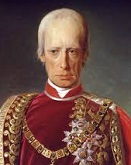






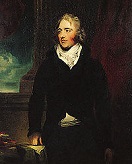










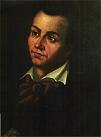


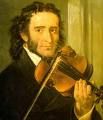



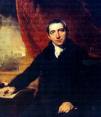


1804
Hey don't get mad, don't be mean, but I see you with my t-shirt on my head?
On Jan. 1 after a 2-year war the Repub. of Haiti
is declared by Gen. Jean Jacques Dessalines, who declares himself emperor Jacques I (gov.-gen. for life), becoming the first repub. on Earth to be led
by a man of African descent; France doesn't recognize Haiti until 1838.
On Jan. 26 justice (since Apr. 21, 1800) Alfred Moore resigns, and on May 7 after Pres. Johnson nominates him on Mar. 22,
Charleston, S.C.-born William Johnson (1771-1834)
becomes U.S. Supreme Cout justice #14 (until Aug. 4, 1834), becoming the first non-Federalist, known for frequent articulate dissents from the Federalist majority.
At long last, a victory for the oppressed Christians against the Muslim Ottoman Empire?
On Feb. 14 the Massacre of the Serbian Knights (Seca Knezova) (Knezes) in the C square of Valjevo, Serbia on Jan. 23-29
by the Janissary dahias triggers the First Serbian Uprising against four cents. of Ottoman rule, led by Grand Leader (Veliki Vozd)
Karadorde (Djordje) "Black George" Petrovic (1768-1817) (ends Oct. 7, 1813).
On Feb. 15 N.J. becomes the last Northern U.S. state to abolish slavery, joining R.I., Penn., Mass., N.H., Conn., Vt., N.Y., and Ohio; there are now 9 free and 8 slave states.
At long last, a victory for the oppressed Christians against the Muslim Ottoman Empire is degraded by the secular U.S. into a non-event?
On Feb. 16 U.S. Navy Lt. Stephen Decatur Jr. (1779-1820)
leads a successful raid into Tripoli Harbor to burn the captured anchored U.S. Navy frigate USS Philadelphia, earning him the praise of British adm. Horatio Nelson,
who calls it "the most bold and daring act of the age", along with a promotion to capt.; Pope Pius VII credits the U.S. with doing "more for the cause of Christianity than
the most powerful nations of Christendom have done for ages", causing James Madison and Thomas Jefferson to rebuff him, claiming that they exhibit "universal toleration
in matters of religion" and it was only about national interest - the fatal blindness of the fledgling U.S. would make Osama bin Laden laugh?
On Feb. 21 the Fulani War (Jihad) in modern-day Nigeria and Cameroon begins when Suni Maliki Muslim teacher
Usman dan Fodio (Usuman bii Foduye) (1754-1817) (Qadiri Sufi) is exiled from Gobir by his former student
King (since 1801) Yunfa, pissing him off and causing him to assemble a Fulani army to wage jihad against the Hausa kingdoms of N Nigeria,
losing the Battle of Tsuntua in Dec., losing 2K KIA incl. 200 hafiz, then capturing Kebbi and Gwandu in 1805, making
Gwandu into their base, then capturing the Gobir capital of Aikalawa in Oct. 1808 and executing Yunfa, establishing the
Sokoto Caliphate in 1809 (ends 1903), which becomes one of the largest states in Africa this cent., inspiring other jihads in W Africa.
On Feb. 25 a Repub. congressional caucus nominates Thomas Jefferson again for pres., and dumps "the Great American Rascal", "the Napoleon of the West" Aaron Burr for
George Clinton of New York for vice-pres.; the Federalist party is in disarray, and ends up supporting Charles Cotesworth Pinckney of S.C. for pres.. and
Rufus King (1755-1827) of N.Y. for vice-pres.
On Feb. 27 the U.S. Supreme (Marshall) Court unanimously rules in Little v. Barreme
that the U.S. pres. doesn't have "inherent authority" or "inherent powers" to ignore a law passed by the U.S. Congress.
In Feb. a conspiracy against Napoleon centered around "Club Moreau" is discovered in Paris, causing Gen. Jean Victor Moreau
to flee to the U.S., settling in Trenton, N.J. until 1812; Moreau could have done it, but he wanted no part of a plot to restore the monarchy, as did his Brech, Brittany-born co-conspirator
Georges Cadoudal (b. 1771), who is guillotined at Vincennes on June 25; gen.
Jean Charles Pichegru (b. 1761) dies mysteriously in prison on Apr. 5, found strangled; on Mar. 21 he goes too far when he has
Louis-Antoine-Henri de Bourbon-Conde, Duc d'Enghien (b. 1772), a relative of the
French Bourbon monarchs (and therefore a threat?) executed for a trumped-up plot against him, making the aristocrats of Europe equate him with the French Rev. era and lose their
hero worship of him, after which Joseph Fouche (Antoine Boulay de la Meurthe?) (Talleyrand?) utters the soundbyte "It is more than a crime; it is a political mistake";
Leo Tolstoy covers the incident in the opening book of his "War and Peace".
On Mar. 21 the French civil Code Napoleon (Napoleonic Code) (Code Civil des Francais) is proclaimed by Napoleon I, giving
religious freedom to the 480K Calvinists and 200K Lutherans in France, with the state paying the salaries of the pastors.
On Mar. 26 the U.S. Land Act of 1804 makes it easier for settlers to purchase western lands by reducing the price per acre to $1.64,
and setting the minimum purchase at 160 acres, which becomes the traditional U.S. homestead.
On Apr. 25 U.S. consul to Tunis and new U.S. agent to the Barbary States William Eaton
starts a military campaign against the Barbary nations sans authorization, hiring mercenaries then demanding the surrender of Derna, 2nd largest port after Tripoli, pissing-off
Pres. Jefferson, who sends Tobias Lear to negotiate and orders Eaton to withdraw.
On May 3 and May 25 Prussia and Russia mutually pledge to take up arms only in the event of a French attack upon Prussia or further aggression in N Germany; in Aug. after the
Prussian cabinet won't go for more vigorous action against Nappy (esp. demanding that French troops leave Hanover),
Christian von Haugwitz is replaced as Prussian foreign minister by Prince Karl August von Hardenberg (1750-1822),
who sets a policy of rapprochement with France, causing Haugwitz to kibbutz from the sidelines hoping that Nappy will make a mistake.
On May 10 after an assult on his war policies by the Genvillies, Foxites, and Pittites, British PM (since Mar. 17, 1801) Henry Addington resigns, and former PM (1783-1801)
William Pitt the Younger becomes PM of England again (until Jan. 23, 1806), and his Protestant Irish friend
Robert Stewart, Viscount Castlereigh (1769-1822)
becomes secy. of state for war and the colonies (until 1806); next Jan. after Pitt arranges it, Addington becomes lord pres. of the council, with the peerage of Viscount Sidmouth
to prevent him from sitting in the House of Commons.
Let us drink to Ricardo Montalban as Khan, er, Napoleon as Emperor?
On May 18 the French Senate and Tribunate proclaim Napoleon Bonaparte as Emperor Napoleon I, and a plebiscite ratifies it by 3,572,329 to 2,569; the
Marquis de Lafayette opposes it; on Dec. 2 after being persuaded by his uncle Cardinal Joseph Fesch (appointed French ambassador to Rome this year, while
Francois-Rene de Chateaubriand is appointed secy. of the legation to the Holy See by Napoleon, accompanying Fesch to Rome, only to quarrel, getting reappointed
as minister to Valais, Switzerland), Pope Pius VII assists in his coronation
in Paris, but Nappy insists on a magic moment, placing the crown on his own head; Nappy revives absolute monarchy while modernizing it, basing it on achievement
rather than birth, except when it comes to his succession, which goes to his male heir (incl. adopted children of his brothers), and then to his brothers;
he makes "Code Napoleon" man Jean Jacques Regis, duc de Cambaceres high chancellor of the empire, and resurrects pre-French Rev. finance minister
Nicolas-Francois Mollien (1758-1850),
making him a count in 1808; this all causes Beethoven to lose his respect for his hero,
tear up
the title page, and change the name of his newly-created E-flat
Third (3rd) Symphony, Op. 55
from Bonaparte Symphony (New Groves) to Eroica (Heroic) in May, allowing the published ms. to carry the inscription "Composed to celebrate
the memory of a great man", but not Napoleon, whom he calls a "tyrant"; it is dedicated to Lobkowitz, and first performed privately in Aug.; on Nov. 13 the
Shroud of Christ
is shown privately to Pope Pius VII at Turin en route from Rome to Paris to crown Napoleon.
The first 7-11 in New Jersey, and the clerk gets shot?
The thought that the Louisiana Purchase could lead to loss of relative importance of New England leads Mass. Sen. Thomas Pickering to form the
Essex Junto,
a group of men from Essec County, Mass. who prefers secession from the Union to this fate; members incl. Fisher Ames, Mass. sen. George Cabot,
Judge John Lowell and his son John "the Rebel" Lowell, former U.S. state secy. Timothy Pickering, merchant Stephen Higginson, Mass. Supreme Court justice
Tapping Reeve, and Theophilus Parsons, most of them the same people who run
Harvard U.,
who get secret intel from the British East India Co.?; they enlist vice-pres. Aaron Burr into their scheme to link New York
with New England, which depends on him winning the governorship of N.Y., but former U.S. treasury secy.
Alexander Hamilton (1757-1804)
contributes to Burr's defeat in the N.Y. gov. race in Apr. by the Repub. candidate, calling Burr "a dangerous man, and
one who ought not to be trusted with the reins of government"; this leads them to engage in a
pistol duel on July 11 (7-11) at dawn in
Weehawken, N.J.
on a grassy ledge above the Hudson River (at the end of the modern-day Lincoln Tunnel);
(after standing back-to-back and then taking 10 paces?) Hamilton fires wild (over his head?) and is shot through the heart and killed by Burr,
shouting "This is a mortal wound" (did he give away the shot, or was he shot first and couldn't aim?);
Burr calmly goes home and has breakfast with a friend, not even mentioning the duel, and is later charged with two counts of murder, but continues
to preside over the Senate and is never brought to trial for it; in 1806 Long Island, N.Y. Presbyterian minister
Lyman Beecher (1775-1863) gives a famous sermon
The Remedy for Dueling,
lambasting dueling's code of honor, which is widely distributed around the U.S.; after
black slaves
also begin demanding their rights to duel to protect their honor around 1816, dueling among whites begins to slack off? - it suddenly looks so savage?
The Lewis and Clark Expedition, or, The Original Mild-Mannered Forensic Anthropologist, or, White Devils Visit the Unsuspecting Indians?
On May 14 Virginians Capt. Meriwether Lewis (1774-1809)
(the ugly one) and 2nd Lt. William Clark (1770-1838)
(the handsome one), leading the 45-man Lewis and Clark (Corps of Discovery) Expedition (ends Sept. 1806)
(named by carpenter Louis Glass) ($2.5K in expense money allotted by Congress) push their three boats carrying 30 tons of supplies into the
Missouri River from Camp Wood near St. Louis, say goodbye to the cheering French village of St. Charles, and set out to explore the Am. West, looking for a water
route to the Pacific; Clark is accompanied by his black slave York (1770-1831),
and Lewis by his 150-lb. Newfoundland dog Seaman (purchased for $20 in Pittsburgh, Penn.);
they carry a 22-shot rifle; on
July 7 they leave St. Joseph, Mo. along the Missouri River; when one of their boats proves too big to cross a certain point in the river, they
send it back with 7 men; in Nov. after portaging the Great Falls, they stop and spend the winter in North Dakota at the Hidatsa-Mandan village
winter camp (who are friendly even though suffering from white man's smallpox?) on the banks of the frozen Missouri River; they hire
Hidatsa (Lemhi Shohone?) Indian interpreters Sacagawea (Sacajawea) (Sakakawea) (1788-1812)
(pr. suh-KAH-guh/juh-WEE-uh) (Hidatsa "bird woman") (Shoshone "boat launcher or puller") and her fur trader husband
Toussaint Charbonneau (1717-1843);
her child Pompy (Jean Baptiste) goes along; they name the Nez Pierce ("pierced nose") Indians from you know what; the Arikaras try to bring bear
spirits to life from clay models and call on the grizzlies to stop the white devils from destroying their way of life?
On July 27 after the bad experiences with Thomas Jefferson and Aaron Burr, the Twelfth (12th) (XII) Amendment
to the U.S. Constitution is ratified, requiring separate votes for pres. and vice-pres., starting with this year's election.
On Aug. 11 HRE Francis II proclaims himself Austrian emperor Francis I (Franz) (1768-1835)
in anticipation of giving up his title of HRE, and the Austrian Empire begins (ends 1867).
On Sept. 21 (St. Matthew's Day) the San Mateo II Hurricane
devastates Puerto Rico (first was in 1575).
On Sept. 27 after five failed attempts and a reward offered by Archduke

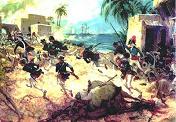

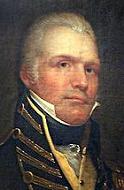
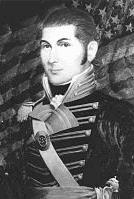



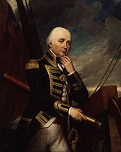
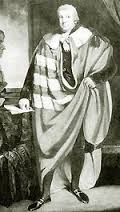
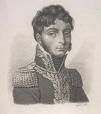



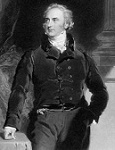



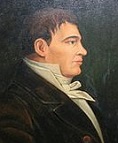
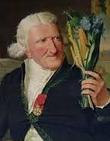


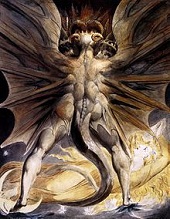
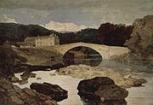
1805 The total state expenditure of Great Britain this year is a whopping £62.8M. On Jan. 11 Michigan Territory is created by an act of Congress. On Feb. 15 George (Johann George) Rapp (1757-1847) and his Rappists (Rappites) (Harmonists) (Harmonites) of Iptingen, Germany found the Harmony Society in Butler County, Penn., which soon grows to a pop. of 800 and becomes highly profitable, allowing them to sell it at a 10x profit in 1814 when they move to Indiana - lame white rapper jokes here? On Mar. 1 the pop. of Saint-Constant S of Montreal in Quebec send a petition to Napoleon asking them to help them rejoin France and "regain the glorious name of Frenchmen"; he doesn't do anything after his big D at Trafalgar. On Mar. 4 U.S. pres. #3 Thomas Jefferson is inaugurated for a 2nd term in the 5th U.S. pres. inauguration; former N.Y. gov. George Clinton (1739-1812) becomes the 4th U.S. vice-pres.; in his Second Inaugural Address, Jefferson issues the famous last words soundbyte: "The suppression of unnecessary offices, of useless establishments and expenses, enabled us to discontinue our internal taxes... What farmer, what mechanic, what laborer ever sees a tax-gatherer of the United States?" From the dern shores of tripping Monty Hall? On Mar. 6 a force of 500 Arab and Greek mercenaries and 54 U.S. Marines and soldiers led by Gen. William Eaton (1764-1811) and USMC First Lt. Presley Neville O'Bannon (1776-1850) leave Alexandria, Egypt on a 600-mi. trek to Cyrenaica (Libya), experiencing mutinies by the Muslim mercenaries before reaching the port city of Bomba, Libya, meeting the USS Nautilus under Oliver Hazard Perry, the USS Hornet under Samuel Evans, and the USS Argus under Isaac Hull, who pay the mercenaries and resupply them; on Apr. 27-May they capture the city of Derna (Derne) in NE Libya on "the shores of Tripoli" in the first overseas land combat by U.S. troops, ending the First Barbary War (begun 1801); after negotiations by U.S. envoy (Pres. Washington's personal secy. in 1784-99) Tobias Lear (1762-1816), it is returned to Ottoman control, and Derna is turned into a slave port; Eaton becomes a U.S. nat. hero; on Dec. 8 O'Bannon is presented with a Mameluke sword by the Ottoman viceroy, and later awarded a clone by his home state of Va., causing the USMC to begin issuing Mameluke swords to all commissioned officers for their dress uniforms in 1825; the U.S Marine Corps Hymn later celebrates the big V: "From the halls of Montezuma, to the shores of Tripoli,/ we fight our country's battles in the air, on land and sea"; they have to wait for the 1848 Mexican War to capture the halls of Montezuma too; verse 3: "If the Army and the Navy/ Ever look on Heaven's scenes/ they will find the streets are guarded/ By United States Marines." On Mar. 14 Albanian former tobacco vendor and Ottoman army lt. Mehmet (Muhammad) Ali (1769-1849) becomes gov. of Egypt, and pasha 2 mo. later on May 17 (until 1848); modern Egypt is born. On Mar. 15 the Repub. of Italy is scrapped, and the short-lived Kingdom of Italy is established (ends 1814) at Paris. On Mar. 28 the Bureaus of Charity (Bureaux de Bienfaisance) are centralized in France, and the ban on private and religious charitable foundations is lifted. On Mar. 29 Congress approves the construction of the Great Nat. Pike (Road), AKA the Nat. Road, AKA the Cumberland Road (begun in 1815, finished 1850), becoming the first federally-funded road system - what was that about farmers and mechanics never seeing a tax collector? On Apr. 11 Britain and Russia sign the Treaty of St. Petersburg, later joined by Austria and Sweden, forming the Third Coalition against France, which has been at war with Britain since May 16, 1803, causing Napoleon to abandon his planned invasion of Britain from four new French harbors (Ambleteuse, Wimereux, Boulogne, Etaples) and march his troops to Austria to kick their butts first. On May 20 Haiti adopts its (2nd) 1805 Haiti Constitution. On May 26 Napoleon is crowned king of Italy in Milan Cathedral. In the summer Aaron Burr sails to La. Territory from Pittsburgh in a lavish flatboat to meet with tainted Am. Rev. War hero Gen. James Wilkinson (1757-1825), who had been appointed as gov., and hatches the Burr Conspiracy to secede the territory W of the Alleghenies, incl. Tenn., Ky., Miss., and La., and form an independent repub. in the Mississippi Valley with British support. On July 4 the U.S. signs a treaty with the Wyandot; with the Sioux on Sept. 23. The pissed-off Serbs recapture Valjevo, Pozarevac and siege Belgrade, then chase the Janissary dahias to the island of Ada Kaleh on the Danube River and kill them, but when the Ottoman sultan attempts to negotiate with them they blow him off, causing him to send troops against them; on Aug. 18 the Battle of Ivankovac near Cuprija on the Great Moldava River sees 15K Turks under Hafiz Pasha outwitted and defeated by 2.5K Serbs under Karadorde Petrovic, forcing them to retreat to Nis, signalling the beginning of their downward slide in the Balkans. On Sept. 26 Napoleon's army crosses the Rhine River, executing "the greatest change of front ever known" (Philippe de Segur), aligning themselves on Oct. 6 facing S to reconquer Munich and Augsburg, and separate Archduke Ferdinand and Mack from the Russians and Austria. In Sept. at the urging of William Wilberforce (1759-1833), PM William Pitt (b. 1759) finally issues a formal document in favor of the slavery abolition bill, 4 mo. before his death Jan. 23. On Sept. 26 Rama Varma IX (b. 1751) dies, and his cousin Rama Varma X (Vellarapaliyil Thepetta Thampuran) (-1809) becomes ruler of Cochin (until 1809). On Oct. 15-20 Napoleon's French army wins a big V against the Austrian army under Karl Freiher Mack von Leibeich in the Battle of Ulm, trapping it and forcing it to surrender. Hands across the water, hands across the sky, or, Bloody Trick or Treat, What What? England gets its world-class naval hero? On Oct. 21 (Mon.) after the French fleet under vice-adm. Pierre Charles Jean Baptiste Silvestre de Villeneuve (1763-1806) breaks out of Toulon and eludes the British fleet under vice-adm. Horatio Nelson, 1st Viscount Nelson, 1st Duke of Bronte (b. 1758), then takes refuge in Cadiz and receives reinforcements from the Spanish navy, bringing them up to 33 ships (vs. 27 for the British), and slowpoke Nelson catches up and blockades it, the French break out of the harbor again, beginning the naval Battle of (Cape) Trafalgar (Britain's greatest sea battle?) between Gibraltar and Cape Roche outside Cadiz, resulting in a decisive V for the British, dashing Napoleon's hopes of invading England, and establishing British sea supremacy the next 150 years; Adm. Nelson, aboard his flagship HMS Victory leads the charge that breaks through the center of the French line between Bucentaure and Redoubtable, capturing 10 French and 11 Spanish ships, with no British ships lost, and a total of 1,666 British casualties (458 KIA and 1,208 wounded) vs. 13,781 French-Spanish casualties, incl. 3K POWs drowned in a storm after the battle; Victory suffers 57 KIA and 102 wounded, with Redoutable attempting to board her but suffering a devastating broadside from the 98-gun HMS Temeraire, commanded by Adm. Sir Eliab Harvey (1758-1830), known for recklessly gambling his family fortune in London, who also forces the surrender of the Fougueux, causing him to create the family motto "Redoubtable and Fougueux"; Nelson signals the famous message "England expects that every man will do his duty", and is wounded several times by French sharpshooters before meeting his death as the battle ends from a musket ball from Redoubtable that enters his left shoulder and lodges in his spine, dying at 4:30 p.m. and giving a last order to anchor the fleet, which is countermanded by his 2nd in command vice-adm. of the blue Cuthbert Collingwood (1748-1810), who succeeds Nelson as CIC, transferring his flag from the damaged Royal Sovereign to the Euryalus, attempting to tow damaged vessels until a storm wrecks many prizes incl. Redoubtable on the rocky shore while others are destroyed to prevent capture, getting Collingwood a promotion on Nov. 9 to vice-adm. of the red along with a peerage as Baron Collingwood of Northumberland, along with a £2K/year pension and his 3rd gold medal from Parliament (joining Nelson and Sir Edward Berry); Victory is towed by HMS Neptune to Gibraltar for repairs, then flies a black sail on its return voyage to England; Villenueve is captured by the English, and returned to France next year; in Nov. Adm. Horatio Nelson's elder brother William Nelson (1757-1835) is created 1st Earl Nelson of Trafalgar; Portugal restores relations with its old ally Britain, causing France to declare the 1801 Treaty of Badajoz canceled, leading to the 1807-10 Peninsular War. On Nov. 7 William Clark writes the soundbyte: "Great joy in camp! We are in view of the ocean, this great Pacific Ocean, which we have been so long anxious to see." You say goodbye and I say hello? On Nov. 15 after sighting 850-ft. Beacon Rock on the Columbia River, the Lewis and Clark Expedition sights the Pacific Ocean, bringing a closure to the exploration of the continent begun by Columbus 313 years earlier, Clark writing "I landed and formed a camp on the highest spot I could find, from this I could plainly see the extent of our journey in full view of the ocean... Ocean in view! O! The Joy!"; they first see the Calif. condor, describing it as probably the biggest bird in Am.; they then spend a miserable winter near the mouth of the Columbia River, discovering abundant wildlife and rich soil in modern-day Yakima Valley, Wash., which in the 20th cent. becomes known as "the Fruitbowl of the Nation"; they encounter Umatillas using sign language that they interpret as meaning they think the whites are from heaven, but actually they were complaining that the pale morons had shot a flying crane for no good reason? On Nov. 30 after the USS Constitution captured Tunisian vessels attempting to run the American blockade of Tripoli, causing the bey of Tunis to threaten war and send Tunisian envoy Sidi Soliman Mellimelli to negotiate full restitution and barter for tribute, he and his 11 attendants are greeted at the Washington Navy Yard with full military honors, becoming the first Muslim envoy to the U.S.; Mellimelli requests that concubines be supplied as part of his accomodations at a Washington hotel; after seeing a delegation of Native Ams. and finding that they didn't follow Moses, Christ, or Muhammad, he called them "vile heretics", guess what Islam would have done to the entire continent if it had discovered it first; on Dec. 9 Pres. Jefferson invites him to the White House for a Ramadan iftar dinner at sunset instead of the usual 3:30 p.m. to accomodate him; after Jefferson refuses to pay tribute, Mellimelli claimesthat he will be beheaded for failure, after which the Yanks agree to send gifts with him of equivalent value to the four horses and other gifts he brought; on Aug. 13, 2010 Pres. Obama refers to the event as the first iftar celebration in the White House, as if it were a custom, when they were barely able to tolerate the hideous barbaric extortionist at all, and Jefferson's study of the Quran made him reject any idea of paying jizya in favor of military attack on the Muslim pirates. On Dec. 2 Napoleon I wins a big V against the Russo-Austrian army at the Battle of Three Emperors (Austerlitz) (Napoleon I, Francis I, Alexander I), outclassing his opponents in terms of sheer skill (actually pretty close?); the Legend of the Grande Armee (Armée) begins, later becoming the inspiration for Hitler's blitzkrieg; too bad, Napoleon receives news of the big D at Trafalgar at Austerlitz; Napoleon's aide-de-camp gen. Count Philippe Paul de Segur (Ségur) (1780-1873) writes a Memoir, 1800-1812, mentioning Napoleon telling a weeping captured enemy artillery officer: "Calm yourself, young man, and remember this: there can be no shame in being conquered by a Frenchman"; Austrian gen. Karl Mack von Leiberich, who escaped imprisonment in Paris in 1801 in order to command again, only to get his butt kicked, is court-martialed in 1806-7, stripped of rank and command, and imprisoned for two years, becoming known as "the Unfortunate Mack", finally winning restoration in the army in 1819 after Nappy is long gone. On Dec. 15 France and Prussia sign a treaty of alliance, and on Dec. 26 Napoleon I and HRE Francis II meet and sign the Peace (Treaty) of Pressburg (Bratislava); the Third Coalition is dissolved; Austria yields the Tirol (Tyrol), causing it to be divided between Bavaria and France, energizing the Tyrolean resistance of Andreas Hofer and spawning a reactionary French secret police; Austria yields Italian possessions, incl. the former possessions of the Venetian Repub. to the French-controlled kingdom of Italy (until 1814); Bavaria and Wurttemberg (Württemberg) become kingdoms; Baden becomes a grand duchy; the treaty leds to the creation of the Confederation of the Rhine; the Holy Roman Empire is kaput - Charlemagne rolls over in his grave? In Dec. France enters a severe financial crisis (ends Jan.), after which Nicolas-Francois Mollien is made minister of the treasury. The Second Anglo-Maratha War (begun 1803) ends with a British V, but the speed of the expansion of British control of India by the East India Co. alarms PM William Pitt, who recalls Arthur Wellesley as gov.-gen. of India; the policy of intervention is officially ended - but that doesn't stop the Brits from lapsing from time to time? Napoleon takes Lucca (#2 city-state commune in Italy after Venice), and creates the kingdom of Etruria (Tuscany), united with France, with his younger sister Maria Anna Elisa Bonaparte Baciocchi Levoy (1777-1820) as the "queen of Etruria" and grand duchess of Tuscany (until 1814); Leo Tolstoy later refers to her in the opening sentence of "War and Peace": "Well, Prince, so Genoa and Lucca are now just family estates of the Bonapartes". Aaron Burr gives a popular Farewell Address to the U.S. Senate. Josiah Quincy (III) (1772-1864) son of Am. Rev. leader Josiah Quincy becomes a U.S. rep. from Mass. (until 1812), becoming known as an orator opposed to Jefferson and Madison, and an opponent of slavery. Tenskwatawa (1775-1836) "the Wabash Prophet", brother of Tecumseh starts his own religion for Amerindians in the Ohio Valley. French health inspector-gen. Antoine-Augustin Parmentier (1737-1813) (known for successfully promoting consumption of the long-banned potato, pioneering the extraction of sugar from beets, and founding a school of breadmaking) establishes the first mandatory smallpox vaccination campaign. The annual Trooping the Colour ceremony begins to be held on the British sovereign's birthday; during the reign of George VI (1936-52) it is moved to a Sat. in June. The Public School Society of New York builds a model system of free schools in New York City, although until 1830 no state has an official school system; it receives state aid starting in 1815. Dominica Island in the Caribbean becomes a British colony (until 1978). The city of Canton, Ohio on Nimishillen Creek 24 mi. S of Akron and 60 mi. S of Cleveland (named after Canton, China) (modern-day pop. 73K) is founded by surveyor Bezaleel Wells, incorporated as a village in 1822, and as a city in 1838, becoming the home of the Nat. Football League in 1920 and NFL Pro Football Hall of Fame in 1963. "Crescent City" New Orleans, La. is incorporated; highest altitude is 15 ft. (much of it 10-20 ft. below sea level); map of Orleans territory - who will give it shelter from the storm? Zebulon Montgomery Pike explores Minnesota, searching for the headwaters of the Mississippi River and stopping on Dec. 25 in Ojibwe territory at the site of the future city of Brainerd, Minn. (founded 1870, incorporated 1873) (modern-day pop. 13K), becoming the site of Ft. Ripley in 1849-77; he negotiates a treaty with the Sioux (Dakota) ceding 100K acres, incl. most of Mineapolis and St. Paul at the confluence of the Minnesota and Mississippi Rivers. Montpelier, Vt. (founded 1787) on the Winooski River 40 mi. ESE of Burlington (pop. 1,2K0 (modern pop. 8K) becomes the capital of Vermont, becoming the only state capital whose first four letters are the same as the last four letters of the state's name; it is incorporated as a village in 1818, and as a city in 1895. Hoosick, N.Y.-born explorer Simon Fraser (1776-1862) explores Canada west of the Rocky Mts., charting the future Canadian province of British Columbia and building the first Euro settlement there, helping establish the Canadian border at the 49th parallel; in 1808 he explores the Fraser River. Scottish explorer Mungo Park (1771-1806) begins his 2nd expedition to the Niger River, paddling up it to find its confluence with the Congo River, and passing Timbuktu, whose Muslim pop. won't let him visit, then passing it, where he is drowned along with three companions at Bussa next year by African villagers; the source of the Niger isn't discovered until 1885 - I just met Lady Luck and she's delicious, now send some more of them tasty lean white meats? Lt. Zebulon Montgomery Pike is sent out to find the source of the Mississippi River, but mistakenly follows a tributary to Leech Lake, although he contributes to knowledge of the upper Mississippi Valley. There is a land lottery in Ga. this year. Kharkov U. is founded in the Ukraine in Nov. by Vasiliy Nazarovych Karazin (1773-1842). The Penn. Academy of theFine Arts is founded in Philly. The Pestalozzi School is founded in Yverdun, Switzerland by Zurich-born Johann Heinrich Pestalozzi (1746-1826), teaching children by guiding rather than regimenting them - easy As? The Berlin-Prussian Bible Society is founded. Christian lit. is banned in China. Sir William Congreve's rockets are reintroduced into the British army. Inventions: Jean Chancel of Paris, France invents the first Match, tipped with sugar, sulfur, rubber, and potassium chlorate, which ignites after being dipped in a bottle of concentrated sulfuric acid. Oliver Evans (1755-1819) invents the steam-powered dredge called the Oruktor Amphibolos (Amphibious Digger), becoming the first amphibious vehicle; he also designs a vapor-driven refrigeration machine, which he never builds. Joseph Marie Charles Jacquard invents a mechanical silk loom. Science: County Meath, Ireland-born hydrographer and British rear adm. Sir Francis Beaufort (1774-1857) devises the Blowfart, er, Beaufort Wind Scale (0-12) for gauging wind force at sea: 0:0-1 mph (calm), 1:2-3 (light air), 2:4-7 (slight breeze), 3:8-12 (gentle breeze), 4:13-18 (moderate breeze), 5:19-24 (fresh breeze), 6:25-31 (strong breeze), 7:32-38 (moderate gale), 8:39-46 (fresh gale), 9:47-54 (strong gale), 10:55-63 (whole gale), 11:64-72 (storm), 12:73-82 (hurricane). English surgeon Sir Astley Paston Cooper (1768-1841) pioneers ligation of arteries. Thomas Young first describes Surface Tension as a hypothetical membrane of infinitesimal thickness stretched over the surface. Nonfiction: Louis Pierre Anquetil (1723-1808), Histoire de France (14 vols.); written at the request of Napoleon I; it sucks but becomes popular for its second-hand anecdotes? Hosea Ballou, A Treatise on Atonement. Johann Friedrich Blumenbach (1752-1840), Handbuch der Vergleichenden Anatomie. Jakob Friedrich Fries (1773-1843), Wissen, Glaube und Ahnung. Charles Hall (1740-1825), The Effects of Civilization on the People in European States; based on his observation of food shortages in England in 1795-1801, which disses capitalism for letting the wealthy control the labor of others to determine what is produced, making it unable to provide for the poor, advocating the sure cures of progressive taxation and a luxury tax, making Karl Marx and Henry George into fans; "Wealth consists not in things but in power over the labour of others." William Henry Ireland (1775-1835), The Confessions of William Henry Ireland; an attempt to make moolah by confessing to being a criminal? August von Kotzebue (1761-1819), Erinnerungen von Meiner Reise aus Liefland nach Rom und Neapel. Hannah More (1745-1833), Character of a Young Princess. Robert Banks Jenkinson, 2nd Earl of Liverpool (1770-1828), Treatise on the Coins of the Realm. Mercy Otis Warren (1728-1814), History of the Rise, Progress, and Termination of the American Revolution (3 vols.); how the virtuous Am. Rev. spirit has turned into speculative frenzy and a lust for aristocratic titles; creates a Jeffersonian anti-Federalist interpretation of the Am. Rev.; no surprise, Jefferson orders copies for himself and his cabinet with "anticipation of her truthful account of the last thirty years that will furnish a more instructive lesson to mankind than any equal period in history"; she disses John Adams, her pre-Am. Rev. mentor, causing a breach with his family until 1812 - it's already the good old days? Music: Ludwig van Beethoven (1770-1827), Fidelio, Op. 72 (his only opera) (Vienna); about Floristan and Leonore, who disguises herself as boy Fidelio; contains brief sections of "Ode to Joy"; Third (3rd) (Eroica) Symphony (Vienna, Theater an der Wien); debuts to mixed reviews, inaugurating the era of heroic music (driving rhythms, drastic dynamic changes, martial instruments); incl. Part 1, Part 2, Part 3, Part 4, Part 3. Henri Montan Berton (1767-1844), La Romance (opera); gets him a job as dir. of the Paris Italien Opera in 1806. Art: William Blake (1757-1827), The Great Red Dragon Paintings (1805-10); based on Rev. 12:3-4. John Sell Cotman (1782-1842), Greta Bridge. Francisco de Goya (1746-1828), Portrait of Dona Isabel Cobos de Procal. Joseph Anton Koch (1768-1839), Heroic Landscape with Rainbow. Pierre-Paul Prud'hon (1758-1823), Portrait of Josephine de Beauharnais; the flattering portrait proves he's in love with her? Philipp Otto Runge (1777-1810), The Morning. J.M.W. Turner (1775-1851), Shipwreck. Parson Mason Locke Weems (1759-1825), The Life of General Francis Marion; turns the Swamp Fox into a demigod a la Washington. Benjamin West (1738-1820), Franklin Drawing Electricity from the Sky; depicts the 46-y.-o. Benjamin Franklin in 1752 as a wrinkled old wizard. Plays: Clemens Brentano, Ponce de Leon. Leandro Fernandez de Moratin (1760-1828), El Si de las Ninas (The Maidens' Consent); denounced by the Inquisition after Ferdinand VII regains the throne, forcing him into exile in France. Manuel Jose Quintana (1772-1857), Pelayo. Johann Christoph Friedrich von Schiller (1759-1805), Wilhelm Tell (William Tell) (Weimar). Ludwick Tieck (1773-1853), Kaiser Oktavianus (comedy). Poetry: William Lisle Bowles (1762-1850), The Spirit of Discovery; ridiculed by Lord Byron (1788-1824) . Friedrich de la Motte Fouque (1777-1843), Romanzen vom Tal Ronceval (Romance of Knight Ronceval). Robert Southey (1774-1843), Madoc; about a 12th cent. Welsh prince who sailed to America. Novels: Francois-Rene de Chateaubriand (1768-1848), Rene; novella originally pub. as part of "Genie du Christianism" along with the novella "Atala"; Rene of Brittany loses his family inheritance to his brother and decides to travel to Greece and Rome, finding "The ancient world had no certainty, the modern world had no beauty", and returns to commit suicide, which is stopped by his sister, whose secret love for him causes her to run off to a nunnery, after which he runs away to join the Natchez Indians of La.; a big hit, doing for him what "The Sorrows of Young Werther" did for Goethe, helping launch the Romantic movement in France; claims to have been granted an interview by his hero George Washington and to have lived with Native Ams. before writing the novel. Sophie Cottin, Mathilde; Richard the Lionheart's sister falls in love with Saladin's brother Malek-Adel. Denis Diderot (1713-84), Rameau's Nephew. Sir Walter Scott (1771-1832), The Lay of the Last Minstrel (Romantic verse novel); "The way was long, the wind was cold,/ The Minstrel was infirm and old"; "To the vile dust from whence he sprung/ Unwept, unhonored, and unsung" (Canto VI). Births: Am. Mormon leader David Whitmer (d 1888) on Jan. 7 in Harrisburg, Penn. Am. New York City mayor #74 (1858-60) Daniel Fawcett Tiemann (d. 1899) on Jan. 9; nephew-in-law of Peter Cooper (1791-1883). Italian sculptor Baron Carlo Marochetti (d. 1867) on Jan. 14 in Turin; raised in Paris. English Romantic landscape painter-etcher-writer Samuel Palmer (d. 1881) on Jan. 27 in Newington, London.; friend of William Blake. English politician-historian Philip Henry Stanhope, 5th Earl Stanhope, Viscount Mahon (d. 1875) on Jan. 30 in Walmer, Kent; son of Philip Stanhope, 4th earl Stanhope (1781-1855); educated at Christ Church, Oxford U.; father of Edward Stanhope (1840-93) and Philip Stanhope, baron Weardale (1847-1923). English novelist William Harrison Ainsworth (d. 1882) on Feb. 4. French Communist rev. leader Louis Auguste Blanqui (d. 1881) on Feb. 8 in Puget-Theniers; brother of economist Jerome Adolphe Blanqui (1798-1854); originator of the theory of the dictatorship of the proletariat, and Blanquism, the idea that commie revolutions should be run by a small group of secret conspirators who plan on staging a big putsch. German mathematician ("Father of Analytic Number Theory") Johann Peter Gustav Leujeune Dirichlet (d. 1859) on Feb. 13 in Duren, France (Prussia). Am. Field Code civil law reformer David Dudley Field Jr. (d. 1894) on Feb. 13 in Haddam, Conn.; son of minister David Dudley Field; brother of Cyrus West Field (1819-92) and Stephen Johnson Field (1816-99). Swiss politician Jonas Furrer (d. 1861) on Mar. 3 in Winterthur. Spanish barotine singer and music educator (laryngoscope inventor) Manuel Patricio Rodriguez Garcia II (d. 1906) on Mar. 17 in Madrid (Zafra?). English Shakespearean comic actor Henry Compton (Charles Mackenzie) (d. 1877) on Mar. 22 in Huntington; grandfather of Fay Compton (1894-1978) and Compton Mackenzie (1883-1972). Danish "The Little Mermaid", "The Emperor's New Clothes" fairy tale writer (bi?) Hans Christian Andersen (d. 1875) on Apr. 2 in Odense; son of a poor shoemaker; sets out to become a singer and actor, then switches to children's stories about 1835 (he loves to do everything in years ending with the numeral 5?). French "The Liturgical Year" Benedictine monk Dom Prosper Louis Pascal Gueranger (Dom Guéranger) (d. 1875) on Apr. 4 in Sable-sur-Sarthe. Am. statesman-diplomat Francis Wilkinson Pickens (d. 1869) on Apr. 7 in Togadoo, St. Paul's Parish, S.C.; grandson of Am. Rev. War gen. Andrew Pickens; gov. of S.C. (1860-2) during the Ft. Sumter episode. German botanist Hugo von Mohl (d. 1872) on Apr. 8 in Stuttgart. Am. Christadelphians founder John Thomas (d. 1871) on Apr. 12 in Hackney, London; of French Huguenot descent; emigrates to the U.S. in 1832. English philosopher and Unitarian divine James Martineau (d. 1900) on Apr. 21 in Norwich; brother of Harriet Martineau (1802-76). French Romantic painter Eugene Francois Marie Joseph Deveria (Devéria) (d. 1865) on Apr. 22 in Paris. French landscape painter-lithographer Henri Pierre Leon Pharamond Blanchard (d. 1873) in La Guillotiere, Lyon; student of Antoine-Jean Gros. Danish composer Johan Peter Emilius Hartmann (d. 1900) on May 14 in Copenhagen; son of August Wilhelm Hartmann (1775-1850); of German descent. French chef Adolphe Duglere (Dugléré) (d. 1884) on June 3 in Bordeaux; pupil of Marie-Antoine Careme (1784-1833). Scottish economist-politician (founder of The Economist) (Quaker) James Wilson (d. 1860) on June 3 in Hawick, the Borders. Am. Civil War Union col. (maj.) (Union cmdr. at Ft. Sumter in 1861) Robert Anderson (d. 1871) on June 14 in Louisville, Ky. Am. Roman Catholic archbishop #1 of Milwaukee, Wisc. (1843-81) Father John Martin Henni (d. 1881) on June 15 in Obersaxen, Graubunden, Switzerland; emigrates to the U.S. in 1829. Am. Chicago mayor #1 (1837-8) William Butler Ogden (d. 1877) on June 15 in Walton, N.Y.; educated at NYU. German musical instrument maker Christian Friedrich Ludwig Buschmann (d. 1864) on June 17 in Friedrichroda, Thuringia. Am. physician-scientist Charles Thomas Jackson (d. 1880) on June 21 in Plymouth, Mass; brother-in-law of Ralph Waldo Emerson; educated at Harvard U. Italian rev. leader ("the Soul of Italian Unification") Giuseppe (Joseph) Mazzini (d. 1872) on June 22 in Genoa. Am. abolitionist journalist-politician Henry Brewster Stanton (d. 1887) on June 27 in Preston, Conn.; husband of Elizabeth Cady Stanton (1815-1902). British meteorologist vice-adm. Robert Fitzroy (d. 1865) on July 5 in Ampton, Suffolk; son of Gen. Lord Charles FitzRoy (1764-1829) and Lady Frances Stewart (daughter of the 1st marquess of Londonderry, and half-sister of Viscount Castlereagh, who slit his throat in 1822); brother of Sir Charles FitzRoy (1796-1858); paternal grandson of Augustus Henry FitzRoy, 3rd duke of Grafton (1735-1811); 4th great-grandson of Charles II; educated at Royal Naval College, Portsmouth; coiner of the term "forecast". Am. surgeon ("the Nestor of Am. Surgery") Samuel D. Gross (d. 1884) on July 8 in Easton, Penn.; educated at Jefferson Medical College; subject of Thomas Eakin's 1875 painting "The Gross Clinic". U.S. Sen. (R-Mich.) (1862-71) Jacob Merritt Howard (d. 1871) on July 10 in Shaftsbury, Vt.; educated at Williams College. German geologist and radical activist Carl Ferdinand Julius Froebel (Fröbel) (d. 1893) on July 16 in Griesham, Thuringia; nephew of kindergarten man Friedrich Froebel (1782-1852). Am. aviation pioneer Frederick Marriott (d. 1884) on July 16 in England; emigrates to the U.S. in 1849. Am. "The Apotheosis of Washington" historical painter Constantino Brumidi (d. 1880) on July 26 in Rome, Italy; Greek father, Italian mother; emigrates to the U.S. in 1849. Am. "The Greek Slave" sculptor Hiram Powers (d. 1873) on July 29 near Woodstock, Vt.; grows up near Cincinnati, Ohio; goes to Florence, Italy in 1837; friend of Horatio Greenough. French "Democracy in America" writer-statesman and Am. tourist Alexis Charles Henri Maurice Clerel (Clérel) de Tocqueville (d. 1859) on July 29 in Verneuil-sur-Seine, Ile-de-France. Irish mathematician Sir William Rowan Hamilton (d. 1865) on Aug. 4 in Dublin; educated at Trinity College, Dublin; inventor of quaternions. German Socialist economist Johann Karl Rodbertus (Karl Rodbertus-Jagetzow) (d. 1875) on Aug. 12 in Greifswald, Swedish Pomerania; introducer of French ideas into Germany. English theologian (founder of Christian Socialism) John Frederick Denison Maurice (d. 1872) on Aug. 29 in Normanston, Suffolk; educated at Trinity College, Cambridge U., and Exeter College, Oxford U. Am. "George Washington" sculptor Horatio Greenough (d. 1852) on Sept. 6 in Boston; educated at Harvard U. English Anglican bishop Samuel "Soapy Sam" Wilberforce (d. 1873) on Sept. 7 in Clapham Common, London; 3rd son of William Wilberforce (1759-1833); educated at Oriel College, Oxford U. Swiss-German "Encyclopedia of Protestant Theology" Protestant theologian Johann Jakob Herzog (d. 1882) on Sept. 12 in Basel. U.S. naval cmdr. James Harmon Ward (d. 1861) on Sept. 25 in Hartford, Conn. German rev. leader Gustav (von) Struve (d. 1870) on Oct. 11 in Munich. Austrian realist novelist-poet Adalbert Stifter (d. 1868) on Oct. 23 in Oberplan, Bohemia; known for vivid descriptions of natural landscapes. Dutch surgeon Antonius Mathijsen (Mathysen) (d. 1878) on Nov. 4 in Budel. Am. politician Thomas Wilson Dorr (d. 1854) on Nov. 5 in Providence, R.I. French diplomat-politician and Suez Canal builder Ferdinand Marie, Count de Lesseps (b. 1894) on Nov. 19 in Versailles. British-Jamaican nursing pioneer Mary Jane Seacole (nee Grant) (d. 1881) on Nov. 23 in Kingston, Jamaica; Scottish father, Jamaican mother known as The Doctoress, who teachs her folk medicine incl. proper hygiene. Am. explorer-diplomat John Lloyd Stephens (d. 1852) on Nov. 28 in Shrewbury, N.J.; educated t Columbia U. Am. abolitionist, suffragist, and tobacco prohibitionist leader William Lloyd Garrison (d. 1879) on Dec. 12 in Newburyport, Mass. - who cares about your mother, you do? German astronomer-physicist Johann von Lamont (d. 1879) on Dec. 15 in Braemer (near Balmoral Castle), Scotland; emigrates to Germany in 1816. French zoologist (coiner of the term "ethology") Isidore Geoffrey Saint-Hilaire (d. 1861) on Dec. 16 in Paris; son of Etienne Geoffrey Saint-Hilaire (1772-1844). Scottish chemist (co-founder of colloid chemistry) Thomas Graham (d. 1869) on Dec. 21 in Glasgow; educated at the U. of Edinburgh; discoverer of dialysis. Am. Church of Jesus Christ of Latter-Day Saints (Mormonism) founder Joseph Smith Jr. (d. 1844) on Dec. 23 in Sharon, Vt. (15 mi. N of White River junction along the Vt.-N.H. state line); son of Joseph Smith Sr. (1771-1840) and Lucy Mack (1775-1856); 5th of 11 children; in 1816 the family moves to Palmyra, N.Y., where he begins having piston-pumping visions at age 14. U.S. Rep. (D-Penn.) (1853-7) and railroad magnate Asa Packer (d. 1879) on Dec. 29 in Mystic, Conn.; founder of Lehigh U. French writer Marie d'Agoult (Marie Catherine Sophie de Flavigny, Comtesse D'Agoult) (d. 1876) (AKA Daniel Stern) on Dec. 31 in Frankfurt-am-Main, Germany; marries Comte d'Agoult in 1827, then hooks up with Franz Liszt, giving him three daughters, incl. Cosima Liszt (1837-1930), who marries German composers Hans von Bulow and Richard Wagner. Scottish explorer Capt. Alexander Burnes (d. 1841) in Montrose. Am. merchant-trader (co-founder of Galveston, Tex.) Michel Branamour Menard (d. 1856) in La Prairie, Quebec, Canada. English portraitist Franz Xavier Winterhalter (d. 1873). Am. 6' Chiricahua Apache chief Cochise (Cheis) ("the strength of oak") (A-da-tli-chi) (d. 1874) in Chiricahua country, Ariz.; son-in-law of Mangas Coloradas. English artist John Frederick Lewis (d. 1876). Am. abolitionist-suffragist Angelina Emily Grimke (Grimké) (d. 1879) in Charleston, S.C.; daughter of a plantation owner; sister of Sarah Moore Grimke (1792-1873); wife (1838-) of Theodore Dwight Weld (1803-95). Deaths: Am. black poet Jupiter Hammon (b. 1711) in Lloyd Harbor, N.Y. Am. Rev. War gen. Christopher Gadsden (b. 1724) on Sept. 15 in Charleston, S.C. (accidental fall). French painter Jean-Baptiste Greuze (b. 1725) on Mar. 4 in Louvre, Paris. Serbian priest-scientist Franz Xaver von Wulfen (b. 1728) on Mar. 17 in Klagenfurt. Italian naturalist Felice Fontana (b. 1730) on Mar. 10 in Florence. Am. Rev. War gen. William Moultrie (b. 1730) on Sept. 27. French Orientalist Abraham Hyacinthe Anquetil-Duperron (b. 1731) on Jan. 17 in Paris. English lord chancellor (1793-1801) Alexander Wedderburn, 1st earl of Rosslyn (b. 1733) on Jan. 2 in Baylis (near Salt Hill), Windsor: "A fortune in circulation, even if spent in luxuries, waste, and dissipation, did more good to the public, and afforded more emulation to industry, and better encouragement to arts and manufactures, than any useless accumulation of money could do." English sculptor Thomas Banks (b. 1735) on Feb. 2 in London. Irish statesman John Beresford (b. 1738) on Nov. 5. Scottish physicist John Robison (b. 1739) on Jan. 30. Italian composer Luigi Boccherini (b. 1743) on May 28 in Madrid, Spain; leaves 366 instrumental works, mainly trios, quartets, and quintets for strings, which feature the violoncello. English divine William Paley (b. 1743) on May 25 in Bishopwearmouth. Indian Cochin maharja (1769-1805) Rama Varma IX (b. 1751) on Sept. 26. Danish regend (1772-84) Frederick, hereditary prince of Denmark (b. 1753) on Dec. 7 in Amalienborg Palace, Copenhagen. French graphite pencil inventor Nicolas Jacques Conte (b. 1755) on Dec. 6 in Paris. He beat 10-2-1 odds then it hit the fan fan? English ever-seasick naval hero Adm. Horatio, Viscount Nelson (b. 1758) on Oct. 21 outside Cadiz, Spain (KIA at the Battle of Trafalgar in the cockpit of his flagship Victory); as he lays dying he looks around and asks, "Are there any of them still left?" and/or, "Kismet, Hardy" and/or "God bless you, Hardy", then "Thank God I have done my duty", then his immortal words: "Drink, drink, fan, fan, rub, rub"; buried in St. Paul's Cathedral, London; Nelson's Column is erected in Trafalgar Square, London in his memory in 1849. German playwright Johann Christoph Friedrich von Schiller (b. 1759) on May 9 (TB): "Die Weltgeschichte ist das Weltgericht" (The history of the world is the verdict of the world); "A beautiful soul has no other merit than its own existence." Welsh hymn writer Anne Griffiths (b. 1776).

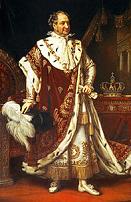




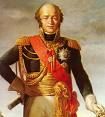








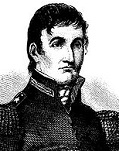











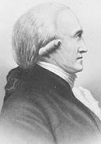



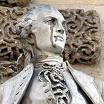
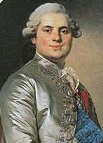
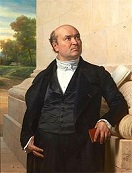
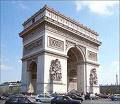
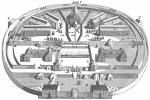

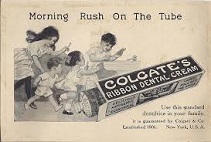
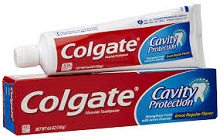

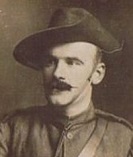
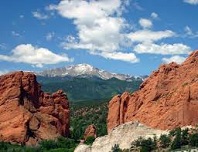


1806 On Jan. 1 after increasing its size via annexation of Church lands, free towns, and small lordships, Bavaria (an electorate since 1507) becomes a kingdom under elector (since Feb. 16, 1799) Maximilian I Joseph (1756-1825), who becomes king of Bavaria (until Oct. 13, 1825), who favors French Enlightenment ideas incl. secularization and centralization, appointing Count Maximilian Josef von Montgelas (1759-1838) as his minister (until 1817) (known for speaking French better than German, and working for previous elector Karl Theodor in 1799 to censor books until he is discovered to belong to the Illuminati and fired), who considers France as necessary to Bavaria despite appearing as a traitor to fellow Germans, becoming the most successful German politician of the early 19th cent.; jurist Paul Johann Anselm von Feuerbach (1775-1833) leads a commission to create a new reformed Bavarian Criminal (Penal) Code (finished 1813), and abolishes torture this year. On Jan. 1 Emperor Napoleon I abolishes the French Rev. Calendar and returns to the Gregorian Calendar. On Jan. 7 the U.S. concludes a treaty with the Cherokees, who give up a large tract of land N of the Tennessee River. On Jan. 17 James Madison Randolph (1806-34), grandson of Thomas Jefferson becomes the first child born in the White House, to his daughter Martha, on the centennial of Ben Franklin's birth. On Jan. 20 Princeton-educated Henry Brockholst Livingston (1757-1823), from the long line of N.Y. Livingstons, cousin of DOI signer Robert R. Livingston and brother-in-law of John Jay (with whom he went on a diplomatic mission to Spain) is appointed as U.S. Supreme Court justice #15, and confirmed on Nov. 10 (until Mar. 18, 1823), giving it six members (William Cushing, Samuel Chase, Bushrod Washington, John Marshall, William Johnson). On Jan. 23 PM (since May 10, 1804) William Pitt the Younger (b. 1759) dies of a stroke (unsaved, according to William Wilberforce), and on Feb. 11 his Whig cousin William Wyndham Grenville, 1st Baron Grenville (1759-1834) becomes British PM (until Mar. 25, 1807), forming the Ministry of All the Talents, with George III's least favorite guy (a William Wilberforce supporter) Honourable Charles James Fox (1749-1806) as foreign minister as a loss leader; Pitt followers, led by George Canning refuse to join; strong abolitionists Grenville and Fox decide to introduce William Wilberforce's slavery abolition bill in the House of Lords first, and do so next Jan; meanwhile they try to end the war with France in vain. On Mar. 1 after pub. derogatory statements about his lifelong friend Andrew Jackson, Prince Edward County, Va.-born merchant John R. Coffee (1772-1833) (their wives were related) duels Nathaneiel A. McNairy; on May 30, 1806 the same weapons are used in a duel near Adairville, Ky. between Jackson and famous duelist Charles Dickinson (b. 1780), who is killed after putting a bullet in Jackson's chest that is too near to his heart to operate, causing him to carry it for life; in the War of 1812 Coffee leads the 2nd Regiment of Volunteer Mounted Riflemen; on Sept. 4, 1813 Thomas Benton and his brother attempt to assassinate Jackson, but miss, after which Coffee knocks him down some stairs. On Mar. 9 French-educated mulatto Gen. Alexandre Sabes Petion (Sabès Pétion) (1770-1818) is elected pres. of Haiti (until 1818); on Oct. 17 he and black Brig. Gen. Henri Christophe assassinate emperor Jean-Jacques Dessalines (b. 1758) in Pont Lanarge (Pont Rouge) (N of Port-au-Prince), after which they get into a black vs. mulatto pissing contest, splitting the country, with Christophe taking the N and Petion the S. On Mar. 12 Venezuelan soldier Francisco de Miranda (1756-1816), who fought in the Am. Rev. and French Rev. and got his name on the Arc de Triomphe in Paris, then turned against the French Rev. and got condemned by the Directory and fled to England in Jan. 1798, where he unsuccessfully tried to get William Pitt to aid his fight for Venezuelan independence, then went to New York City in Nov. 1805, where he raised 200 volunteers and three ships (the Leander, Bee, and Bacchus) with the help of merchant Samuel G. Ogden (1746-1810), then sailed for Venezuela looking for a rumble, with an idea of uniting the entire South Am. continent from the Mississippi River to Cape Horn under the name Colombia (for Christopher Columbus), with a hereditary emperor called the Inca, raises the first Venezuelan flag in Jacmel; too bad, the Spanish navy defeats them on Apr. 28 off the coast, sinking two ships and taking 60 POWs, later sentencing 10 to death; Miranda escapes on the Leander and regroups on Barbados and Trinidad, then lands on Aug. 3 in La Vela de Coro and captures the fort, raising his new flag for the 1st time on Venezuelan soil, then occupies Coro; after finding no local support, they set sail on Aug. 13 and spend all next year in the Caribbean waiting for reinforcements, which never arrive, then return to Britain, finally getting support and assembling a large force under the command of Arthur Wellesley in 1808; too bad, Napoleon's invasion of Spain turns Spain into an ally, causing the force to go to Spain instead. On Mar. 15 Napoleon installs his brother-in-law Joachim Murat (1767-1815) as gov. of the Rhineland (grand duke of Berg and Cleves) (until Aug. 1, 1808), and he decides to outlaw all trade and prof. assocs. incl. brewer guilds, allowing people to choose their own trade or profession (known as the Gewerbefreiheit); Bavaria already did it in 1800. On Mar. 23 explorers Lewis and Clark begin their return journey. On Mar. 25 Venezuelan liberator Francisco Miranda is defeated in Ocumare with the loss of a large part of his force, then takes Coro, finds no popular support and leaves for Europe to work with Simon Bolivar to find more aid, returning in 1810. On Apr. 22 French adm. Pierre-Charles-Jean-Baptiste-Silvestre de Villeneuve (b. 1763), loser of the Battle of Trafalgar is returned to France by the English, and then strangled by one of Napoleon's Mamlukes with a horse bridle at an inn in Rennes. On May 10 a French law enunciates the principle of the univ. system, but Nappy doesn't degree with them until Mar. 17, 1808. On May 13 the first definition of a Cocktail as an alcoholic beverage is pub. in "The Balance and Columbian Repository" of Hudson, N.Y.; it was referred to only as a beverage in "The Farmers Cabinet" of 1803. On May 24 the Batavian Repub. reverts back to the name Holland as a monarchy under Nappy's younger brother Louis Napoleon Bonaparte (1779-1846) and his wife Hortense Eugenie Cecile de Beauharnais (1783-1837), Nappy's adopted daughter (mother of Napoleon III); they rule until 1810, but never amount to more than governors of Holland subject to Nappy's will. On May 25 William Scoresby Sr. (1760-1829) and his son William Scoresby Jr. (1789-1857) of England reach a record 81 deg. 30 min. N lat. (19 deg. E long.) (until 1827) in the whaler Resolution, and return to write Account of the Arctic Regions. On May 30 Napoleon I issues a decree calling for an Assembly of Jewish Notables, and on July 23 the first meeting of the Sanhedrin since the Roman destruction of Jerusalem in 70 C.E. is held in Paris at the City Hall, consisting of 111 Jewish reps. from all the depts. of France and N Italy, which pisses-off Third Coalition partners Russia, Austria, Prussia, and England, causing Napoleon on Nov. 29 after his V at Jena to give a speech in Posen making Judaism the official fifth column, er, third religion of France, proclaiming the long-disputed loyalty of the 40K Jews in France (1K in Paris) and making them into French citizens, but also depriving some Jews of their economic freedom; the anti-Semitic pressure on him only intensifies; the French appoint Mainz archbishop-elector (since 1802) Karl Theodor Anton Maria von Dalberg (1744-1817) as grand duke of Frankfurt on Main, and he orders the Jews to be given equal rights and abolishes the old law forbidding them from walking on the Anlagen main ring road, which doesn't stop the town council from issuing new regs in 1807 attempting to reestablish the ghetto, causing Dalberg to issue his "highest regulation for the equality of civil rights of the Jewish muncipality" in 1811, abolishing the requirement for Jews to live in the ghetto or pay special taxes, after the Jewish community pays a lump sum of 440K guilders; thanks to Napoleon, Portugal gives Jews their freedom in 1811, followed by Prussia in 1812, Holland in 1830, Sweden in 1834, and Switzerland in 1838; after Nappy's fall in 1815, Prussia reneges, along with France, until 1830, when it restores Nappy's laws - friends are friends but rules are rules? In May HRE (since 1792) Francis II of Austria sends Klemens von Metternich to Paris as ambassador, and he arrives in Paris in Aug. On June 12 after Napoleon's V over Russia and Austria at the Battle of Austerlitz, most of the German states (16 at first, then 35, with a total pop. of 15M) secede and form the Confederation of the Rhine (ends 1813), placing all of Germany (except Austria, Prussia, Brunswick, and Hesse) under French protection, with Hesse-Darmstadt becoming a grand duchy (until 1918) under landgrave Louis X, who becomes Duke Louis I; the garrisoning of French troops on German soil finally causes Frederick William III of Prussia to declare war, and Prussia, Britain, Russia, and Sweden to form the Fourth Coalition against France; elector Frederick Augustus IIII of Saxony later joins. On June 16 Tenskwatawa (1775-1836) ("the Prophet") ("Open Door"), formerly Lalawethika ("Loud Voice"), who has been stirring up the Indian tribes E of the Mississippi to throw off whitey, successfully predicts a solar eclipse, increasing his influence and making his white rival, Indiana territory gov. Gen. William H. Harrison lose face; by 1808 his brother Tecumseh (1768-1813) becomes the leader of the Tecumseh Confederacy of Native Ams, which grows to several thousand warriors (ends 1813). In the summer Aaron Burr goes to Lexington, Ky. to recruit adventurers for his secession plot, but Gen. James Wilkinson gets cold feet and in Nov. sends a letter to Pres. Jefferson warning of a "deep, dark, wicked, and wide-spread conspiracy", trying to frame Burr as being the lone gunman - where does Burr meet with Daniel Boone and Mingo? On July 12 the tiny country of Liechtenstein in C Europe on a Washington, D.C.-sized patch of land on the upper Rhine River (E side) between Austria and Switzerland becomes a sovereign state - one good side effect of the HRE breakup? On July 15 N.J.-born Lt. Zebulon Montgomery Pike (1779-1813) leaves St. Louis to explore New Mexico looking for the sources of the Arkansas River; on Nov. 15 he sights 14,109 ft. (4,267m) pink granite Pikes Peak (El Capitan to the Spanish, which he calls Highest Peak because it's higher thany any peak in the U.S. to the E) in S Colo. (64 mi. S of Denver), but fails in an attempt to climb it, declaring that it will never be climbed (the Utes probably did it all the time to get eagle feathers?), then makes a roundabout return by way of Santa Fe after Spanish soldiers capture his party; his accounts are pub. before those of Lewis and Clark, creating the myth that the Am. West is a "Great American Desert" unfit for human habitation (and hence the place to banish Indian tribes to); in summer 1820 Vt.-born botanist Edwin P. James (1797-1861) becomes the first to climb it while working for explorer Stephen Harriman Long (1784-1864) on his expedition "from the Mississippi to the Rocky Mountains", discovering the health benefits of the mineral waters in Manitou Springs, Colo., and making the first ascent of 13,3K ft. (4,054m) James Peak. What are you doing, getting out? My eyes, my beautiful eyes? On Aug. 6 (8-6-1806) (Wed.) after either Napoleon I orders it abolished, or he believes the rumors that Nappy wants to take over the HRE title, or news of Napoleon's Confederation of the Rhine scares him into it, HRE (since July 5, 1792) Francis II (1768-1835) declares the Holy Roman Empire and the Third Reich (Reich 1 founded in 800, Reich 2 in 962, or First Reich since 800) dissolved, and abdicates as HRE, after previously declaring himself emperor of Austria alone as Francis I on Aug. 11, 1804 (until Mar. 2, 1835); next Reich in 1871; Carinthia is incorporated in the Austrian Empire's Kingdom of Illyria, which succeeds Napoleon's Illyrian Provinces (until 1849). On Aug. 12-15 6K-8K ensconced Serbs defeat an Ottoman army of 50K-80K from Bosnia in the Battle of Misar, then in Dec. defeat another Ottoman army from the SE in the Battle of Deligrad, then siege Belgrade in Dec. (until 1807); meanwhile they organize their own parliament. On Aug. 15 Thomas Paine writes a Letter to Andrew Dean delineating his anti-Bible-thumping Rationalist beliefs: "I consider the scene I have passed through as an experiment on dying, and I find that death has no terrors for me. As to the people called Christians, they have no evidence that their religion is true. There is no more proof that the Bible is the Word of God, than that the Koran of Mahomet is the Word of God. It is education makes all the difference. Man, before he begins to think for himself, is as much the child of habits in Creeds as he is in plowing and sowing. Yet creeds, like opinions, prove nothing." On Sept. 14 Salim I ibn Sultan dies, and Sa'id II ibn Sultan becomes sole sultan of Oman, Zanzibar and Muscat (until Oct. 19, 1856). In Sept. the Lewis and Clark Expedition (begun May 1804) ends after going 8K mi. and visiting 58 Indian tribes; Clark frees his slave York, who was allowed to carry a gun and whose black skin was a curiosity to every Indian tribe they met (the first black to cross the North Am. continent N of Mexico?); Sgt. Charles Floyd, the only casualty in the party dies of a burst appendix near Sioux City; Pres. Jefferson is presented with two bears, which he houses in cages in the White House; always thinking, Pres. Jefferson envisions an independent nation in NW North Am. called the Repub. of the Pacific, which survives to modern times as a proposal for the Repub. of Cascadia, consisting of British Columbia, Ore. and Wash., plus maybe parts of Idaho, N Calif., the Yukon and Alaska; in 1941-2 the State of Jefferson exists for about 10 mo. until Pearl Harbor kills it. On Oct. 10 the Battle of Saalfeld sees 7K Prussians under Prince Louis Ferdinand (who is KIA) defeated by the French, with 400 casualties and 1K POWs taken. What happened, fellers, you Prussians can't handle soft Frenchies? On Oct. 14 28K French (a single corps) under "Iron Marshal" Louis-Nicolas d'Avout (Davout) (Davoust), Prince d'Eckmuhl (d'Eckmühl) (1770-1823) (France's youngest marshal since 1804) rout the main Prussian army of 63K in the Battle (Disaster) of Jena (Iena) (Iéna) in SW E Germany W of the Saal River, and the twin Battle of Auerstadt, causing the Prussian army, despite aid from the Russians to collapse and withdraw from the Fourth Coalition; Duke Charles William Ferdinand of Brunswick-Luneburg (b. 1835) dies of wounds received; d'Avout goes on to remain undefeated throughout the Napoleonic Wars, and is left to guard Paris while Nappy goes off to Waterloo in one of the big What Ifs; Frederick William III of Prussia and his family (along with kaput foreign minister Christian von Haugwitz) flee to Memel in E Prussia, where they are at the mercy of Tsar Alexander I, who has the hots for his wife Queen Louise; Copenhagen-born German diplomat Barthold Georg Niebuhr (1776-1831) accompanies the fugitive govt. to Konigsberg, becoming tax commissioner then Prussian minister to the Netherlands, trying without success to secure a loan before retiring from public life to become royal historiographer and prof. at the U. of Berlin, going on to become the #1 German historian of ancient Rome. On Oct. 27 Napoleon I occupies Berlin, followed by Hamburg, and on Nov. 21 after the British blockade the French coast he issues the Berlin Decree, initiating the Continental System (Blockade), which blockades Britain and closes Continental ports to British vessels, causing the British to occupy the Cape of Good Hope; too bad, the system backfires as E and C European countries who can no longer trade with England now can't afford to pay for French exports, and the cost of textiles rises, hurting artisans. Napoleon I conquers the Kingdom of Naples, tosses the Bourbons out, and gets his elder brother Joseph-Napoleon Bonaparte (1768-1844) crowned as king of Naples (until 1808), forcing King Ferdinand IV and his scheming wife Marie Caroline to flee to Sicily - bring on the bling? The Turks under Ottoman sultan (1789-1808) Selim III (1761-1808) depose the Russophile govs. of Moldavia and Wallachia, leading to the Eighth Russo-Turkish War (ends 1812); Russian gen. Count Ivan Vasilyevich Gudovich (1741-1820) is named CIC in the Caucasus, invading the Caspian Sea area and overrunning the khanates of Derbent, Sheka, and Baku. The British occupy Curacao (Curaçao) again (1st time 1798) (until 1814). Ang Chan becomes king of Cambodia (until 1834). Andrew Jackson kills 26-kill sharpshooter Nashville atty. Charles Dickinson (b. 1780) in a duel in Harrison's Mill, Ky. after being shot in the chest, a bullet lodging near his heart for life; he had worn a loose frock coat to throw Dickinson's aim off, and not wanting the dying sucker to know he'd come close, he tells his second, Gen. Thomas Overton in his presence, "I believe he has pinked me a little", then sends him a bottle of wine before he croaks; from now on Jackson is labelled as a murderer. France abolishes the salt tax (gabelle), and raises postal rates 50% to pay for warfare and welfare, but taxes remain moderate until 1810 because of the money paid by occupied territories. Pres. Jefferson seeks a $2M appropriation for a thinly disguised bribe to win French influence in persuading Spain to give up Florida, which causes "honest man" "Old Republican" John Randolph to break with him and talk about starting a third party, the "Tertium Quid" (third something). The city of Macon, Ga. in C Ga. on the fall line E of the Ocmulgee River (modern-day pop. 153K/231K) on the Ocmulgee Oil Fields at the most inland point of navigation from the S.C. Low Country starts out as Ft. Benjamin Hawkins, named for N.C.-born U.S. Supt. of Indian Affairs (1796-1816) Benjamin Hawkins (1754-1816), founded after Pres. Jefferson forced the Creeks to cede their lands E of the river, going on to be used during the War of 1812 and 1813 Creek War until being decommissioned in 1828, after which European immigrants (esp. from N.C.) rename it Newtown, becoming the county sea of the new (1822) Bibb County in 1823 and named in honor of N.C. politician Nathaniel Macon (1757-1837), becoming known for its 250-acre Central City Park and ordinances requiring shade trees to be planted in front yards, becoming known as "the Heart of Georgia", home of Mercer U. (1833), oldest private univ. in Ga., and music stars incl. Little Richard, the Allman Brothers, Jason Aldean et al. The English peerage title Earl Grey is created for Gen. Charles "No Flint" Grey, 1st Baron Grey (1729-1807), who is alsot created Viscount Howick in the County of Northumberland. Sultan Sayyid Sa'id founds an empire with capital in Zanzibar (until 1856), sending slaves to S Arabia and Persia. Father N. Duran founds San Jose, Calif. - do you know the way? Halleybury boys' public school near Hertford, England is founded by the East India Co. to train future employees (cadets). The annual Newdigate Prize for English verse by Oxford undergraduates is founded. Beethoven gets pissed-off and walks out when asked to play for French officers. Prophet Hen of Leeds in England begins laying eggs with the inscription "Christ is coming"; they are later proved to be a hoax. Le Beau Monde (Literary and Fashionable Mag.) begins monthly pub. in Britain. The Political Inst. is founded in Zurich, Switzerland as a law school, but within 10 years it becomes a hotbed of liberalism and constitutionalist rabble-rousers. The London Inst. is founded in the Old Jewry, London, with classical scholar Richard Porson (1759-1808) as dir.; too bad, he suffers a stroke in the street in 1808 and croaks at the tender age of 49. Henry Deringer (1786-1868) founds a firearms factory in Philadelphia, Penn., producing rifles for the U.S. Army, followed by dueling pistols in 1825 and the pocket pistol in 1852. William Colgate & Co. in New York City is founded by English immigrant soapmaker (devout Baptist) William Colgate (1783-1857); his son (also a devout Baptist) Samuel Colgate (1822-97) continues after his death, introducing Cashmere Boquet soap in 1872, and its first toothpaste ("dental cream") in 1873, packaged in jars; in 1896 they sell their first Colgate Toothpaste in a tube, Colgate Ribbon Dental Cream; in 1928 they are acquired by Palmolive-Peet to become Colgate-Palmolive-Peet, dropping the Peet in 1953; in ? they introduce Gardol (sodium lauroyl sarcosinate) (AKA Advance White) to their toothpaste; in 1999 they become the world's best-selling toothpaste; by 2010 they sell $17B a year. Vaux Breweries in Sunderland, Tyne and Wear, England is founded by Cuthbert Vaux Sr. (1779-1850), producing Bitter, Mild, Pale Ale, Maxim, Double Maxim, Sampson, Sunderland, and other brands; Cuthbert's son Cuthbert Vaux Jr. (1813-78) takes over, followed by Cuthbert Jr.'s son John Storey Vaux (1834-81), and John's son Cuthbert Vaux III (1862-1927); John's other son Ernest Vaux (1865-1925) founds the first Boy Scout troop in the world with Robert Baden-Powell, going on to become a popular lt.-col. in the British army in WWI; in 1972 the co. is acquired by Wards Brewing Co. of Sheffield, England, which in 1981 acquires Fred Koch Brewery in Dunkirk, N.Y.; it closes in 2000. Architecture: Bellefonte Academy in Bellefonte, Penn. is built, going on to graduate many Penn. leaders. On Aug. 15 French Rococo sculptor Claude Michel (Clodion) (1738-1814) and neoclassical architect Jean Francois Therese Chalgrin (1739-1811) begin the 164-ft. Arc de Triomphe in Paris to trumpet Napoleon's overarching you know whats; in 1811 French architect Jean-Nicolas Huyot (1780-1840) takes over for Chalgrin; it is interrupted during the Bourbon Restoration of 1814-30, and finally inaugurated on July 29, 1836. Dartmoor Prison in England is begun to house POWs that are being kept on derelect prison hulks (finished 1809); in 1812 U.S. POWs join French ones, reaching a pop. of 6K, and in 1815 they are repatriated, closing the prison down until 1850, after which it becomes down as a gruesome place for housing the most godforsaken convicts. Sports: The first Gentlemen vs. Players cricket match is held. Inventions: Ralph Wedgwood invents carbon paper, calling it "stylographic paper". Science: German scientist Freiherr Christian Johann Dietrich Theodor von Grotthuss (1785-1822) pub. the Grotthuss Mechanism, the first theory of electrolysis, to the effect that an "excess" proton can diffuse through the hydrogen bond network of water molecules, with the oxygen atoms passing them in a "bucket line". Napoleon offers 100K francs to anyone who can make sugar from a native plant, and Russian chemist K.S. Kirchhof wins for a sulfuric acid treatment of potato starch. German pharmacist Friedrich Wilhelm Adam Serturner (Sertürner) (1783-1841) isolates the bitter white crystalline alkaloid Morphine (the first known alkaloid, and first plant drug to be isolated), the active ingredient in opium from the poppy, and tries it on himself, later writing, "Lying down, I got into a dreamy state"; it is initially marketed as a cure for opium addiction? French chemists Nicolas Louis Vaquelin and Pierre-Jean Robiquet (1780-1840) determine the chemical structure of asparagine (derived from asparagus), becoming the first amino acid to be analyzed. Nonfiction: J.C. Adelung, Mithridates, a History of Languages and Dialects. Jean-Antoine Chaptal (1756-1832), La Chimie Appliquee aux Arts; describes the Chaptalization process of adding sugar to increase final alcohol content, revolutionizing winemaking in France. Charles Francois Dupuis (1742-1809), Memoire Explicatif du Zodiaque, Chronologique et Mythologique. Johann Gottlieb Fichte (1761-1814), Bericht Uber die Wissenshaftslehre. William Godwin (1756-1836), The Pantheon, or Ancient History of the Gods of Greece and Rome. Elizabeth Hamilton (1756-1816), Letters Addressed to the Daughter of a Nobleman on the Formation of Religious and Moral Principle. William Hazlitt (1778-1830), Free Thoughts on Public Affairs; attack on William Pitt's foreign policy. Johann Friedrich Herbart (1776-1841), Hauptpunkte der Metaphysik; Allegemeine Padagogik (Pädagogik); preaches modern education based on psychology and ethics - change your body in one easy workout a week? P.A. Latreille, Genera Crustaceorum et Insectorum. Adrien-Marie Legendre (1752-1833), The Path of Comets; first pub. of the Least-Squares Method, developed by Carl Gauss. James Madison (1751-1836), An Examination of the British Doctrine which Subjects to Capture a Neutral Trade not Open in Time of Peace. Thomas Taylor (tr.), Works of Aristotle (1806-12); first in English. Noah Webster, A Compendious Dictionary of the English Language; enlargement of Entick's 1765 "Spelling Dictionary" with supplementary encyclopedic material on Am. life; in 1807 he begins "An American Dictionary of the English Language", pub. in 1828. Music: Arnim and Brentano, Des Knaben Wunderhorn (folk songs). Ludwig van Beethoven (1770-1827), Fourth Symphony in B-flat major, Op. 60 (Vienna) (Mar.); Violin Concerto, Op. 61. Luigi Cherubini (1760-1842), Faniska (opera comique) (Feb. 25) (Theater am Karntnertor); German libretto by Joseph Sonnleithner based on "Les Mines de Pologne" by Rene Charles Guilbert de Pixerecourt, about Rava mayor Rasinski and his wife Faniska and daughter Hedwig; composed after being invited to Vienna in June 1905; his last hit; praised by Haydn, whom he met personally, and of course Beethoven. Johann Ludwig Dussek (1760-1812), Elegie Harmonique, Op. 61; composed in memory of his buddy Prince Louis Ferdinand, who was KIA in the Battle of Saalfeld. Gioacchino Rossini (1792-1868), Demetrio a Polibio (first opera) (Rome). Art: Baron Antoine-Jean Gros (1771-1835), The Battle of Aboukir. Jean-Antoine Houdon (1741-1828), Napoleon Bonaparte (sculpture); Moliere (sculpture). Jean Auguste Dominique Ingres (1780-1867), Napoleon on His Imperial Throne. Bertel Thorvaldsen, Hebe (sculpture). David Wilkie (1785-1841), Village Politicians. Poetry: Willem Bilderdijk, Ode van Napoleon. William Lisle Bowles (ed.), The Works of Alexander Pope; incl. an essay defining canons of poetry, with images drawn from Nature considered finer than those drawn from art, and themes of passions of the gen. or elemental kind higher than transient manners of society, which is dissed by Lord Byron , Thomas Campbell et al., and defended by William Hazlitt. Lord Byron (1788-1824), Fugitive Pieces (debut) (Sept.-Oct.); the bad reviews cause him to respond with English Bards and Scotch Reviewers (1809), calling the Lake Poets "Wordswords and Co.". Jane Taylor and Ann Taylor, Rhymes for the Nursery. Births: French utilitarian free market liberal philosopher-statesman Michel Chevalier (d. 1879) on Jan. 13 in Limoges. Am. naval cmdr. and oceanographer-hydrographer ("Pathfinder/Scientist of the Seas") ("Father of Modern Oceanography and Naval Meteorology") Matthew Fontaine Maury (d. 1873) on Jan. 14 near Fredericksburg, Spotsylvania County, Va.; of French Huguenot descent; grows up in Franklin, Tenn. Am. Ill. militia lt. col. Lewis Crum Bidamon (d. 1891) on Jan. 16 in Smithfield, Va.; grows up in Highland County, Ohio; husand (1847-) of Emma Smith (1804-79), 1st wife of Joseph Smith Jr. (1805-44). Am. Mormon leader William Earl McLellin (d. 1883) on Jan. 18 in Smith County, Tenn. Am. Knickerbocker Group writer-poet-ed. Charles Fenno Hoffman (d. 1884) on Feb. 7 in New York City; son of N.Y. atty. gen. Josiah Ogden Hoffman (1766-1837). English "South Bank Lion" sculptor-painter William Frederick Woodington (d. 1893) on Feb. 10 in Sutton Coldfield, Warwickshire; father of William Frederick Woodington Jr. (1830-1922). Italian patriot gen. Manfredo Fanti (d. 1865) on Feb. 26 in Carpi, Emilio Romagna; superior officer of Giuseppe Garibaldi. English "Sonnets from the Portuguese", "Aurora Leigh" poet (abolitionist) (opium addict) Elizabeth Barrett Browning (d. 1861) on Mar. 6 in Kelloe, Durham; daughter of Mr. Barrett of Wimple St.; wife (1846-) of Robert Browning (1806-61); mother of Robert Barrett "Pen" Browning (1849-1912). Am. Astor Place Riot stage actor Edwin Forrest (d. 1872) on Mar. 9 in Philadelphia, Penn.; of Scottish-German descent; known for blackface performances. U.S. First Lady (1853-7) Jane Means Appleton Pierce (d. 1863) on Mar. 12 in Hampton, N.H.; daughter of Congregationalist minister Jesse Appleton (1772-1819) (pres. of Bowdoin College); grows up in Amherst, N.H.; wife (1834-63) of pres. Franklin Pierce (1804-69); mother of Benny Pierce (1841-53). Am. inventor (black) Norbert Rillieux (d. 1894) on Mar. 17 in New Orleans, La.; cousin of Edgar Degas (1834-1917). Mexican pres. (1858-72) ("Benemerito de la Americas") (Freemason) Benito Pablo Juarez (Juárez) Garcia (d. 1872) on Mar. 21 in San Pablo Guelatao, Oaxaca; Indian parents; speaks only Zapoteco for most of his childhood. Am. "Mary Had a Little Lamb" lamb owner Mary Elizabeth Sawyer (d. 1889) on Mar. 22 in Sterling, Mass.; the lamb is born in Mar. 1815 (dies 1819); the poem is actually written by John Roulstone (1805-22), nephew of Rev. Lemuel Capen of Sterling, who watches the famous incident at school and hands her the 12-line poem the next day; in 1830 Sara Josepha Hale adds the final 12 lines, confusing it more; on Aug. 12, 2007 Mary Sawyer's birthplace is burned down by John Rousseau and Michael Dreslinski. Am. Dem. politician John Parker Hale (d. 1873) on Mar. 31 in Rochester, N.H.; educated at Phillips Exeter Academy, and Bowdoin College. Am. Confed. Mo. gov. (1861-2) Claiborne Fox Jackson (d. 1862) on Apr. 4 in Fleming County, Ky. English mechanical-civil engineer Isambard (Ger. "iron-bright") Kingdom Brunel (d. 1859) on Apr. 9 in Portsea, Portsmouth, Hampshire; son of Marc Isambard Brunel (1769-1849) and Sophia Kingdom (1775-1855); educated at the U. of Caen, and Lycee Henry-IV. French engineer-economist-sociologist (atheist-to-Roman Catholic convert) Pierre Guillaume Frederic le Play (d. 1882) on Apr. 11 in La Riviere-Saint-Sauveur (near Honfleur); educated at the Ecole Polytechnique, and Ecole des Mines. Dutch-Belgian Romantic painter ("Monsieur Chandelle") Petrus van Schendel (d. 1870) on Apr. 21 in Terheijden, Netherlands; known for lamplit and candle-lit night scenes. English inventor Sir William Fothergill Cooke (d. 1879) on May 4 in Ealing, Middlesex; educated at the U. of Edinburgh. Am. dentistry school founder Chapin Aaron Harris (d. 1860) on May 6 in Pompey, N.Y. English utilitarian philosopher-economist John Stuart Mill (d. 1873) on May 20 in London; eldest son of James Mill (1773-1836); disciple and friend of Jeremy Bentham; husband (1851-8) of Harriet Taylor Mill (1807-58) pushed by his father, he begins studying Greek at age three, and by age 14 masters Latin, math, logic, classical lit., history, and political economy; too bad, by age 20 his daddy's tyranny causes his brain to freeze, making him unable to absorb any new ideas, but he does develop daddy's ideas beautifully? Am. Brooklyn Bridge civil engineer John (Johann) Augustus Roebling (Röbling) (d. 1869) on June 12 in Muhlhause, Prussia, Germany; emigrates to the U.S. in 1831. English mathematician (atheist) (Spiritualist) Augustus De Morgan (d. 1871) on June 27 in Madras, British India; father of William De Morgan (1839-1917); educated at Trinity College, Cambridge U.; coiner of the term "mathematical induction". Am. Houston, Tex. co-founder Augustus Chapman Allen (d. 1864) on July 4 in Canaseraga Village (modern-day Sullivan), N.Y.; brother of John Kirby Allen (1810-38). Scottish "Arthur Coningsby" novelist-poet-dramatist John Sterling (d. 1844) on July 20 in Kames Castle, Isle of Bute; educated at the U. of Glasgow and Trinity College, Cambridge U.; father of maj. gen. John Barton Sterling (1840-1926), cmdr. of the Coldstream Guards. Am. educator (founder of Marshall College) Frederick (Friedrich) Augustus Rauch (d. 1841) on July 27 in Hesse-Darmstadt; emigrates to the U.S. in 1831. Irish "The Confessions of Harry Lorrequer" novelist Charles James Lever (d. 1872) on Aug. 31 in Dublin; of English descent; educated at Trinity College, Dublin. Dutch "Castle Loevenstein" historical novelist Jan Frederik Oltmans (Jan van der Hage) (d. 1854) on Sept. 1 in The Hague. French gen. Christophe Leon Louis Juchault de Lamoriciere (Lamoricière) (d. 1865) on Sept. 5 in Nantes. U.S. rear adm. Andrew Hull Foote (d. 1863) on Sept. 12 in New Haven, Conn.; educated at West Point Academy. German dramatist-novelist Heinrich Laube (d. 1884) on Sept. 18 in Sprottau, Prussian Silesia. Am. soapmaker (co-founder of Anheuser-Busch) Eberhard Anheuser (d. 1880) on Sept. 27 in Kreuznache (Nahe), German Palatinate; emigrates to the U.S. in 1842; father-in-law of Adolphus Busch (1839-1913). Am. Mormon Church co-founder Oliver H.P. (Hervy Pliny?) Cowdery (d. 1850) on Oct. 3 in Wells, Vt.; grows up in Poultney, Vt.; son of William Cowdery; 3rd cousin of Joseph Smith Jr.'s mother Lucy Mack Smith. Serbian prince (1842-58) Aleksandar (Alexander) Karadordevic (d. 1885) on Oct. 11 in Topola. German "The Ego and Its Own" Young Hegelian philosopher Max Stirner (Ger. "highbrow") (Johann Kaspar Schmidt) (d. 1856) on Oct. 25 in Bayreuth, Bavaria. French casino entrepreneur ("the Magician of Homburg and Monte Carlo") Francois Blanc (d. 1877) on Dec. 12 in Courthezon; has twin brother Louis. Spanish Carlist Gen. Ramon Cabrera y Grino (Ramón Cabrera y Griñó) (d. 1877) on Dec. 27 in Tortosa, Tarragona. Russian artist Alexander Ivanov (d. 1858). Am. "The Swamp Fox", "The Genassee", "The Wigwam and the Cabin" poet William Gilmore Simms (d. 1870) in Charleston, S.C. French financier (Jewish) (rival of the Rothschilds) Isac Pereire (Émile Péreire) (d. 1880); of Portuguese Sephardic descent; grandson of Jacob Rodrigues Pereira (1715-80); brother of Emile Pereire (1800-75). Southern slavery advocate George Fitzhugh (OG "son of intelligence") (d. 1881). Indian Baloch Muslim saint (female) Hazrat Gulrukh ("like a rose") Babajan (d. 1931) in Balochistan (Pakistan); born a Pathan princess, goes guru at age 18; original master of Meher Baba. Deaths: Scottish deaf-mute teacher Thomas Braidwood (b. 1715). English Bluestocking writer Elizabeth Carter (b. 1717). Am. Rev. leader (DOI signer) James Smith (b. 1719) on July 11 in Penn. Am. Baptist preacher Isaac Backus (b. 1724) on Nov. 20. English painter George Stubbs (b. 1724) on July 10 in London. Scottish-born Am. Rev. War gen. Lachlan McIntosh (b. 1725) on Feb. 20 in Savannah, Ga. Am. Rev. patriot-jurist (DOI signer) George Wythe (b. 1726) on June 8 in Williamsburg, Va.; poisoned by his great-nephew George Wythe Sweeney after he goes abolitionist, frees his slaves, and leaves his slave concubine Lydia Broadnax and their mulatto son Michael Brown in his will, and Sweeney tries to poison the slaves with arsenic, but gets Wythe by accident, although he lives long enough to cut him out of the will; Sweeney is acquitted of murder because blacks are forbidden from giving testimony, and is convicted of forgery, but gets that oveturned and is later put in priz for stealing a horse in Tenn. Scottish-born British gen. John Campbell of Strachur (b. 1727) on Aug. 28 in Argyll, Scotland. English-born Am. Rev. Gen. Horatio Gates (b. 1727) on Apr. 10 in New York City. Austrian field marshal Michael von Melas (b. 1729) on May 31 in Tynec nad Labem, Bohemia. African-Am. mathematician-astronomer Benjamin Banneker (b. 1731). British Capt. Sir Richard Pearson (b. 1731). French painter Jean-Honore Fragonard (b. 1732) on Aug. 22 in Paris; dies in poverty. French physician Paul Joseph Barthez (b. 1734) on Oct. 15 in Paris. Am. Rev. patriot-financier Robert Morris (b. 1734) on May 7 in Philadelphia, Penn.; dies broke after losing his fortune in speculation and spending three years in debtor's prison. French novelist Nicolas Edme Restif (b. 1734) on Feb. 3 in Paris; dies before he can take a job as a job in Napoleon's ministry of police. French physicist Charles-Augustin de Coulomb (b. 1736). German Prussian margrave (1757-91) Charles Alexander of Brandenburg-Ansbach (b. 1736) on Jan. 5 in Benham Park, Speen (near Newbury), West Berkshire, England (lung disease). Austrian composer Michael Haydn (b. 1737) on Aug. 10; brother of Franz Joseph Haydn. Irish painter James Barry (b. 1741) on Feb. 22 in London; expelled from the Royal Academy of Arts in 1799, first time ever until Brendan Neiland (1941-) in 2004. French chemist Nicolas Leblanc (b. 1742). English architect Henry Holland (b. 1745) on June 17. U.S. Supreme Court justice #1 (1793-1806) William Paterson (b. 1745) on Sept. 9 in Evendale, Penn. Scottish surgeon Benjamin Bell (b. 1749) on Apr. 5. English Whig statesman-orator Charles James Fox (b. 1749) on Sept. 13 in Chiswick. Am. Rev. War gen. Henry Knox (b. 1750) on Oct. 25 near Thomaston, Mass. English cabinetmaker Thomas Sheraton (b. 1751) on Oct. 22. British Gen. John Graves Simcoe (b. 1752) on Oct. 26 in Exeter; namesake of Simcoe Day in Toronto. Japanese painter Kitagawa Utamaro (b. 1753). Am. surveyor Moses Cleaveland (b. 1754) on Nov. 16 in Canterbury, Conn. Spanish composer Vicente Martin y Soler (b. 1754) on Jan. 30 in St. Petersburg, Russia. Am. explorer Robert Gray (b. 1755). Haitian leader Jean Jacques Dessalines (b. 1758) on Oct. 17 in Pont Lanarge (Pont Rouge) (assassinated). British PM William Pitt the Younger (b. 1759) on Jan. 23. French gen. Thomas-Alexandre Dumas (b. 1762) on Feb. 26 in Villers-Cotterets, Aisne (stomach cancer); half-poisoned with arsenic by the Sicilians after being captured in 1799 and imprisoned for two years. French adm. Pierre Charles Villeneuve (b. 1763) on Apr. 22 in Rennes (suicide) (murdered on orders of Napoleon?). Scottish explorer Mungo Park (b. 1771) in Bussa, Africa (drowned).


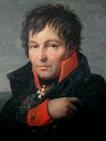









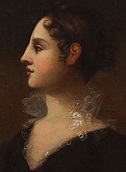


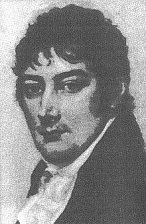











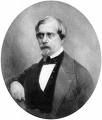

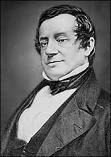
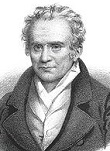


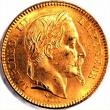



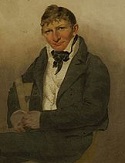
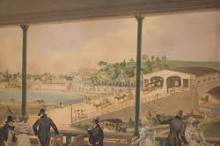


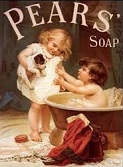
1807 On Feb. 4 (Wed.) after a month-long fight, the English House of Lords passes the Abolition of the Slave Trade Act of 1807 of William Wilberforce (1759-1833), followed by the Commons on Feb. 22 by 283-16 (as Wilberforce sits in his chair weeping?), which is given royal assent on Mar. 25, but the law has no teeth, and the light fines and nonexistent jail prospects make scofflaws out of ship captains, who often chuck slaves overboard to avoid paying; Wilberforce spends the next 18 years of his career in the House of Commons fighting for the total emancipation of existing slaves; meanwhile the U.S. Congress bans the importation of slaves beginning Jan. 1, 1808; the U.S. now supplies 60% of Britain's cotton - you can't flag the king, or, illegal use of a hand truck? On Jan. 20 Wilmington, Del.-born Caesar Augustus Rodney (1772-1824), known for preparing the articles of impeachment against John Pickering in 1804 becomes U.S. atty. gen. #6 (until Dec. 5, 1811). On Jan. 31 the Jewish Sanhedrin convenes for the 2nd time in France (until Mar.), and codifies the law making the Jewish religion equal to Christianity in France, along with the relationship of rabbis to the state, pissing-off Napoleon's uncle Cardinal Joseph Fesh, who asks him: "So you wish the end of the world to come with your actions to give the Jews equality with Catholics?" In Jan. former U.S. vice-pres. #3 (1801-5) Aaron Burr Jr. (1756-1836) learns that Gen. James Wilkinson (1757-1825) (gov.. #1 of La. Territory since 1805) has betrayed him as he nears Natchez, Miss., and makes a run for Pensacola, Fla., but on Feb. 19 he is arrested in Ala. and taken to Richmond, Va., and indicted on June 24 for treason for plotting with Wilkinson, Jonathan Dayton et al. to create an empire encompassing the Mississippi Valley, Mexico, and the Am. West; he claims he only wanted to farm 40K acres in Tex. leased to him by Spain; he is tried starting on Aug. 3 in Richmond, Va., presided over by Chief Justice John Marshall, with new U.S. atty. gen. Caesar Augustus Rodney and Md.-born atty. William Wirt (1772-1834) (U.S. atty. gen. #9 in 1817-29) as prosecutors, but is acquitted on Sept. 1 for lack of evidence since he had committed no overt treasonable acts and there weren't two witnesses; after his 1825 death, Wilkinson is found to have been a paid agent for the Spanish crown, causing U.S. pres. Theodore Roosevelt to utter the soundbyte: "In all our history, there is no more despicable character"; during the proceedings Marshall attends a dinner given by Burr and his chief defense counsel, and Jefferson refuses a subpoena to appear in court and produce papers, citing executive privilege; Burr has even more charges pending, but skips bail and flees to France to cool his heels, returning to New York in July 1812 to practice law; meanwhile his beloved daughter Theodosia Burr Alston (1783-1813), wife (since 1801) of S.C. gov. #44 (1812-14) Joseph Alston (1779-1816) (first newlywed couple to honeymoon in Niagara Falls) raises money for him and writes letters to Treasury secy. Albert Gallatin and First Lady Dolley Madison pleading his cause, but never sees him again, sailing to New York from Georgetown, S.C. on Dec. 31, 1812 to meet him and mysteriously disappearing, spawning numerous legends - fly away, I'll see you again? In Jan. the Orthodox Catholic Serbs liberate Belgrade from the Muslim Turks. On Feb. 7-8 the French and Russo-Prussian armies fight the indecisive Battle of Eylau; on June 14 the French kick their butts totally in the Battle of Friedland; Karl vom Stein is recalled, and on July 7-9 after Austrian wheeler-dealer Prince Klemens von Metternich unsuccessfully tries to break the Franco-Russian alliance and flops over to share the spoils, the Treaty (Treaties) of Tilsit (Tilset), signed in a pavilion on a raft in the Neman River by Alexander I of Austria, Napoleon I of France, and Frederick William III of Prussia partitions the Ottoman Empire and divides Europe between France and Russia, recognizing the Confederation of the Rhine and ceding all territories W of the Elbe (incl. Saxony), which become the Kingdom of Westphalia, with Napoleon I's youngest brother Jerome Bonaparte (1784-1860) as king (until 1813), and his wife Catharina Frederica von Wurttemberg (Württemberg) (1783-1835) as queen, with capital in Cassel (Kassel), which they intend to set up as the model for the other German states; Prussia loses Poland and all territory W of the Elbe, and along with Russia is forced to recognize the new state of the Grand Duchy of Warsaw carved out of Poland; Prussia loses approx. half of its territory, closes its ports to the British, limits its standing army to 42K, and pays a 120M franc (mark?) indemnity (raised to 140M in 1808), all despite dick-teaser Queen Louise of Prussia having a "personal interview" with Nappy first?; Prussia's once top-drawer military hits rock bottom, and while the king seems resigned to it, PM Karl vom Stein has other ideas, and begins military reforms, encouraged by the queen, led by new chief of staff maj.-gen. Gehard Johann David Waitz von Scharnhorst (1755-1813), who turns it into a nat. army incl. a Landwehr (army reserve) based on universal service with a simplified admin. and promotions based on merit, with foreign recruits prohibited, and corporal punishments limited to flagrant insubordination, schooling his student Karl von Klausewitz, er, Carl von Clausewitz (1780-1831); Russian adm. Dmitri Senavin sheds tears when he gets the news of the treaty on Aug. 12, and now that Nappy is considered Russia's ally and Britain its foe, he has to forfeit all his conquests and return to Sevastopol, evacuating Tenedos on Aug. 25 and sailing from Corfu on Sept. 19, officially leaving the Mediterranean; Frederick Augustus III, who turned his electorate of Saxony into a kingdom in 1805 before the dissolution of the HRE in 1806 begins to reign as duke of Warsaw, becoming an ally of Napoleon; the French shut down the U. of Halle, forcing scholar Friedrich August Wolf to move to Berlin. On Mar. 3 after Congress changes the number of justices on the U.S. Supreme Court to seven, and Pres. Jefferson nominates him on Feb. 28, Thomas Todd (1765-1826) of Va. becomes U.S. Supreme Court justice #16 (until Feb. 7, 1826), going on to issue only one dissenting opinion in Finley v. Lynn and establish the rule in Riggs v. Taylor that if an original document can't be introduced into evidence for reasons out of one's control, secondary evidence can be used. On Mar. 19-May 24 (78 days) 27K French troops under French marshal (since 1804) Francois Joseph Lefebvre (1755-1820) siege and capture approachable-only-from-the-west Danzig (Gdansk) from 11K Prussian and Russian troops under Prussian gen. Count Friedrich Adolf Kalckreuth (1737-1818), which Napoleon establishes on Sept. 9 as an independent free city (until 1814), gaining Lefebvre the title of 1st Duc de Dantzig (Danzig), and Kalckreuth a promotion to field marshal. On Mar. 25 after William Greenville's Ministry of All the Talents collapses over the failure to make peace with France or accomplish Catholic emancipation, British PM (since Feb. 11, 1806) William Grenville, 1st Baron Grenville resigns, and on Mar. 31 former PM (Apr. 2-Dec. 18, 1783) William Henry Cavendish-Bentinck, 3rd Duke of Portland (1738-1809) (a former conservative Whig turned Pittite Tory after the French Rev.) becomes British PM (until Oct. 4, 1809). On Mar. 31 after Britain declares war on Turkey to protect their route to India and invades Egypt, Mehmet Ali, with the support of the Mamluks defeats the British at the Battle of Rosetta (Rasheed), and the British agree to withdraw from Egypt incl. Alexandria on Sept. 19; meanwhile on Feb. 19 the British fleet under adm. Sir John Thomas Duckworth (1747-1817) forces the defenses of the Dardanelles and anchors off Constantinople for the first time in history despite the Turks firing the 1464 Great Turkish Bombard (Dardanelles Gun), which kills 28; on Feb. 24 the Russian navy under adm. Dmitri Nikolayevich Senyavin (1763-1831) reaches the Dardanelles and captures the island of Tenedos in Mar., blockading the straits and cutting off supplies to Constantinople; too bad, Duckworth loses 600 men to shore battery fire, and refuses to join with Senyavin's fleet on an expedition to Alexandria, which turns out bad; meanwhile the blockade causes the Janissaries to revolt against reformer sultan (since 1789) Selim III (b. 1761), and imprison and despose him in favor of his nephew Mustafa IV (1779-1808) (son of Abdul Hamid I), who becomes Ottoman sultan #29 (until July 28, 1808), and orders the blockade broken by his navy, causing the naval Battle of the Dardanelles on May 11, and the naval Battle of Mount Athos (Monte Sancto) (Lemnos) on June 19-22, which are both Russian Vs, the Turks losing a third of their fleet. In Apr.-July the Prussian fortress town of Kolberg resists a siege by the French; mayor Joachim Nettelbeck (1738-1824) later tells about it in his autobio. On May 4 the Treaty of Finckenstein is signed in Finckenstein Palace in East Prussia by France and Persia, guaranteeing the integrity of Persia and its possessions in Georgia and E Transcaucasia in return for Persia declaring war on Britain, expelling all Brits, and agreeing to a joint Franco-Persian-Afghan invasion of India; too bad, the Brits have a different mind and make sure that the treaty is never realized until they sign a treaty on Mar. 12, 1809 with Persia forcing the French out; Napoleon's favorite dragoman (multilingual translator) Pierre Amedee (Amédée) Emilien Probe Jaubert (1779-1847) accompanies Persian envoy Mirza Mohammed Reza Qazvini to meet with Napeoleon at Finckenstein Palace on Apr. 27. On June 18 the Battle of Arpachai on the Akhurian River in Armenia sees a 7K-man Russian force under Gen. Count Ivan Gudovich defeat and repel a 24K-man Ottoman force under Yusuf Pasha, earning Gudovich a promotion to field marshal; too bad, he loses an eye in the battle, and after failing to take Erivan next yer, retreating with his soldiers to Georgia, he resigns, retiring three years later to his enormous estates in Podolia in SW Ukraine. On July 1 after defeating incumbent Morgan Lewis by 35,074 to 30,989 votes, Scarsdale, N.Y.-born Dem.-Repub. politician Daniel D. (Decius?) Tompkins (1774-1825) becomes N.Y. gov. #4 (until Feb. 24, 1817), going on to defeat Jonas Plat in 1810 by 43,094 to 36,484 votes, and Stephen Van Rensselaer in 1813 by 43,324 to 39,718 votes, and Rufus King in 1816 by 45,412 to 38,647 votes before coming in 2nd in the 1816 U.S. pres. election and becoming U.S. vice-pres. #6 on Mar. 4, 1817-Mar. 4, 1825; in the War of 1812 he reorganizes the N.Y. state militia after raising 40K soldiers using his personal fortune as security for equipment, and institutes conscription to create a standing army, declining an appt. as U.S. secy. of state by U.S. Pres. James Madison in 1814 in favor of appointment as cmdr. of the federal military district that incl. New York City. On Aug. 16 Napoleon suppresses the Tribunate, solidifying his dictatorship, and replaces Talleyrand as foreign affairs minister with adm. Jean Baptiste de Nompere (Nompère) de Champagny, 1st Duc de Cadore (1756-1834) (until Apr. 11) - with Pam, food sticks to nothing? On Aug. 17-21 Robert Fulton sails his twin-paddle North River steam boat Clermont ("Fulton's Folly") on the Hudson River from New York City to Albany and back, and receives a U.S. patent for its construction. On Aug. 29 the Battle of Koge (Køge) sees 6K British troops with 1,376 cavalry sieging Copenhagen defeat 7K Danish militiamen from Sjaelland, causing them to throw away their wooden clogs to flee. In Sept. France asks Denmark to join the Continental System; in Oct. before they can decide, hearing that the French might use it to invade them, the English bombard Copenhagen and capture and carry off the entire Danish fleet, causing pissed-off Denmark to swiftly ally with France. On Oct. 12 the Erfurt Convention is signed, refinforcing Napoleon's alliance with Russia and allowing him to proceed to Spain - to give it his magical touch? On Oct. 27 the Peninsular War (ends Apr. 17, 1814) begins after France gets pissed-off at Portugal for not joining the Continental Blockade, and in early Nov. it occupies Portugal, causing King Joao VI (prince regent) to flee on Nov. 29 with mad screaming Maria I and the entire Braganza royal family incl. its 15K hangers-on in advance of French armies and transfer the Portuguese Braganza Court next Jan. to Salvador da Bahia, bowing to pressure and signing a commercial law opening commerce between Brazil and friendly nations esp. Britain; meanwhile in Sept. the Russian fleet under adm. Dmitri Nikolayevich Senyavin (1763-1831) leaves, arriving in Lisbon on Oct. 30, and the British navy moves in and blockades Lisbon, starting the Anglo-Russian War (ends July 18, 1812); after French forces under gen. Jean-Andoche Junot, 1st Duke of Abrantes (1771-1813) overrun Lisbon, Senyavin's fleet is caught in the middle, causing Senyavin to turn diplomat in an effort to save it, starting with ignoring orders from Napoleon via the Russian embassy in Paris to replace British officers on some of his ships with French ones; Nappy's ultimate plan for Portugal is to split it into three sections, with N Portugal from the Douro to the Minho becoming the Kingdom of Northern Lusitania, headed by Carlo Lodovico II of Etruria (1799-1883), the Alentejo Province and Kingdom of the Algarve merged into the Principality of the Algarves, headed by Spanish PM Manuel de Godoy, and the remaining portion directly ruled by France. On Dec. 17 the Milan Decree reiterates the French blockade of bad boy Britain, and on paper Napoleon I has now closed the entire European coastline to them, although Pope Pius VII refuses to join. On Dec. 22 after the Chesapeake Incident between the U.S. and Britain, where U.S. commodore James Barron (1768-1851) surrenders the U.S. frigate Chespeake to a British ship (and is later court-martialed), Pres. Jefferson signs the retarted U.S. Embargo Act, prohibiting all internat. trade with U.S. ports, which almost causes a home revolt, although it hurts Britain, which is already suffering from the French Continental System; the Chesapeake Bay Retriever dog breed is developed about this year from two puppies rescued from a shipwreck off the coast of Md. Henri Christophe is appointed pres. of Haiti, and a civil war begins with Gen. Alexandre Sabes Petion (until 1811) when the former expresses the need to be king - are you mocking me? The Twi-speaking Ashanti (Asante) (Ashantee) people N of Ghana federate into a kingdom, and begin attempting to conquer the Fanti tribes of the coast, tangling with the British (until 1826). Sierra Leone and Gambia become British crown colonies. Prussian Baron Heinrich Friedrich Karl vom Stein (1757-1831) convinces Prussian King Frederick William III to abolish personal serfdom and the estate system and issue the Edict of 1807, freeing the peasants on St. Martin's Day in 1810; the govt. and military is modernized, and universal military service is introduced. Bootmakers and shoemakers in Philadelphia go on strike, and a court finds them guity of a "combination to raise their wages"; it takes until 1842 for the trade unions to get protection in the courts. Richmond, Va. establishes a police force. William Cobbett coins the term "red herring" for strong smelling smoked kippers used to lay a false trail for hunting dogs. The Mutiny on the Bounty was no fluke? New South Wales Gov. Capt. William Bligh arrests Irish leader Michael Dwyer and his comrades on trumped-up charges of insurrection, then splits them up and sends them to other settlements; he is later deposed, and Dwyer and his comrades allowed to return to Sydney and given land grants by the new gov. The fortress island of Heligoland (Helgoland) in the North Sea is seized from Denmark by Britain (until 1890). The U.S. Coast Survey is established on Feb. 10 by the U.S. Dept. of Commerce, becoming the first U.S. scientific agency, changing to the U.S. Coast and Geodetic Survey in 1878; in 1870 the U.S. Nat. Weather Bureau is formed, followed on May 22, 1917 by the U.S. Coast and Geodetic Survey Corps (NOAA Corps); on Oct. 3, 1970 the Nat. Oceanic and Atmospheric Admin. (NOAA) is formed. The Geological Society of London is founded by London physician James Parkinson (1755-1824) et al. The Shaker town of Watervliet in Albany County, N.Y. at the navigation head of the Hudson River opposite Troy (5 mi. N of Albany) is selected as the site of the first U.S. arsenal, manufacturing cannon. The U.S. Evangelical Assoc. (Albright Brethen) of Am. Protestants of German descent, founded by Jacob Albright (Jakob Albrecht) (1759-1808) holds its first convention; after a schism in 1894 it ends up joining the United Methodist Church in 1968. The city of Nashville, Tenn. (modern pop. 500K) (founded 1779), named after brig. gen. Francis Nash (1720-77) on the Cumberland River in Davidson County is incorporated. Fur trapper John Colter explores the Yellowstone area. Whig leader Lord Palmerston begins his political career as a Tory in the English ministry. N.Y. atty. Martin Van Buren (1782-1862) marries his maternal cousin Hannah Hoes (1783-1819); they have 4 sons and no daughters; too bad, she dies of TB 17 years before he is elected U.S. pres. Napoleon I, seeing himself as the reincarnation of Julius Caesar begins minting 20-franc Gold Napoleons, depicting him wearing a crown of laurel leaves (ends 1815); their size and quality makes them a model for other Euro nations. Pears brand transparent perfumed soap is first sold by Cornwall-born barber Andrew Pears (1770-1845) of London, England; in Aug. 1890 the co. buys the 1886 painting Bubbles by Sir John Everett Millais, using it as an ad. J.G. Pleyel founds a pianoforte factory in Paris. Sports: The Ascot Gold Cup horserace in Ascot, England is first run, and witnessed by George III and Queen Charlotte; the first winner is Master Jackey, who wins 100 guineas. Architecture: New Palace in Stuttgart, Germany (begun 1746) finishes construction. A 120-ft. lighthouse is begun on Inchcape (Bell) Rock in the North Sea 12 mi. SE of Arbroath, Scotland (finished 1810), known for its treacherous reef, immortalized in the 1820 Robert Southey poem Inchape Rock - no more need for that bell? (see 1178) The Simplon Road in the Alps (begun 1800) is completed. The Gothic revival Fonthill Abbey in Wiltshire, England begun 1795) is built by architect James Wyatt (1746-1813) to house the library of historian Edward Gibbon, purchased and donated by eccentric rich bi guy William Thomas Beckford, plus Beckford's art collection. Inventions: On July 20 French inventor (Joseph) Nicephore Niepce (Nicéphore Niépce) (1765-1833) (later of photography fame) and his older brother Claude receive a patent from Napoleon for the world's first internal combustion engine, which powers a boat upstream on the Saone River. Swiss inventor Francois Isaac de Rivez receives a patent for a gas-driven automobile. Townsend Speakman of Philadelphia, Penn. invents soda water, later adding fruit juices for palatability. Science: Charles Bell discovers the sensory-motor nerve system. Humphry Davy uses a voltaic battery to isolate the metallic elements potassium (#19) (chemical symbol K for German Kalium) and sodium (#11) (chemical symbol Na for Latin Natrium) from caustic potash. German astronomer Heinrich Olbers discovers the asteroid Vesta (only one known to have light and dark areas) on Mar. 29, and lets Carl Friedrich Gauss name it; Olbers goes on to propose that the asteroid belt is proof of a blown-up planet. Thomas Young coins the term "energy", from Gr. "work within". Nonfiction: Charles Bell, System of Comparative Surgery. Georg Wilhelm Friedrich Hegel (1770-1831), The Phenomenology of Spirit (Mind) (Phanomenologie des Geistes); his first major work, which gets him a job as dir. of the gymnasium of Nuremberg in 1808-16; proposes the Thesis-Antithesis-Synthesis dialectic according to which knowledge pushes forwards to greater certainty, and ultimately towards knowledge of the noumenal world, making fans of Marx, Nietzsche et al. George Chalmers (1742-1825), Caledonia (4 vols.); the history of Scotland from 80-1306 C.E.; too bad, he dies before finishing it, with vol. #2 appearing in 1810 and #3 in 1824. Gottlieb Hufeland, New Foundations of Political Economy. Alexander von Humboldt and Bonpland, Voyage aux Regions Equinoxiales du Nouveau Continent, 1799-1804 (vol. 1 of 30); about Spanish America. Gaspard Monge (1746-1818), Application de l'analyse à la géométrie, à l'usage de l'Ecole impériale polytechnique; causes him to become known as "the Father of Differential Geometry". Thomas Paine (1737-1809), The Age of Reason, Pt. 3. Jean Paul (1763-1825), Levana, or Pedagogy. David Ramsay (1749-1815), The Life of George Washington, Commander in Chief of the Armies of the United States of America, Throughout the War which Established their Independence, and First President of the United States. Jean Charles Leonard de Sismondi (1773-1842), History of the Italian Republics in the Middle Ages (Histoire des Republiques Italiennes du Moyen Age) (16 vols.) (1807-18); inspires Italian nationalists. William Smith (1756-1835), A Letter to William Wilberforce; summarizes the abolitionist side. Thomas Thornton (1762-1814), The Present State of Turkey; 2nd ed. 1809; disses William Eton's "Survey of the Turkish Empire" (1798). Music: Ludwig van Beethoven (1770-1827), Leonora Overture, No. 3. Johann Ludwig Dussek (1760-1812), The Return to Paris (sonata); written after returning to the employ of Talleyrand, from the POV of Marie Antoinette, whose ghost returns. Etienne Nicolas Mehul, Joseph (opera) (Paris). Thomas Moore (1779-1852), Irish Melodies (10 vols.) (1807-34); music by John Stevenson. Gasparo Spontini, La Vestale (opera) (Paris). Art: Antonio Canova (1757-1822), Paolina Bonaparte as Reclining Venus (sculpture); Helen of Troy (sculpture). Jacques-Louis David (1748-1825), Coronation of Napoleon. Jean Auguste Dominique Ingres (1780-1867), La Source (1807-58). John Flaxman (1755-1826), Sir Joshua Reynolds (sculpture) (St. Paul's Cathedral, London). J.M.W. Turner (1775-1851), Sun Rising in a Mist. Plays: Thomas Dibdin (1771-1841), Harlequin and Mother Goose; or, The Golden Egg: A Comic Pantomime (Theater Royal, Covent Garden); big hit for English clown Joseph Grimaldi (1778-1837). Poetry: Joel Barlow (1754-1812), The Columbiad; rev. ed. of "Vision of Columbus". Lord Byron (1788-1824), Hours of Idleness; first vol. of poetry. George Crabbe (1754-1832), The Parish Register. Friedrich de la Motte Fouque, Historie vom edlen Ritter Galmy. James Hogg (1770-1835), The Mountain Bard; written after a visit by Sir Walter Scott to his hometown of Ettrick in 1802. William Wordsworth (1770-1850), Poems, in Two Volumes; incl. Ode to Duty (1805) ("Nor know we anything so fair/ As is the smile upon thy face"), Ode: Intimations of Immortality ("To me the meanest flower that blows can give/ Thoughts that do often lie too deep for tears"), Miscellaneous Sonnets; Mr. W[ordsworth] ceases to please... clothing [his ideas] in language not simple, but puerile" (Lord Byron); Sonnets Dedicated to Liberty, incl. I Wandered Lonely as a Cloud, To a Highland Girl, The Solitary Reaper, Character of the Happy Warrior, The World Is Too Much With Us; The White Doe of Rylstone; or The Fate of the Nortons; after the publisher rejects it, he doesn't pub. it until 1815. Novels: Ugo Foscolo (1778-1827), Dei Sepolcri (From the Sepulchres); his masterpiece, about the mighty dead being summoned from their tombs to fight for their country. Ivan Krylov (1769-1844), Fox and Crow and Other Fables; 23 fables; makes him a star in Russia. Charles Robert Maturin (1782-1824), The Fatal Revenge; or The Family of Montorio (first novel); Gothic romance pub. under the alias Dennis Jasper Murphy. Lady Sydney Morgan, The Wild Irish Girl. Washington Irving (1783-1859), William Irving, and James Paulding (1778-1860), Salmagundi; Or, The Whimwhams and Opinions of Launcelot Langstaff; gives the name Gotham to New York City. Robert Southey (1747-1843), Letters from England: By Don Manuel Alvarez Espriella; observations of a fictitious Spaniard. Madame de Stael (1766-1817), Corinne, ou L'Italie; first to use the word "salon" instead of bureau d'esprit; "Tout comprendre rend très-indulgent" ("To know all is to forgive all") (Book 18, Ch. 5). Charles Lamb (1775-1834) and Mary Lamb (1764-1847), Tales from Shakespeare. Births: Slovak mathematician-physicist (inventor of opera glasses, the Petzval portrait lens, and the Laplace transform) Joseph Petzval (d. 1891) on Jan. 6 in Spisska Bela (Szepesbela), Austria-Hungaria. Am. Confederate Gen. Robert Edward Lee (d. 1870) on Jan. 19 in Statford, Westmoreland County, Va.; son of Henry "Light-horse Harry" Lee (1756-1818) and Ann Hill Carter Lee (1773-1829); descendant of Sir Thomas More and Robert II of Scotland; graduates #2 from West Point in 1846. Irish explorer (Arctic) rear adm. Sir Robert John le Mesurier McClure (d. 1873) on Jan. 28 in Wexford. Am. Civil War Confed. gen. Joseph Eggleston Johnson (d. 1891) on Feb. 3 near Farmville, Va.; grandnephew of Patrick Henry; graduates from West Point in 1829; the highest ranking officer to resign from the U.S. Army in Apr. 1861 to join the Confeds. Am. "Hiawatha", "Paul Revere's Ride", "Evangeline" poet ("the Children's Poet") Henry Wadsworth Longfellow (d. 1882) on Feb. 27 in Portland, Maine; educated at Bowdoin College in Brunswick; one of the five Fireside Poets; first American to translate Dante's "The Divine Comedy"; coins the phrases "the patter of little feet", "ships that pass in the night", "I shot an arrow into the air". Am. Mormon pres. #4 (1889-98) Wilford Woodruff Sr. (d. 1898) on Mar. 1 in Farmington, Conn.; first fly fisherman in the Rocky Mts.? English civil servant Sir Charles Edward Trevelyan, 1st Baronet (d. 1886) on Apr. 2 in Taunton, Somerset; educateed at Charterhouse School; ancestor of Laura Trevelyan (1968-). Am. novelist-scholar Henry William Herbert (d. 1858) (AKA Frank Forester) on Apr. 7 in London, England; son of William Herbert (1778-1847); grandson of Henry Herbert, 10th earl of Pembroke (1734-94); educated at Eton College and Caius College, Cambridge U.; emigrates to the U.S. in 1831. Am. Mormon leader ("the Apostle Paul of Mormonism") Parley Parker Pratt Sr. (d. 1857) on Apr. 12 in Burlington, N.Y.; great-great-grandfather of Mitt Romney (1947-); great-great-great-grandfather of Jon Huntsman Jr. (1960-) French celeb Francoise "Fanny", Duchess de Choiseul-Praslin (nee Francoise Altarice Rosalba Sebastiani) (d. 1847) on Apr. 14 in Constantinople; daughter of Horace Sebastiani (1771-1851) and Antoinette Jeanne Sebastiani (nee Franquetot) (1778-1807). Am. Fla. gov. #5 (1861-5) John Milton (d. 1865) on Apr. 20 near Louisville, Ga.; descendant of poet John Milton. Am. Civil War Confed. gen. "Prince" John Bankhead Magruder (d. 1871) on May 1 in Port Royal, Va; educated at the U. of Va., where he dines with Thomas Jefferson (1743-1826), followed by the U.S. Military Academy. Anglo-Irish architect Thomas Henry Wyatt (d. 1880) on May 9 in County Roscommon, Ireland; brother of Matthew Digby Wyatt (1820-77). Swiss-Am. biologist-geologist Jean Louis Rodolphe Agassiz (d. 1873) on May 28 in Motier (Haut-Vully), Friborg, Switzerland; educated at Erlangen U., and Munich U.; husband (1850-) of Elizabeth Cabot Cary Agassiz (1822-1907). German poet and art philosopher Friedrich Theodor Vischer (d. 1887) on June 30 in Ludwigsburg. Am. statesman-politician (founder of Clemson U.) Thomas Green Clemson (d. 1888) on July 1 in Philadelphia, Penn.; Quaker father, Episcopalian mother; educated at Norwich U. Italian freedom fighter ("the Great Liberator") Giuseppe Garibaldi (d. 1882) on July 4 in Nice. Mexican Gen. Mariano Guadalupe Vallejo (d. 1890) on July 4 in Monterey, Calif. Am. stage actor (black) Ira Aldridge (d. 1867) on July 24 in New York City; emigrates to England in 1824. U.S. Sen. (D-Mo.) (1843-55) David Rice Atchison (d. 1886) on Aug. 11 in Lexington, Ky.; educated at Transylvania U. French statesman-atty. and pres. #3 of the French Repub. (1879-87) Francois Paul Jules Grevy (Grévy) (d. 1891) on Aug. 15 in Mont-sous-Vaudrey (near Dole), Jura; avid billiards player; namesake of Grevy's zebra; perfect rep. of the bourgeois? U.S. Rep. (R-Mass.) (1859-61) and ambassador to the U.K. (1861-8) Charles Francis Adams (d. 1886) on Aug. 18 in Boston, Mass.; son of U.S. pres. John Quincy Adams (1767-1848); grandson of U.S. pres. John Adams (1735-1826); brother of George Washington Adams (1801-29) and John Adams II (1803-34); husband (1828-) Mary Catherine Hellen (his cousin); father of historian Henry Brooks Adams (1838-1918); educated at Boston Latin School, and Harvard U.; studies law with Daniel Webster. Kiwi PM #1 (1856) Henry Sewell (d. 1879) on Sept. 7 in Newport, Isle of Wight, England. English chemist Robert Warington (d. 1867) on Sept. 7 in Sheerness, Kent; educated at Univ. College London; inventor of the aquarium principle. U.S. Gen. William Leslie Cazneau (d. 1876) on Oct. 5 in Boston, Mass. English "The Enfranchisement of Women" feminist brain woman Harriet Taylor Mill (nee Hardy) (d. 1858) on Oct. 8 in Walworth (near Durham); wife (1851-8) of John Stuart Mill (1806-73); co-author of his most important works? Am. Dem. Calif gov. #1 (1849-51) Peter Hardeman Burnett (d. 1895) on Nov. 15 in Nashville, Tenn. Icelandic Romantic poet Jonas Hallgrimsson (d. 1844) on Nov. 16 in Steinsstadir; educated at the U. of Copenhagen. Am. realist painter William Sidney Mount (d. 1868) on Nov. 26 in Setauket, Long Island, N.Y. Am. "Barbara Frietchie" abolitionist poet-essayist (Quaker) John Greenleaf Whittier (d. 1892) on Dec. 17 in Haverhill, Mass. Norwegian Romantic poet-critic Johan Sebastian Cammermeyer Welhaven (d. 1873) on Dec. 22 in Bergen. Persian chancellor (1848-51) (Twelver Shiite) Amir Kabir (Mirza Taghi Khan Farahani) (d. 1851) in Hazaveh, Farahan. Scottish "The Two Babylons" Free Church of Scotland minister-writer Alexander Hislop (d. 1865) in Duns, Berwickshire. Korean silhak scholar Park Gyu-su (Pak Kyu-su) (d. 1876) in Seoul. English reform school advocate Mary Carpenter (d. 1877) in Exeter. French chef Jules Gouffe (Gouffé) (d. 1877) in Paris. Germon physiologist-embryologist Theodor Ludwig Wilhelm Bischoff (d. 1882) in Hanover; demonstrates the presence of oxygen and carbon dioxide in the blood. Deaths: English architect John Carr (b. 1723) on Feb. 22 in Ashkam Richard (near York). British field marshal George Townshend, 1st marquess Townshend (b. 1724) on Sept. 14. Italian cardinal Henry Benedict Stuart (b. 1725) on July 13 in Frascati; last of the Stuart line; leaves his Crown Jewels to the Church, in charge of Monsignor Angelo Caesarini, who sends some to prince regent George of Wales (George IV). English "Amazing Grace" abolitionist divine John Newton (b. 1725). Corsican patriot leader Pasquale de Paoli (b. 1725) on Apr. 6 in England; a bust is placed in Westminster Abbey. French marshal Comte de Rochambeau (b. 1725) on May 10 in Thore-la-Rochette. English novelist Clara Reeve (b. 1729) on Dec. 3 in Ipswich. English industrialist John "Iron-Mad" Wilkinson (b. 1728). French astronomer Joseph Jerome Lalande (b. 1732) on Apr. 4. English actor-lexicographer John Walker (b. 1732) on Aug. 1 in London. Am. Black Freemasonry founder Prince Hall (b. 1735) on Dec. 4. Estonian-born Russian gen. Ivan Ivanovich Michelson (b. 1740) on Aug. 17 in Bucharest, Romania. Swiss-Austrian painter Angelica Kauffmann (b. 1741) on Nov. 5 in Rome. Mohawk Indian Chief Joseph Brant (b. 1742) in Ontario, Canada; dies on land along the Grand River granted by the British for his war services; first to translate the Bible (New Testament) into Mohawk - the last of the Mohicans? Am. engineer-soldier Loammi Baldwin (b. 1744) on Oct. 20 in Woburn, Mass. U.S. chief justice #3 (1796-99) Oliver Ellsworth (b. 1745) on Nov. 26 in Windsor, Conn.; appointed chief justice of Conn., but dies before taking office. British painter John Opie (b. 1761) on Apr. 6. Am. portraitist Edward Greene Malbone (b. 1777) on May 7 in Savannah, Ga.










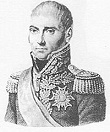
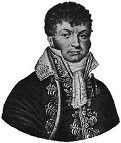









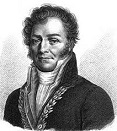


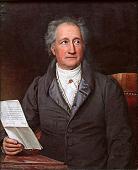

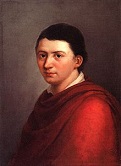



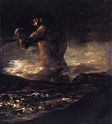

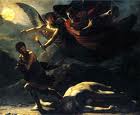
1808 In Jan. after Pres. Jefferson follows Washington's precedent and does not seek a 3rd term, a Repub. congressional caucus nominates secy. of state James Madison for pres., and N.Y. gov. (1777-95, 1801-4) George Clinton for vice-pres. In early Mar. France invades Spain with 100K troops under the pretext of guarding its coasts against the British, and takes Barcelona and Madrid, causing a palace rev. in Aranjez and forcing the dismissal of chief minister Manuel de Godoy (1767-1851) and on Mar. 19 Spanish Bourbon king #4 (since 1788) Charles IV (1748-1819) abdicates in Aranjuez in favor of his son Prince Ferdinand, who is proclaimed Ferdinand VII "the Desired" "the Felon King" (1784-1833), Bourbon king of Spain #5, who turns to Napoleon for support and abdicates on May 6, and is kept under guard in Chateau de Valencay (owned by Talleyrand) by Napoleon (until 1813), while Napoleon's brother Joseph Bonaparte (1768-18445) is made king Jose I of Spain (until Dec. 11, 1813), sparking uprisings and leading to the Peninsular War; Godoy is captured by a mob, rescued by the French, and lives the rest of his life in exile in Paris. On Mar. 13 king (since Jan. 14, 1766) Christian VII (b. 1749) dies, and his son Frederick VI (1768-1839), who has been serving as crown prince regent during his father's mental illness since 1784 becomes king of Denmark (until Dec. 3, 1839); he is not coronated until July 31, 1815; he chooses the motto "Gud og den Retfaerdige Sag" (God and the Just Cause), which is adopted by all succeeding monarchs. On Mar. 17 after criticism by Cardinal Joseph Fesch, Tsar Alexander I, Chateaubriand (who compares him to Nero and Tacitus, causing Nappy to threaten to run him through on the steps of the Tulieries Palace but ends up banishing from Paris) et al., Napoleon I issues a Restrictive Decree limiting the freedoms he had granted to the Jews, then after holding private audiences with Jews, turns around and lifts the restrictions in 13 (half) of the depts. of France, the rest following by 1811 - John Jacob Jingleheimer Schmidt, his name is my name too? On Apr. 6 German-born John Jacob Astor (1763-1848) charters the animal-slaughtering Am. Fur Co. to compete with the British fur monopoly in Canada, with the aim of setting up trading posts along the Missouri and Columbia Rivers, founding Ft. Astoria in 1811 in Oregon Territory as a terminal station at the mouth of the Columbia River; after the War of 1812 kills his fur biz for awhile, he expands his shipping activities to China and other countries, then leaves the fur biz in the 1830s to speculate on Manhattan real estate and govt. securities, becoming America's first millionaire by 1834, croaking in 1848 with a $30M fortune after donating a measly 13% of it ($400K) to found the Astor Library, leaving the rest to his son - he has a warm heart after how many animals and people were hurt to get rich? On Apr. 13 the first temperance society in the U.S. is formed by the members of the Congregational church in Moreau, Saratoga County, N.Y. On Apr. 14 the Battle of Bayonne is a D for new Spanish king Joseph Bonaparte, elder brother of Napoleon, who is transferred from Naples to be crowned on June 6, while Napoleon's fashionplate brother-in-law Joachim Murat (1767-1815) becomes king of Naples (until 1815); Ferdinand VIII is imprisoned in France; on Sept. 25 an opposition govt. is formed in Cadiz, which recognizes Ferdinand VIII as true king; in Dec. Napoleon abolishes the Inquisition in Spain and Italy by decree, after which it keeps popping up again until 1834; the Spanish revolt and the British come to their aid, joining the Peninsular War. On Apr. 17 the Bayonne Decree of Napoleon I orders seizure of U.S. ships on the pretext that they are in violation of the 1807 U.S. Embargo Act, resulting in $10M worth of seizures. On May 24 18K French troops under Gen. Pierre-Antoine Dupont de l'Etang (l'Étang) (1765-1840) leave Toledo for Cadiz, harried by Spanish guerrillas; on June 7 the First Battle of Alcolea Bridge (next in 1868) at a bridge over the Guadalquivir River in Alcolea (6 mi. from Cordoba) is a V for 18K French troops under Gen. Pierre Dupont over 3K Spanish troops under Gen. Pedro Echavarri, after which the French invade Cordoba the same afternoon and sack the city for four days; Gen. Dupont leaves 70 troops to protect the bridge, which are massacred by guerrillas led by Montoro mayor Juan de la Torre. On June 21 ex-Janissary Pasha Mustafa Alemdar (Bayrakdar) (1765-1808) of Rustchuk (Ruscuk) (Rousse) (Russe) (in Bulgaria on the Danube River 120 mi. from the Black Sea) arrives in Constantinople with an army of 15K to take on 40K Albanian and Bosnian rebels, after which sultan (since 1789) Selim III (b. 1761) is strangled in his seraglio while playing his flute by his chief black eunuch on orders of his nephew Mustafa IV (b. 1779), and thrown into the inner courtyard of the palace to show the rebels, who raise him to the throne, only to be killed along with the rebels by Alemdar; meanwhile after escaping assassination by being hidden by his mother in the furnace of a bath, leaving him the sole remaining member of the royal line of Osman, Selim III's younger brother Mahmud (Mahmut) II (1785-1839) is crowned Ottoman sultan #30 (until July 1, 1839), with Bayrakdar as grand vizier, who then makes the mistake of trying to continue the reforms, and on Nov. 15 1K Janissaries attack him in his house in the Porte, causing him to blow up his powder magazine in the cellar and commit suicide, taking 400 Janissaries with him; the Russian blockade of Constantinople is unbroken; Mustafa IV doesn't attempt any reforms for a good long time, needing to get rid of the pesky Janissaries first (1826), but goes on to attempt to modernize Turkey with Euro-style culture in 1839, setting the example by dressing in Euro military dress. On June 26-28 the First Battle of Valencia is a Spanish V over the French under Marshal Bon-Adrien Jeannot de Moncey, 1st Duc de Conegliano (1754-1842), who give up on taking the city and retreat to Madrid, abandoning E Spain. On July 5 departmental depots de mendicite are established to control begging in France. On July 12 British Lt. Gen. Arthur Wellesley (1769-1852) leaves Cork, Ireland with 9K men for the Iberian Peninsula to fight in the Peninsular War, rendezvousing with 5K troops from Gibraltar. On July 29 the Battle of Evora (Évora) sees an outnumbered Portuguese-Spanish force of 2.5K incl. peasants trying to defend the town routed by a French-Spanish div. under Gen. Louis Henri "One-Hand" (Maneta) Loison (1771-1816), who then sack the town, indiscriminately slaughtering 8K, while losing only 290. On Aug. 15 Klemens von Metternich has an important audience with Napoleon, in which Nappy denounces Count Stadion's strengthening of Austrian armaments, tipping off Metternich to Nappy's new plans to turn on Austria, causing him to return to Vienna in Nov. and urge the emperor to declare war first, bolstered by exaggerated reports of French reverses in Spain. On Aug. 16 after the Spanish revolt and the British come to their aid, joining the Peninsular War, the French begin losing and retreating, starting with the Battle of Rolica, followed by the Battle of Cadaval Aug. 17, and the Battle of Vimeiro on Aug. 21, which are all Vs for the Anglo-Portuguese army under Gen. Athur Wellesley over the French under Gen. Jean-Andoche Junot; too bad, on Aug. 30 the Convention of Cintra, signed in the Palace of Queluz allows the the French to evacuate Portugal, leaving the trapped Russian fleet of adm. Dmitry Senyavin to face a larger British force plus coastal artillery, which Senyavin answers by threatening to blow up his ships and fire Lisbon if attacked, resulting in British adm. Sir Charles Cotton, 5th Baronet (1753-1812) signing a makeshift convention allowing them to leave under British escort for Portsmouth, England on Aug. 31, with Senyavin given supreme command of the "joint Anglo-Russian fleet", but when they arrive on Sept. 27 the British Admiralty and the lord mayor of London get pissed-off at seeing their flags, causing them to be detained until winter so they can't return to the Baltic, after which the half-starved fleet slinks off to Riga next Aug. 5, arriving on Sept. 9, after which Senyavin is forced into retirement (until 1825); meanwhile Sir George Scovell (1774-1861) of the British Army breaks the Grand (Great) Cipher of Napoleon, helping tilt the odds against the French; the London Times sends German-educated Henry Crabb Robinson (1775-1867) to Spain to cover the war, becoming the first war correspondent and keeping a cool diary. Metter-nich, Metter-nich, go Klemmy go? On Sept. 17 after the1808 Russo-Swedish War begins over control of Finland, the Treaty of Fredrikshamm (Hamina) is signed by Sweden and Russia, giving Russia control of Finland as far as the Tornea River and the Aaland Islands; Finland becomes an autonomous grand duchy of the Russian Empire (until Dec. 6, 1917); another treaty mediated by Russia and signed in Paris incl. Sweden in Napoleon's Continental System; on Sept. 20 Napoleon holds a meeting with Klemens von Metternich of Austria in which he declares that war with Russia is inevitable; meanwhile the Austrian govt. is torn between the pro-French and pro-Russian parties, causing Metternich to make his smoothest move ever of counseling the emperor for a middle course of "armed abstention", reasoning that an alliance with Russia isn't worth crap and it would be better to hold the tsar for ransom as he fights France, while an alliance with France is suicidal since France is "a power whose exclusive object is the destruction of the old order of things which Austria is the defender of", and it would be cooler for Austria to be the one free player left in the Euro power game; testing his hand, Metternich tells Russian Count Shuvalov that it is Austria's #1 interest to maintain the integrity of Turkey, so they better not mess with it. In Sept. the dejected Federalists renominate their 1804 ticket of Charles Cotesworth Pinckney for pres. and Rufus King for vice-pres.; Sen. James Monroe and George Clinton now chime in and express their desire to be pres., causing a newspaper war, all aiming to discredit Madison, accusing him of bias against England and subservience to France; Pres. Jefferson saves him by releasing diplomatic correspondence of 1804-8 which clears him; John Randolph's Quids back James Monroe against Madison, but fail to create a third party, and Monroe fizzles. In the fall Britain suffers a poor harvest. On Oct. 31 after a 23K-man Spanish (Galician) army under Irish-born gen. Joachim (Joaquin) Blake y Joyes (1759-1827) advance E of Bilbao to cut the French lines of communication back to Bayonne, the Battle of Zornoza (Pancorbo) is a V for the 22K-man French army under Marshal Claude Victor-Perrin, 1st Duke of Belluno (1764-1841), and Marshal Francois Joseph Lefebvre, 1st Duke of Dantzig (1755-182) with 1.2K French vs. 3K Spanish casualties, after which Blake leads his army in a heroic retreat W through the mountains, chased all the way by Marshal Soult, arriving in Leon on Nov. 23 with only 10K left, pissing off Napoleon I. In Oct. 11-y.-o. Franz Peter Schubert (1797-1828) becomes a choirboy in the imperial chapel in Vienna, and enters the Kaiserlich-Konigliches Stadtkonvikt (Imperial and Royal City College) (main musical school of Vienna) until his voice cracks on July 26, 1812 and he leaves in Oct. 1813, getting introduced to the music of Mozart and making a bunch of lifelong friends, incl. Italian I-coulda-had-a-V8 composer Antonio Salieri (1750-1825), who takes him on as his pupil. On Nov. 10-11 the Battle of Espinosa de los Monteros in the Cantabrian Mts. is another V for the French under Marshal Lefebvre over the Spanish under gen. Joachim Blake. On Nov. 23 the Battle of Tudela is a V for Napoleon over the Spanish armies on the Ebro River. On Dec. 13 Madrid capitulates to Napoleon I, who forces the British advancing from Portugal under gen. Sir John Moore to retreat; Napoleon then leaves marshal (since 1804) Nicolas Jean-de-Dieu Soult (1769-1851) AKA "the Hand of Iron" in command as he heads for Rome. On Dec. 20 after resisting a first siege on June 15-Aug. 13, with irregular troops defeating regular army troops in street fighting, then using Napolon's slowness after Tudela to fortify the city and attract 60K volunteers, the Second Siege of Saragossa by the French begins (ends Feb. 20), led by Aragon capt. gen. Joseph Palafox (Jose de Palafox y Melzi), becoming an epic resistance that turns into a Pyrrhic V for the French? The people of the Dominican Repub. begin a revolt against their Haitian conquerors (ends 1809). In Prussia Baron Karl vom Stein gives the ability to control municipal affairs over to local elected officials (muncipal councils), is dismissed again under pressure of Napoleon I, and goes into exile in Russia. Napoleon I makes his high chancellor Jean Jacques Regis, duc de Cambaceres the duke of Parma. Pres. Jefferson utters the soundbyte "We consider their interest and ours as the same, and that the object of both must be to exclude all European influence in this hemisphere." The St. Lawrence Seaway is proposed (finished 1959). Ellis Island passes to New York State, and they sell it to the U.S. govt. for $10K for use as an arsenal (until 1892). Concord (founded 1727) becomes the capital of N.H. Ft. Madison is founded in modern-day Ohio as one of three U.S. Army posts established to establish control over the La. Purchase territory, becoming the first permanent U.S. military fort on the Upper Mississippi River; Ft. Belle Fontaine near St. Louis is also founded to control the mouth of the Missouri River, and Ft. Osage (Clark) (Sibley) near modern-day Kansas City is founded to control trade with western tribes. The source of the Ganges River is discovered by the British, despite turning back at Mana Pass. Excavations of ancient Pompeii begin (end 1815). British atty. Sir Samuel Romilly (1757-1818) begins a crusade against the 200-odd petty offenses still punishable by death, such as stealing fish, picking pockets, and appearing in the road in blackface; when he dies, Sir James Mackintosh (1765-1832) carries on for him (ends 1823). The Philadelphia Bible Society is founded. Bishop John Carroll is made archbishop of the new Roman Catholic archdiocese of Baltimore, Md. Roman Catholic layman Edmund Ignatius Rice (1762-1844) founds the Presentation Brothers in Waterford, Ireland, becoming the first congregation of men founded in Ireland; in the 1820s it grows so much it splits off the Christian Brothers, with Job 1:21 as their motto ("The Lord has given, and the Lord has taken away; blessed be the name of the Lord forever"). The Napleonic Wars in the Iberian Peninsula force up the price of horses in Britain, spurring the development of locomotives. Pigtails disappear from men's hair in Europe. Napoleon organizes the U. of France, with the Sorbonne resurrected as its seat. The original Dances with Wolves? The U. of Belgrade is founded by the Serbs as the Great School. The Theatre de la Rue St. Philippe opens in New Orleans on Jan. 30, featuring quadroon balls. 15-y.-o. Sam Houston runs away from his farm in Tenn. and lives with a band of 300 Cherokees for three years; Chief Oolooteka adopts him as his son and gives him the title Coloneh (raven) (war party leader). Napier and Son is founded in Lloyds Court, St. Giles, London, England by Scottish-born engineer David Napier (1785-1873) to produce 2-sided-paper steam-powered printing presses for Hansard, official publisher for Parliament, along with coin-weighing machines for the Bank of England. Inventions: British Navy Capt. Samuel Brown (1776-1852) and blacksmith Robert Flinn of Bell St. North Shields, England patent improved iron anchor chains for ships, spurring development and manufacturing efforts, so that by 1836 underwriters quit charging higher insurance rates for vessels using them, and by 1853 Lloyds requires them. The first soda fountain is set up in New Haven, Conn. by ? Sherman under the direction of Yale prof. Benjamin Silliman. Science: Humphry Davy uses electrolysis to isolate chemical elements Barium (#56) (Ba) (as an amalgam only - the pure metal is not isolated until 1901) and Strontium (#38) (Sr). French Sorbonne prof. of physics (1808-32) Joseph Louis Gay-Lussac (1778-1850) and Baron Louis-Jacques Thenard (Thénard) (1777-1857) isolate hard nonmetallic element Boron (#5) (B); Gay-Lussac measures the relative volume of gases involved in chemical reactions, and next year formulates Gay-Lussac's Law of Combining Volumes, that the ratios of the volumes of reacting gases are small whole numbers; it is independently discovered by Jacques Charles - also true for gay-lez ass gasses? French chemist Joseph-Louis Proust (1754-1826) proves that relative quantities of any pure chemical compound's constituent elements remain constant regardless of source. German physician Johann Christian Reil (1759-1813) coins the term "psychiatry" (Gr. "psyche" + "iatros" = mind/soul + healer). Am. physician John Stearns develops analgesics for labor pains. Nonfiction: Richard Cumberland (1732-1811), Memoirs (1806-7). John Dalton (1766-1844), New System of Chemical Philosophy (1808-27); gives the atomic weights of elements relative to the weight of hydrogen, forming the basis of the modern periodic table - Democritus struts on the catwalk? K.F. Eichhorn, Geschichte des Deutschen Rechts. Charles Simon Favart (1710-92), Memoires et Correspondance Litteraire, Dramatique et Anecdotique de C.S. Favart (posth.); his correspondence with Count Durazzo of Vienna about French theater. Johann Gottlieb Fichte (1761-18); Addresses to the German Nation; pub. after Napoleon occupies Germany and crushes the Prussian army at Jena in 1806, causing him to freak out and go nationalist, whipping-up nationalist feeling and guiding the uprising against him, helping found German nationalism. Francois Marie Charles Fourier (1772-1837), Theorie des Quartre Movements et des Destinees Generales; introduces socialistic Fourierism, the theory that universal harmony trumps throwing rice away because of low prices, therefore people should be forced into phalanxes of 1.6K people so that nobody goes without? Jakob Friedrich Fries (1773-1843), New Critique of Reason. Arnold Heeren (1760-1842), Versuch einer Entwickelung der Folgen der Kreuzzuge fur Europa. John Lempriere (1765-1824), Universal Biography of Eminent Persons in All Ages and Countries. Christoph Meiners (1747-1810), History of the Female Sex. Jean Paul (1763-1825), Peace Sermon (Friedenspredigt). Karl Wilhelm Friedrich von Schlegel (1772-1829), On the Speech and Wisdom of the Indians (Von der Sprache und Weisheit der Inder) (Heidelberg); backs up Sir William Jones (1786) on the etymological connection between Sanskrit, Greek, and Latin, turning on Greek academics to the study of Sanskrit, incl. Franz Bopp. Robert Southey (1774-1843) (tr.), Chronicle of the Cid, from the Spanish. Music: Ludwig van Beethoven (1770-1827), Fifth Symphony, Op. 67 ("the most sublime noise that has ever penetrated into the ear of man" - E.M. Forste); Carl Czerny later claims that Beethoven got the first four notes from the call of the Yellowhammer bird; Sixth (Pastoral) Symphony, Op. 68 (featuring trombones); #5 and #6 debut simultaneously in Vienna on Dec. 22 in a 4-hour concert which also incl. Piano Concerto No. 4, the concert aria Ah, Perfido, and two movements from the Mass in C, with the grand finale being the Choral Fantasy (with a theme similar to 1824's "Ode of Joy"); too bad, it breaks down halfway through because the best musicians are at a benefit concert featuring Haydn, so he has to hire 2nd rate ones; Beethoven's last stage appearance as a pianist. Art: Antonio Canova (1757-1822), Napoleon I as Mars (sculpture); ends up being given by Louis XVIII to the Brits, who give it to the Duke of Wellington. Kaspar Friedrich, The Cross on the Mountains. Henry Fuseli (1741-1825), Death of Cardinal Beaufort in 1447; based on Shakespeare's "Henry VI, Pt. II". Francisco de Goya (1746-1828), Execution of the Citizens of Madrid; The Colossus (Panic) (1808-10). Baron A.J. Bros, The Battle of Eylau. Jean Auguste Dominique Ingres (1780-1867), La Grande Baigneuse. Pierre-Paul Prud'hon (1758-1823), Divine Vengeance Pursuing Crime; nets him a Legion of Honor. Plays: George Colman the Younger (1762-1836), The Heir at Law; Dr. Pangloss. Richard Cumberland (1731-1811), Hint to Husbands (blank verse). Friedrich de la Motte Fouque (1777-1834), Sigurd der Schlangentodter, ein Heldenspiel in Sechs Abentheuren (first of trilogy) (ends 1810); first modern German dramatization of the Nibelung legend, later built on by Friedrich Hebbel and Richard Wagner. Johann Wolfgang von Goethe (1749-1832), Faust, Pt. 1 (Pt. 2 in 1832); meet classic Mephistopheles in Romantic hell? Franz Grillparzer (1791-1872), Blanca von Castilien (1807-9) (verse tragedy). Heinrich von Kleist (1777-1811), Das Katchen von Heilbronn. Charles Mathews (1776-1835), At Home (Lyceum Theatre, London); a 1-man show, the first monopolylogue? Adam Oehlenschlager (1779-1850), Hakon Jarl (tragedy). Vittorio Raineri, Ancient Gauls Sacrificing a Cow. Poetry: Thomas Moore (1779-1852), Irish Melodies; eulogizes Robert Emmet, "Oh, breathe not his name!" Sir Walter Scott (1771-1832), Marmion: A Tale of Flodden Field; Lochinvar carries off fair maiden Ellen at her wedding feast; "They'll have fleet steeds that follow"; "Oh what a tangled web we weave when first we practice to deceive." Novels: Francois-Rene de Chateaubriand (1768-1848), Les Aventures du Dernier Abencerage (pub. 1826). Joseph von Eichendorff (1788-1857), Die Zauberei im Herbst; Obserschlesische Marchen und Sagen (Upper Silesian Fairy Tales and Sagas) (1808-10). Elizabeth Hamilton (1756-1816), The Cottagers of Glenburnie. Charles Robert Maturin (1782-1824), The Wild Irish Boy; Gothic romance; pub. under alias Dennis Jasper Murphy. Births: U.S. treasury secy. #25 (1861-4) and chief justice #6 (1864-73) Salmon Portland Chase (d. 1873) on Jan. 13 in Cornish, N.H.; educated at the U. of Cincinnati, and Dartmouth College; the fishy face on the U.S. $10K bill; coiner of the slogan "Free soil, free labor, free men"; his sister Hannah later dies of a heart attack during dinner, and he goes on to outlive three wives, his parents, and a child, and says "What a vale of misery this world is. Death has pursued me incessantly ever since I was twenty-five." Am. anarchist abolitionist writer Lysander Spooner (d. 1887) on Jan. 19 in Athol, Mass. German "The Life of Jesus, Critically Examined" Rationalist liberal Protestant theologian David Friedrich Strauss (d. 1874) on Jan. 27 in Ludwigsburg (near Stuttgart); educated at the U. of Tubingen; husband (184-) of Agnese Schebest (1813-69). Czech dramatist-writer-actor Josef Kajetan (Kajetán) Tyl (d. 1856) on Feb. 4 in Kutna Hora; author of the Czech nat. anthem "Where Is My Home". German "The Poor Poet" Romantic Biedermeier painter-poet Karl (Carl) Spitzweg (d. 1885) on Feb. 5 in Unterpfaffenhofen (near Munich), Bavaria. French painter-lithographer-caricaturist Honore (Honoré) Victorin Daumier (d. 1879) on Feb. 26 in Marseilles. Am. brewer David Gottlieb Jungling (Jüngling) (Yuengling) (d. 1877) on Mar. 2 in Aldingen, Wurttemberg, Germany; emigrates to the U.S. in 1828. Swiss jurist-politician-educator Johann Kaspar Bluntschli (d. 1881) on Mar. 7 in Zurich. German anthropologist-physician Franz Ignaz Pruner (d. 1882) on Mar. 8; educated at the U. of Munich. Am. naval commodore William David Porter (d. 1864) on Mar. 10 in New Orleans, La.; son of David Porter (1780-1843); brother of David Dixon Porter (1813-91); foster brother of David Farragut (1801-70). British water cure doctor James Manby Gully (d. 1883) on Mar. 14 in Kingston, Jamaica; educated at the U. of Edinburgh. Am. Oregon Protestant missionary Narcissa Prentiss Whitman (d. 1847) on Mar. 14 in Prattsburgh, N.Y.; wife of Marcus Whitman (1802-47). French-Spanish soprano Maria Malibran (Maria Felicia Garcia Sitches) (d. 1836) on Mar. 24 in Paris; daughter of Manuel Garcia (1775-1832). Spanish Romantic poet Jose (José) Javier Oriol Encarnacion (Encarnación) Espronceda y Delgado (d. 1842) on Mar. 25 in Almendralejo, Badajoz. Am. Episcopal bishop Mark Antony De Wolfe (DeWolfe) Howe Sr. (d. 1895) on Apr. 5 in Bristol, R.I.;great-grandson of Mark Antony Dewolf; educated at Phillips Academy, and Middlebury College; father of Mark Antony De Wolfe Jr. (1864-1960). French painter Eugene-Emmanuel Amaury Pineux Duval (d. 1885) on Apr. 16 in Montrouge; son of Amaury Duval (1760-1838); nephew of Alexandre Pineux Duval (1767-1842); student of Jean-Auguste-Dominique Ingres (1780-1867). U.S. Rep. (Whig-Ind.) (1843-9) and U.S. interior secy. #6 (1861-3) Caleb Blood Smith (d. 1864) on Apr. 16 in Boston, Mass.; grows up in Ohio; educated at Miami U, and U. of Cincinnati. French pres. and emperor (1852-70) Napoleon III (Charles Louis Napoleon Bonaparte) (d. 1873) on Apr. 20 in Paris; nephew of Napoleon I (1769-1821). English pianist (Unitarian) Emma Darwin (nee Wedgwood) (d. 1896) on May 2 in Maer Hall, Maer, Staffordshire; granddaughter of Josiah Wedgwood (1730-95); first cousin of hubby (1839-) Charles Darwin (1809-92) through Josiah Wedgwood and his wife Sarah; pupil of Frederic Chopin. U.S. Supreme Court justice #40 (1870-80) William Strong (d. 1895) on May 6 in Somers, Conn.; grows up in Penn.; educated at Yale U. Irish "The Bohemian Girl" operatic composer-singer Michael William Balfe (d. 1870) on May 15 in Dublin. Am. Confed. pres. (1862-5), U.S. war secy. #23 (1853-57), and U.S. Sen. (D-Miss.) (1857-61) Jefferson Finis Davis (d. 1889) on June 3 in Christian County (near Favirview, Todd County), Ky.; youngest of 10 children of Philly-born Samuel Emory Davis (1756-1824), who served in the Continental Army during the Am. Rev. War, and Ky.-born Jane Cook (1759-1845); husband (1845-) of Varina Howell Davis (1826-1906) - his middle name is what? Norwegian radical anti-Danish poet-dramatist-ed. ("the Walt Whitman of Norway") Henrik Arnold Thaulow Wergeland (d. 1845) on June 17 in Kristiansand. Dutch writer-poet Everhardus Johannes Potgieter (d. 1875) on June 27 in Zwolle, Overijssel. German historian Johann Gustav Droysen (d. 1884) on July 6 in Treptow, Pomerania; son of army chaplain Johann Christian Droysen; father of historians Gustav Droysen and Hans Droysen. Burmese king (1853-78) Mindon Min (Maung Lwin) (d. 1878) on July 8 in Amarapura; half-brother of Pagan Min (-1853). Am. "Twelve Years a Slave" abolitionist writer (black) Solomon Northup (d. 1863) on July 10 in Minerva, N.Y. French Third Repub. pres. #1 (1873-5, 1875-9) and field marshal Comte Marie Edme (Edmé) Patrice Maurice de MacMahon, Duke of Magenta (d. 1893) on July 13 in Chateau de Sully, Saone-et-Loire. English Roman Catholic Cardinal (1875-) Henry Edward Manning (d. 1892) on July 15 in Totteridge, Hertfordshire; switches from Anglican to Roman Catholic in 1851. German mathematician Johann Benedict Listing (d. 1882) on July 25 in Frankfurt; coiner of the term "topology". English evangelical preacher ("the Pilgrim's Companion") Octavius Winslow (d. 1878) on Aug. 1 in Pentonville. U.S. Repub. state secy. #26 (1869-77) and N.Y. gov. #16 (1849-50) Hamilton Fish (d. 1893) on Aug. 3 in Greenwich Village, N.Y.; of Dutch descent; son of Nicholas Fish (1758-1833); father of Hamilton Fish II (1849-1936); grandfather of Hamilton Fish III (1888-1991); great-grandfather of Hamilton Fish IV (1926-96); great-great-grandfather of Hamilton Fish V (1952-); educated at Columbia U. - that name's too good to die? Am. businessman-politician (in Hawaii) Samuel Northrup (Northrop) Castle (d. 1894) on Aug. 12 in Cazenovia, N.Y. Scottish steam hammer inventor James Hall Nasmyth (d. 1890) on Aug. 19 in Edinburgh; son of Alexander Nasmyth (1758-1840); son of Patrick Nasmyth (1787-1831); not to be confused with basketball man James Naismith (1861-1939). Algerian Sufi Muslim emir ("the Modern Jugurtha") Abdelkader ibn Muhieddine al-Hasani (El Djezairi) (d. 1883) on Sept. 6 in Guetna (near oran), Algiers. German Young Germany critic-novelist Theodor Mundt (d. 181) on Sept. 19 in Potsdam. German "Gospel of Poor Sinners" Socialist writer (founder of German Communism) Wilhelm Christian Weitling (d. 1871) on Oct. 5 in Magdeburg, Prussia; starts out as a tailor, goes Commie, has his fun then emigrates to the U.S. in 1846. Danish Oldenburg king (1848-63) (last absolute monarch) Frederick VII (d. 1863) on Oct. 8 in Copenhagen; son of Christian VIII (1786-1848) and Duchess Charlotte Frederica of Mecklenburg-Schwering. Am. Smith & Wesson co-founder Horace Smith (d. 1893) on Oct. 28 in Cheshire, Mass.; not to be confused with poet Horace Smith (1779-1849). Am. Mormon pres. #3 (1880-7) John Taylor (d. 1887) on Nov. 1 in Milnthorpe, Cumbria, England; emigrates to the U.S. in 1838. French "Les Diaboliques" decadent realist novelist (atheist-turned-Roman Catholic) Jules-Amedee Barbey d'Aurevilly (Jules-Amédée Barbey d'Aurevilly) (d. 1889) on Nov. 2 in Saint-Sauveur-le-Vicomte, Normandy; educated at College Stanislas de Paris; known for his dandyism. English travel agent Thomas Cook (d. 1892) on Nov. 22 in Melbourne, Derbyshire; becomes Baptist minister in 1828. British banker-politician (first Jewish MP) (Jewish) Lionel Nathan de Rothschild (d. 1879) on Nov. 22; son of Nathan Mayer Rothschild (1777-1836), son of Mayer Amschel Rothschild (1744-1812); father of Leonora Rotschild (1837-1911), Evelina Rothschild (1839-66), Nathan Mayer Rothschild (1840-1915), Alfred Charles Rothschild (1842-1918), and Leopold Rothschild (1845-1917). U.S. Repub. pres. #17 (1865-9) and vice-pres. #16 (1865) ("the Tennessee Tailor") Andrew Johnson (d. 1875) on Dec. 29 in Raleigh, N.C.; his father dies at age 3, is apprenticed at age 10, becomes a tailor at age 13, and runs away to Tenn. at age 15, where his wife Eliza McCardle teaches him how to write by age 17 - is that what that says, "Trojan"? Deaths: Swedish naval architect vice-adm. Fredrik Henrik af Chapman (b. 1721 on Aug. 19. German-born Am. Moravian missionary David Zeisberger (b. 1721) on Nov. 17 near Gnaudenhutten, Ohio. French historian Louis Pierre Anquetil (b. 1723) on Sept. 6. Irish-born British army officer Sir Guy Carleton, 1st baron Dorchester (b. 1724) on Nov. 10 in Stubbings, Maidenhead, Berkshire. Am. Rev. leader James Warren (b. 1726) on Nov. 28 in Plymouth, Mass. German Johann Wolfgang von Goethe's mother Katharina Elisabeth Goethe (b. 1731) on Sept. 13 in Frankfurt am Main. Am. founding father John Dickinson (b. 1732) on Feb. 14 in Wilmington, Del. Prussian architect Carl Langhans (b. 1732) on Oct. 1 in Grueneiche (near Breslau). French painter Hubert Robert (b. 1733) on Apr. 15 (stroke). Russian adm. Count Alexei Orlov (b. 1737). Am. Mass. gov. #7 (since May 29, 1807) James Sullivan (b. 1744) on Dec. 10 in Boston, Mass. Danish entomology pioneer Johan Christian Fabricius (b. 1745) on Mar. 3. Danish king Christian VII (b. 1749) on Mar. 13 in Rendsburg. Am. Christian leader Jacob Albright (b. 1759) on May 17 in Kleinfeltersville, Penn. (TB). English classical scholar Richard Porson (b. 1759) on Sept. 25. Ottoman sultan (1789-1807) Selim III (b. 1761) on July 28/29 in Constantinople (assassinated on orders of Mustafa IV). Turkish sultan (1807-8) Mustafa IV (b. 1779) on Nov. 15 in Constantinople (executed on orders of Mahmud II).





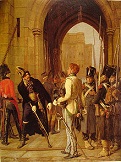
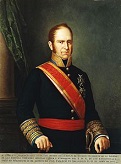
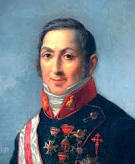


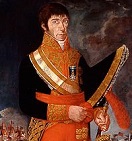
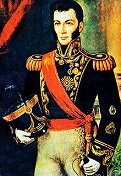
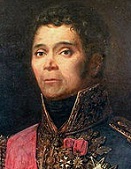
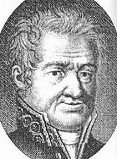
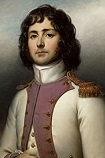
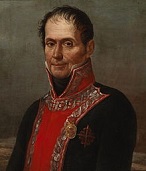







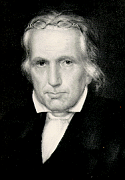

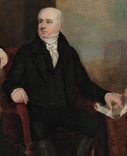
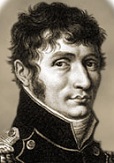








1809 On Jan. 4 the electoral ballots are counted, and Madison gets 122 electoral votes to Pinckney's 47 and Clinton's 6. On Jan. 5 after British adm. Sir John Thomas Duckworth fails to provide effective support for the Russian navy, Britain and Turkey sign the Treaty of the Dardanelles (Chanak), and Shoja Shah meets with Scottish-born British rep. Mountstuart Elphinstone (1779-1859) in Peshawar to plan a joint defense against a possible combined invasion of India by Napoleon and Tsar Alexander I; the treaty affirms the principle that no warships of any power should enter the Dardanelles Straits and Bosphorus Strait; Mahmud Shah is returned to power (until 1818) with the help of PM Fath Khan, who becomes virtual dictator. On Jan. 8 Alexander Andreyevich Baranov (1747-1819), dir. of the Russian Am. Co. arrives at Bodega Bay, Calif. (80 mi. N of modern-day San Francisco) aboard the Kadiak, erecting temporary bldgs. before returning in 1812, then buys the land from the Kashaya Pomo Indians and erects Ft. Ross (Russ), colonizing it with 95 Russians and 80 Aleuts (finished Sept. 1812), and the Russians man it for the next 30 years despite Spanish protests. On Jan. 16 16K French under Marshal Soult defeat 16K evacuating British under Gen. Sir John Moore at the Battle of Coruna (Coruña) (Corunna), and the French overrun all of Andalusia (incl. El Ferrol) except for Cadiz; Moore is KIA by a cannonball. On Feb. 2 the French occupy Rome, then incorporate the Papal States into France on May 17 by Napoleon I's declaration, causing Pope Pius VII to excommunicate him, but on July 6 (2:00 a.m.) Nappy has the pope kidnapped in the Quirinal Palace in Rome and take him to Savona near Genoa, then to Fontainebleau, returning after five years; Nappy's uncle Cardinal Fesch is pissed-off by this and declines the archbishopric of Paris; France captures the Adriatic seaport of Fiume (Rijeka) from Hungary (until 1813). On Feb. 3 Illinois Territory is created, with capital at Kaskaskia (founded 1703) (until 1820); in Apr. 1881 the town is destroyed by a flood that shifts the Mississippi Rover from W of the town to E, making it one of the only parts of Ill. W of the river - now it's time to swindle them redskins out of their land? On Feb. 20 the U.S. Supreme Court rules that the power of the federal govt. is greater than that of any individual state. On Feb. 20 Saragossa finally falls to the French after losing 54K defenders, incl. 20K soldiers and 34K civilians, reducing the pop. from 55.K to 15K, while the French lose 10K men, 4K KIA and the rest dying of illness. In Feb. after tensions with Britain causes the U.S. to reduce its naval presence in the Mediterranean, the dey of Algiers captures the USS Sally and enslaves its 15 crewmembers, ramping up his jizya operation for Allah on the infidels. On Mar. 1 the U.S. Congress replaces the Embargo Act of 1807 with the U.S. Nonintercourse Act, permitting internat. trade with all countries except Britain and France. On Mar 4 Va.-born Princeton-educated 5'4" (shortest U.S. pres.) 100 lb. atty. ("Publius") secy. of state (since 1801) James Madison (1751-1836), AKA "the Father of the Constitution", "the Sage of Montpelier", "Withered Little Apple-John" (Washington Irving), "the Fugitive President", "Little Jemmy", "His Little Majesty" becomes the 4th U.S. pres. (until 1817) in the 6th U.S. Pres. Inauguration, becoming the first pres. to wear trousers rather than knee breeches; George Clinton continues as the 4th vice-pres.; First Lady Dorothea Dandridge Payne Todd "Dolley" Madison (1768-1849) likes to be called "Queen Dolley"; at the inaugural ball a guest breaks windows for air. Secure our supply of port wine first, then get serious? On Mar. 10-12 after getting off to a slow start in Galicia, the French win the Siege of Chaves in Portugal, followed on Mar. 20 by the Battle of Braga, then force a passage on the Ave River on Mar. 25-26, arriving at Oporto with 16K of his original 22K men, finding that 6 mi. of fortifications have been built for its 30K defenders, only 5K of which are experienced soldiers; on Mar. 21-25 the Portuguese retake Chaves; on Mar. 29 the First Battle of Oporto is a V for Marshal Soult; meanwhile in Mar. another French army under Marshal Claude Victor-Perrin, Duc de Belluno (1764-1841) invades Estremadura; too bad, Arthur Wellesley returns in Apr., and on May 12 he and his 25K men defeat Soul and his 20K men at the Second Battle of Oporto (Porto) (the Douro River), causing Soult to retreat N over mountainous terrain, losing several thousand men and most of their transport, after which Wellesley turns S to take care of Marshal Victor on July 27-28 at the bloody inconclusive (tactical Anglo-Spanish V, strategic French V) Battle of Talavera 70 mi. SW of Madrid, protecting Portugal from further invasion; big man Arthur Wellesley is created duke of Wellington, and his brother is created marquis Wellesley and appointed foreign secy. On Mar. 25 after the House of Commons acquits him by 278-196 of receiving bribes for army commissions via his mistress (since 1803) Mary Anne Clarke (nee Thompson) (1776-1852), Prince Frederick, Duke of York resigns as British CIC (since 1795) because of the high number of votes against him; on May 29, 1811 after it is revealed that Clarke had been paid by his chief accuser, he is reinstated, and she is convicted of libel in 1813, serving 9 mo. then heading to exile in France. On Mar. 29 under Russian pressure Swedish king (since 1792) Gustavus IV (1778-1837) is deposed by the military, and the Riksdag gives the crown to his uncle Charles XIII (1748-1818) (until Feb. 5, 1818), restoring the power of the aristocracy; Gustavus' descendants are barred from succession; French Marshal Jean Baptite Bernadotte is elected crown prince of Sweden, and his son Oscar (b. 1799) is made duke of Soderman, later marrying Josephine de Beauharnais (Leuchtenberg) (1807-76), granddaughter of French empress Josephine - I'm DJ Jean B, call me, tell me your story? On Mar. 29 the Finnish Diet formally acknowledges annexation of Finland by Russia in return for guaranteeing religious freedom, traditional rights and privileges, and the Finnish constitution; the Finnish Estates take an oath of allegiance to the Russian tsar, who appoints a gov.-gen. and an imperial senate; on Sept. 17 Sweden and Russia sign the Treaty of Fredrikshamn (Hamina) with Russia acknowledging the transfer, ending the Russo-Swedish War (begun 1808); too bad the Russkies renege on their pledge and try to Russianize Finland, and the Finns fight back, with the slogan "We have ceased to be Swedes; we cannot become Russians; we must be Finns", and in a mere 110 years (1919) they set up a Finnish repub. Stow the steer's horns and get out the pitchforks and scythes? On Apr. 6 Archduke Charles of Austria appeals to the whole German volk to embark on a war of liberation from Nappy and the Frogs, and begins an invasion of Bavaria, on Apr. 10 forming the Fifth Coalition against Napoleonic France with Britain (ends Oct. 14); the French place Austrian ambassador Klemens von Metternich under arrest in Paris under the cover story of retaliation for the Austrian govt. arresting two French ambassadors in Hungary; too bad, only Tyrol (Tirol) responds, and stages a peasant revolt led by Andreas Hofer, defeating a Bavarian army at Innsbruck (many peasants armed only with scythes, pitchforks, and sledge hammers), pissing-off Napoleon at the idea of it all, and causing him to hurry back from Spain, getting Francis I of Austria to renege on his promises to Hofer and surrender Tyrol to the French by the Armistice of Znaim on July 12, then send a 40K-man French-Bavarian army under French marshal Francois Joseph Lefebvre to Innsbruck, which Hofer also defeats, causing him to be elected gov. of the Tyrol, ruling for 2 mo. under Francis I. On Apr. 19-23 a French army under Marshal Jean Lannes sieges and captures Ratisbon (Regensburg) (modern-day Regensburg) on the Danube River 65 mi. N of Munich, where Napoleon is shot in the foot; Robert Browning later immortalizes the day in his poem Incident of the French Camp. On Apr. 22 the Sir Arthur Wellesley returns to Portugal to command Portuguese forces. On May 5 after seeing his chance to liberate Prussia from Napoleon, Prussian Maj. Ferdinand Baptista von Schill (b. 1776) leads his men out of Berlin under guise of maneuvers, skirmishes with the Magdeburg garrison, then heads N looking for supporters, while the Prussian king issues proclamations against joining them; on May 24 they are surrounded and attacked by 5K Danish and Dutch troops at Wismar, and escape to Stralsund, digging in and attempting to repair the crumbling fortifications; on May 31 the Danish-Dutch army overwhelms and defeats them, killing von Schill, and capturing all his officers, which are handed over to the French and hung or shot; Schill's head is sent to Leiden (until 1837); meanwhile Duke Charles William Ferdinand of Brunswick-Luneburg (1735-1806) raises volunteers who fight their way across Germany to the North Sea, where they are evacuated by the British navy. On May 15 Mary Dixon Kies becomes the first woman issued a U.S. patent for a technique for weaving straw with silk or thread to make bonnets; she is praised by Dolly Madison for fitting in with her husband's U.S. industry plans. Is Nappy's cloak of invincibility showing its frayed lining? On May 13 Napoleon captures Vienna, and the fleeing Austrians destroy the bridges across the Danube River, slowing him down, until his engineers find Lobau Island 4 mi. away, and construct a bridge; Klemens von Metternich is conducted from Paris to Vienna under military guard at Napy's orders to eat merde; too bad, on May 20-21 24K men and 60 cannon cross, only to find 95K Austrians and 200 cannon waiting for them, and on May 21-22 the Battle of Aspern-Essling sees Napoleon suffer his first reverse as his men take 21K casualties only to end up retreating back over the bridge, with the loss of Nappy's right hand man Marshal Jean Lannes, 1st Duc de Montbello, 1st Prince de Siewierz (b. 1769), who is crushed by a cannonball, his left leg amputated, and dies of fever on May 31, causing Nappy and his army to openly weep and vow revenge, after which they recross the Rhine River, join forces with Italian viceroy Eugene Rose de Beauharnais (1781-1824) (able stepson and adopted child of Napoleon), and cross again, scoring a grudge V on July 5-6 at the Battle of Wagram (wanna grab 'em by the what?), which makes a hero out of gen. Alexandre MacDonald after he breaks the Austrian center, causing Napoleon to make him a marshal of France on the spot, followed by duke of Taranto; French Gen. Pierre Yreix Daumesnil (1776-1832) loses a leg, which is replaced by a wooden one, causing him to be given the nickname "Jambe de bois"; before the battle Metternich is exchanged at Komarom for the two French ambassadors he was being held hostage for, and urges Austrian emperor Alexander I on July 7 to sue for peace, causing a power play, after which Count von Stadion resigns on July 8, and Metternich is named minister of state on Aug. 4. On May 23 the Battle of Alcaniz (Alcañiz) W of Teruel, NE Spain is a V for the Spanish under Gen. Joaquin Blake y Joyes (1759-1827) over the French (who lose 2K casualties, vs. 300 for the Spanish) under Maj. Gen. Louis Gabriel Suchet after the artillery of Spanish Gen. Martin Garcia-Loygorri e Ichaso (1759-1824) mauls the close French columns with accurate salvos, getting him promoted to field marshal and becoming the first artillery officer to receive the Laureate Cross of Saint Ferdinand. On May 25 the Chuquiasca Rev. in Chuqiasca (modern-day Sucre), Bolivia deposes gov. Ramon Garcia de Leon y Pizarro, who is accused of supporting a Portuguese protectorate, and Argentine Col. Juan Antonio Alvarez (Álvarez) de Arenales (1770-1831) becomes military gov. On July 15 after arriving in Montevideo to replace Santiago de Liniers for suspected Bonapartist sympathies, Adm. Baltasar Hidalgo de Cisneros (1756-1829) becomes viceroy #1 of the Rio de la Plata (until May 25, 1810). On July 31 Am. Rev. War gen. John Stark (1728-1822), hero of the 1777 Battle of Bennington coins the soundbyte: "Live free or die: Death is not the worst of evils" in a letter written to the anniv. of the battle, which he is unable to attend due to poor health; it becomes the N.H. state motto in 1945. On Aug. 10 Ecuador declares independence from Spain. On Aug. 11 the Battle of Almonacid near Toledo, Spain is a V for the 30K-man French IV Corps under Gen. Horace Francois Bastien Sebastiani de La Porta (Horace François Bastien Sébastiani de La Porta) (1771-1851) over the 26K-man Spanish Army of La Mancha under Gen. Francisco Javier Venegas de Saavedra y Raminez de Arenzana (1754-1838) after decisive charges by Polish uhlans, with 2.4K French vs. 3.5K Spanish casualties, and 2K Spanish taken POW. On Sept. 7 Rama I (b. 1834) dies, and his son Rama II (Buddha Loetla Nabhalai) (1767-1824) becomes Chakra king #2 of Siam (until 1824), going on to preside over a renaissance of Thai art and culture while fathering 73 children. On Sept. 30 the Treaty of Wayne swindles the Indians of Ohio and Indiana into ceding 2.5M acres of land to the Batman, er, Bruce Wayne, er, the Great White Father of the U.S. On Oct. 4 after British PM (since Mar. 31, 1807) William Cavendish-Bentinck, 3rd Duke of Portland (b. 1738) has a stroke, Tory Pittite Spencer Perceval (1762-1812) becomes British PM (until May 11, 1812), issuing the soundbyte "I have nothing to say to the nothing that has been said." Let me run this shiny brown nose past research and development? On Oct. 14 after the French get tired of haggling with one-upping new foreign affairs minister (since Oct. 8) Klemens von Metternich and deal directly with weak-kneed Austrian Hapsburg emperor Alexander I, issuing an ultimatum to force the issue, the exhausted Austrians agree to the Treaty (Peace) of Schonbrunn (Schönbrunn) (Vienna) (signed by Prince Liechtenstein on behalf of the emperor), making Austria a 2nd-rate power, giving up 32K sq. mi. of territory and 3.5M inhabitants to Russia, Bavaria, the Grand Duchy of Warsaw, and the new Illyrian Provinces along the Adriatic coast, with capital at Lyublyana (Ljubljana) (Laibach) (until 1813); Prussia receives Hanover, but has to give up its territories in S Germany and fire foreign minister Karl August von Hardenberg, whom Napoleon dislikes, and whom he humiliated by forcing Prussia to double the amount of territory ceded after he tried to backsass him, plus close the ports of Hanover to British commerce, isolating Prussia; secret articles force Austria to limit its army to 150K men, and dismiss all officers born in the territories of ancient France, Piedmont or the former Venetian Repub.; Russia receives part of East Galicia, putting it in the middle of the Danubian principalities, and causing Austria to be surrounded and isolated, and the Hapsburg monarchy to be hanging by a thread; Meternich stays on as foreign minister for the next 39 years (until 1848), saddling him with the monumental task of saving a doomed leaky ship; French troops again occupy the Tyrol, but the tenacious Tyrolese revolt again, are defeated, and flee to the mountains, and continue to fight until Nov., when Andreas Hofer, who is hiding in a mountain hut is betrayed and captured by the French, then taken to Mantua and shot next year, refusing to be blindfolded or kneel, and shouting "Long live Kaiser Franz, and aim straight!; Tyrol is annexed to the kingdom of Italy. On Nov. 25 Louis Philippe Bourbon (1773-1850) marries Maria Amelia (1782-1866) (daughter of Ferdinand IV of Naples) in Palermo, waiting in the wings until news of Napoleon's abdication arrives, after which he returns to France and is cordially received by Louis XVIII, who restores his vast Orleans estates. On Nov. 26 the Battle of Alba de Tormes in Alba de Tormes, Spain 13 mi. SE of Salamanca is a V for the French under Metz-born Gen. Francois Etienne (François Étienne) de Kellermann (1770-1835)o over the Spanish under Diego de Canas (Cañas) y Portocarrero, Duke del Parque (1755-1824) after the French catch the Spanish crossing the Tormes River and rout them on the bank with cavalry, causing them to take refuge in the mountains over the winter. On Dec. 15 Napoleon I formally divorces Empress Josephine (d. 1814) for not producing any heirs, letting her have Chateau Malmaison and 5M francs a year to scrape by with - the original Neverland? On Dec. 23 after their 1805 treaty causes the Chickasaws to clear out, and their 1806 Treaty of Washington causes the Cherokees to do ditto, the city of Huntsville, Ala. (modern-day pop. 193K/441K) in NW Ala. N of the Tennessee River is founded by Freemason LeRoy Pope (1765-1844) from Madison County, Ala., who names it Twickenham after the home village of his distant relative Alexander Pope, and lays out the streets in a NE-SW dir. parallel to Big Spring; it is incorporated as a town on Dec. 9, 1811, and a city on Feb. 24, 1860. The Ionian Islands go from French to British rule (until 1864). Britain negotiates a friendship treaty with the Sikhs in Amritsar. John Quincy Adams is appointed by Pres. Madison as U.S. minister in St. Petersburg, Russia, and about the same time Jefferson wins him over to his Dem.-Repub. Party. Metternich is named chief minister of Austria. France loses Martinique and Cayenne to the British, who attack Reunion Island and occupy it next year. The native rebellion succeeds, Santo Domingo is captured, and the Dominican Repub. is founded on the E side of the island of Hispaniola. All remaining property of the shrunken Teutonic Order in Germany is confiscated (until 1840). Rama Varma dies, and Kerala Varma III (Virulam Karkidaka Masathil Theepeta Thampuran) (d. 1828) becomes ruler of Cochin in SW India (until 1828). Britain suffers a poor harvest for the 2nd straight year. British Whig (opposition) leader Henry Richard Vassall Fox, 3rd Baron Holland (1773-1840) introduces a bill for the abolition of the death penalty for stealing; meanwhile he and his wife Elizabeth Vassall Fox (1770-1845) preside over a famous salon at Holland House, hosting brilliant parties for the smart and powerful set, while she writes a famous diary. Tel Aviv is founded in Palestine. Thomas Jefferson retires to Monticello again. Ugo Foscolo (1778-1827), new (since 1808) prof. of Italian eloquence at the U. of Pavia gives his opening lecture, urging that literature be studied in relation to nat. life and growth, a dig at Napoleon, which pisses him off so much that he abolishes the chair of nat. eloquence in all Italian univs. Napoleon tells a host of papal reps.: "Take a good look at me. In me you see Charlemagne." Montana is settled. Pall Mall in London is lit by gas. Scottish-born Am. Rev. War vet Thomas Leiper (1745-1825) builds the first railroad in the U.S. on wooden tracks in Crown Creek, Delaware County, Penn. John Stevens III (1749-1838) sails his home-built screw-driven steamboat Phoenix from Hoboken, N.J. to Philly, becoming the first steamship to successfully navigate the open ocean. Friedrich Wilhelm U. (changed in 1949 to Humboldt U.) is founded in Berlin, with Johann Gottlieb Fichte (1762-1814) (who was fired from the U. of Jena in 1798, fleeing to Berlin) as rector. Miami U. (named after the Am. Indian tribe) is founded in Oxford, Ohio; the first classes are held in 1824. (St.) Elizabeth Ann Bayley Seton (1774-1821) founds the Sisters of Charity in the U.S., becoming the first U.S. congregation of religious sisters, going on to care for wounded soldiers in the U.S. Civil War et al. The German Romantic Nazarene Movement of painters, who reject Neoclassicism and Academic painting and try to bring back the honesty and spirituality of the late Middle Ages and early Renaissance is founded in Vienna as the Brotherhood of St. Luke (Lukasbund), moving to the abandoned Monastery of San Isidoro in Rome next year, living like monks; members incl. Johann Friedrich Overbeck (1789-1869), Franz Pforr (1788-1812), Bernhard Plockhorst (1825-1907), Georg Ludwig Vogel (1788-1879), Johann Konrad Hottinger (1788-1828), Philipp Veit (1793-1877) (reviver of the lost art of fresco painting), Peter von Cornelius (1784-1867), Friedrich Wilhelm Schadow (1789-1862), Julius Schnorr von Carolsfeld, Joseph Anton Koch (1768-1839), and Joseph (Josef Ritter) von Fuhrich (Führich) (1800-76); after influencing the Pre-Raphaelite Movement, they disband by 1830. Early in this cent. Santa Claus begins to show up on Christmas, but he often is skinny, stooped, and grim until Washington Irving makes him jolly and stout this year; he doesn't become officially plump and jolly until 1930s U.S. print ads. Sandalwood trees become extinct in Fiji. Newton, Mass.-born whaling ship seaman John Palmer Parker (1790-1868) jumps ship in Hawaii, then befriends King Kamehameha I and marries one of his granddaughters, obtaining a small herd of cattle and pasturing them in Waimea (modern-day pop. 9.2K), founding Hawaii's ranching industry; later his grandson Col. Samuel Parker (-1920) vastly expands the Parker Ranch to 225K acres on the N side of Hawaii island, and Waimea begins to be called Kamuela, the Hawaiian word for Samuel; the first cowboys are imported from Spain and Mexico, becoming known as paniolos (Espanolas). The Quarterly Review lit. criticism mag. is founded in England, with William Gifford as ed. #1, who delights in dissing John Keats. The Heidelberg group of anti-Napoleonic Romantic writers in Germany disbands. The London Society for Promoting Christianity Amongst the Jews (London Jews' Society) is founded by interdenominational Protestants to convert Jews to Christ (until ?). The Internat. Bible Society in New York City is founded. The complete Bible is translated into Bengali. German-born London publisher Rudolph Ackermann (1764-1834), who patented a waterproofing method for cloth and paper in 1801 and built a factory in Chelsea to manufacture it begins pub. the monthly Repository of Arts, Literature, Commerce, Manufactures, Fashion and Politics (until 1828) for his eclectic interests in his newfangled inventions and ladies' fashions and furniture. The first successful brewery in the village of St. Louis, Mo. (pop. 1K) is founded by John Coons; it closes in 1811; meanwhile in 1810 the Bellefontaine Brewery of Jacques Delassas St. Vrain advertises strong beer for $10/barrel; the brewery burns down in 1812. Sports: The 1-mi. 2000 Guineas Stakes for 3-year-olds is first run at the Newmarket Races in Suffolk on Apr. 18, becoming the first leg of the Triple Crown, followed by the Epsom Derby and St. Leger Stakes. Architecture: On May 20 the Long Street Bridge (originally Long Bridge) over the Potomac River in the District of Columbia opens, becoming the 2nd Potomac bridge after the 1797 one near Little Falls upstream of Georgetown; on Aug. 25, 1814 the British burn the N end, and the Americans burn the S end; it is rebuilt by 1816; it goes on to be washed away in 1831 and 1857 and rebuilt, becoming a favorite of Walt Whitman to use on long hikes outside Washington, D.C. Bristol Harbour in England is built, with lock gates on the Avon River, making it a floating harbor. Inventions: 21-y.-o. Seth Boyden (1788-1870) of Mass. begins a career as an inventor, moving to Newark, N.J. in 1815 and becoming America's first Thomas Edison, starting with a nail-making machine; too bad, he flunks his law aptitude tests and never patents anything, letting others steal him blind while he dies broke? Mighty-white Cherokee leader Sequoyaj (1770-1843) invents the Cherokee Alphabet (Syllabary) (really a syllabary), which is adopted by the Cherokee Nation in 1821. Samuel Thomas von Sommering (Sömmering) (1755-1830) of Germany invents the water voltameter telegraph. Science: Irish-born Robert Adrain (1775-1843) of Princeton U. and Carl (Karl) Friedrich Gauss (1777-1855) of Germany independently pub. the Method of Least Squares. Am. surgeon Ephraim McDowell (1771-1830) performs an ovariotomy, becoming the first successful surgery of the abdominal cavity. French scientist Etienne-Louis Malus (1775-1812) pub. his discovery of the polarization of light by reflection; in 1810 he pub. his theory of double refraction of light in crystals. Nonfiction: Ernst Moritz Arndt (1769-1860), Der Geist der Zeit; a series of polemics against Napoleon I, written in exile in Sweden. Carlo Botta (1766-1837), History of the American War of Independence. Eliakim the Scribe, The First Book of Napoleon, the Tyrant of the Earth (London); by "a descendant of a modern branch of the Tribe of Levi; a rabbi dedicated in the Christian schools of the sons of the prophets", "in the 5813th year of the world, and 1809th year of the Christian era", calling Napoleon a tyrant, who proclaimed himself a worshiper of the idol, went into the land of Egypt and threatened Palestine and Jerusalem, then returned, destroyed the first idol, and led the armies of the Gauls to overwhelm and oppress the kings and princes of the earth to punish them for their wicked ways, causing the oppressed to cry for relief; the true source of the Book of Mormon?; the real author is Scottish solicitor Michael Linning (1774-1838). Carl Friedrich Gauss (1777-1855), Theoria Motus Corporum Coelestium; the least-squares method of computing planetary orbits. Joseph Louis Gay-Lussac (1778-1850), The Combination of Gases. Institut d'Egypte, Description de l'Egypte (20 vols.) (1809-28). Jean-Baptiste Lamarck (1744-1829), Systeme des Animaux sans Vertebres; Philosophie Zoologique; proposes the Lamarckian theory of evolution based on inheritance of acquired characteristics - The sons of pizza chefs have bigger hands? The daughters of librarians have built-in book lamarcks? William Maclure (1763-1840), Observations on the Geology of the U.S.. Clement Clarke Moore (1779-1863), Hebrew and Greek Lexicon (2 vols.). Hannah More (1745-1833), Coelebs in Search of a Wife. Lorenz Oken (1779-1815), Antimechanist Treatise; the German Naturphilosophie movement, believing in the archetypal polarities of nature and the untuitively derived concepts. Jean Paul (1763-1825), Twilight for Germany (Dammerungen fur Deutschland). David Ramsay (1749-1815), The History of South Carolina, from its First Settlement in 1607 to the Year 1808 (2 vols.). David Ricardo (1772-1823), The High Price of Bullion, Proof of the Depreciation of Bank Notes. Comte de Richameau (1725-1807), Memoirs Militaires, Historiques et Politiques (2 vols.) (posth.). Friedrich von Schelling (1775-1854), Investigations into the Essence of Human Freedom. August Wilhelm von Schlegel (1767-1845), Lectures on Dramatic Art and Literature. William Wordsworth (1770-1850), Convention of Cintra. Heinrich Daniel Zschokke (1771-1848), Stunden der Andacht (1809-16). Music: Ludwig van Beethoven (1770-1827), Piano Concerto No. 5 in E-flat major, Op. 73 ("Emperor"); being too deaf to perform it, Beethoven has it debuted by Friedrich Schneider; a French soldier is so inspired with its grandeur that he shouts "C'est l'empereur!", giving it the nickname, even though Beethoven despises self-crowning Emperor Napoleon; E-flat was also used in the "Eroica Symphony". Gasparo Spontini, Fernand Cortez (opera) (Paris). Art: Washington Allston, Moonlit Landscape. William Blake (1757-1827), The Brahmins; Sir Charles Wilkins working on translating the Bhagavad Gita with Brahmin scholars. John Constable (1776-1837), Malvern Hill. George Dawe, Imogen Discovered in the Cave of Belarius. Kaspar Friedrich, Monch am Meer. Henry Raeburn, Mrs. Spiers. Plays: Friedrich de la Motte Fouque, Sigurs Rache. Franz Grillparzer (1791-1872), Spartacus; Alfred der Grosse. Louis-Jean Nepomucene Lemercier (1771-1840), Christophe Colomb (Christopher Columbus); its innovations cause a riot, killing one. Poetry: Thomas Campbell (1777-1844), Gertrude of Wyoming; first popular English poem set in the U.S. and incl. Native Am. chars. Benjamin Constant de Rebecque (1767-1830), Wallenstein. Novels: Francois-Rene de Chateaubriand (1768-1848), Les Martyrs; prose epic based on his recent travels in Palestine, Turkey, Egypt, Greece, and Spain; set during the Roman persecution of early Christianity. Johann Wolfgang von Goethe (1749-1832), Die Wahlverwandtschaften (The Elective Affinities). Washington Irving (1783-1859), Diedrich Knickerbocker's History of New York (A History of New-York from the Beginning of the World to the End of the Dutch Dynasty); the early Dutch settlers and their descendants, based on Harmen Jansen Knickerbocker (1648-1721); Diedrich dresses in baggy-kneed knickerbocker trousers; Santa Claus is depicted wearing a broad-brimmed hat and smoking a long pipe - Washington goes from being the Father of Our Country to the Myth-Maker of New York City? Ivan Kriloff, Fables (1809-11). Hannah More (1745-1833), Coelebs in Search of a Wife. Jean Paul (1763-1825), Dr. Katzenberger's Trip to the Medicinal Springs (Dr. Katzenbergers Badereise); Army Chaplain Schmelzle's Voyage to Flatz. Births: French Braille inventor Louis Braille (d. 1852) on Jan. 4 in Coupvray (near Paris); becomes blind at age 3 after an accident with daddy's tools; is sent age 9 as a foundling to the Inst. for the Blind in Paris, becoming a famous organist and violoncellist in Paris. Spanish PM (1856) Gen. Don Leopoldo O'Donnell y Jorris, 1st Duke of Tetuan, 1st Count of Lucena, 1st Viscount of Aliaga, Grandee of Spain (d. 1867) on Jan. 12 in Santa Cruz de Tenerife. Austrian-German statesman Friedrich Ferdinand Graf von Beust (d. 1886) on Jan. 13 in Dresden; of an old Saxon family. Am. archabbot (Roman Catholic) Boniface (Sebastian) Wimmer (d. 1887) on Jan. 14 in Thalmassing, Bavaria; educated at the U. of Regensburg, and U. of Munich; emigrates to the U.S. in 1846. French Socialist political thinker-polemicist (founder of philosophical anarchism) Pierre-Joseph Proudhon (d. 1865) on Jan. 15 in Besancon; first to call himself an anarchist; justice, equality, and anarchy? Am. "The Raven" #1 horror fiction writer-poet (alcoholic) ("King of Lurid Gothic Suspense") Edgar Allan Poet, er, Edgar Allan Poe (d. 1849) on Jan. 19 [Capricorn] in Boston, Mass.; son of actress Elizabeth Arnold Poe (-1811); expelled from West Point after 6 mo.; known for writing on long scrolls attached with sealing wax; at 27 marries his 13-y.-o. first cousin Virginia Eliza Clemm (1822-47), who dies of TB, launching his downhill slide; lives at 230 N. Amity in Baltimore, Md. Spanish Basque "La Paloma" composer Sebastian de Iradier (Yradier) y Salverri (Salberri) (d. 1865) on Jan. 20 in Lanciego, Alava. Romanian independence leader and Orthodox bishop (St.) Andrei Saguna (d. 1873) on Jan. 20 in Miskolc, Hungary; feast day: Nov. 30. German "A Midsummer Night's Dream", "The Wedding March" Romantic composer-pianist-conductor (Jewish-turned-Protestant) Jakob Ludwig Felix Mendelssohn-Bartholdy (d. 1847) on Feb. 3 in Hamburg; grandson of Jewish philosopher Moses Mendelsson (1729-86), and son of a wealthy Berlin banker; makes his first public appearance as a pianist at age 9; teachers incl. Ignaz Moscheles, and Karl Zelter; takes the name Bartholdy after converting from Judaism to Protestantism. Swiss Barbizon School painter Johann Karl (Carl) (Jean-Charles) Bodmer (d. 1893) on Feb. 6 in Samen; known for paintings of Am. Indians. U.S. Repub. pres. #16 (1861-5) 6'4" Abraham Lincoln (d. 1865) on Feb. 12 [Aquarius] in a log cabin in Hardin (now Larue) County, Ky. ("as unpoetical as any spot on Earth" - himself); son of farmer-carpenter Thomas Lincoln (-1839) (who smacks him around, making him hate slavery, refusing to see him on his deathbed or attend his funeral) and Nancy Lincoln (d. 1818) (who dies from drinking milk from a cow that had eaten a poisonous plant); named after a murdered grandfather; 4th U.S. pres. born in a log cabin (after Jackson, Polk, Buchanan); they move to a home at 8th and Jackson in Springfield, Ill.; goes to school for about a year; his older sister Sarah dies during childbirth in 1828; has to work by law for his father until age 21, splitting rails near Decatur, Ill.; husband (18??-65) of Mary Todd Lincoln (1818-82); father of Robert Todd Lincoln (1843-1926), Willie Lincoln (1850-62), and Tad Lincoln (1853-71); suffers from Marfan's Syndrome or other genetic disorder (Jan. 29, 2007 issue of Journal of Cell Biology) that gives him a lumbering awkward gait?; in 1939 the Abraham Lincoln Birthplace Nat. Historic Site is founded 3 mi. S of Hodgenville, Ky., containing a fake log cabin; a 2005 study finds that about a third of his distant cousins have the hereditary mutation that causes the crippling neurological disorder of ataxia - causing lines on his face? English "The Origin of Species" world-shaking naturalist (evolutionary biologist) (vegetarian) (the man who made atheism intellectually respectable?) Charles Robert Darwin (d. 1882) on Feb. 12 [Aquarius] in Shrewsbury; born within a few hours of Abraham Lincoln; grandson of Erasmus Darwin (1731-1802) and Josiah Wedgwood (1730-95); studies at Edinburgh U., then takes a B.A. degree at Christ Church College, Cambridge; marries his first cousin - Lincoln and Darwin - the Dark Side of Janus Wins? Italian PM #2 (1866-7) ("the Iron Baron") Bettino Ricasoli, 2nd Baron Ricasoli (d. 1880) on Mar. 9 in Florence. English "The Rubaiyat of Ommar Khayyam" poet-translator Edward FitzGerald (Fitzgerald) (OG "son of the spear-ruler") (Purcell) (d. 1883) on Mar. 31 in Bredfield House, Bredfield, Woodbridge, Suffolk; born to one of the wealthiest families in England; educated at Trinity College, Cambridge U. Liberian pres. #1 (1848-56) and #7 (1872-6) (black) Joseph Jenkins Roberts (d. 1876) on Mar. 15 in Norfolk, Va.; Welsh descent father, mulatto mother. German "Maamme" violinist-composer-conductor (in Finland) ("Father of Finnish Music") Fredrik (Friedrich) Pacius (d. 1891) on Mar. 19 in Hamburg; student of Ludwig Spohr. French atty.-statesman Gabriel Claude Jules Favre (d. 1880) on Mar. 21 in Lyons. Spanish "Macias" Romantic satiric writer-dramatist Mariano Jose de Larra (d. 1837) on Mar. 24 in Madrid. French mathematician Joseph Liouville (d. 1882) on Mar. 24 in Saint-Omer; educated at Ecole Polytechnique. Russian "Taras Bulba", "Dead Souls" natural realist novelist-dramatist Nikolay (Nikolai) Vasilievich Gogol (d. 1852) on Mar. 31 in Sorochyntsi (near Mirgorod), Poltava, Ukraine; Cossack parents; starts out as an incompetent prof. of medieval history at St. Petersburg U.; his portrait bears a striking resemblance to Hollywood actor Johnny Depp (1963-)? Am. mathematician-astronomer ("father of pure math in America") Benjamin Peirce (d. 1880) (pr. like purse) on Apr. 4 in Salem, Mass.; father of Charles Sanders Peirce (1839-1914); educated at Harvard U. German mathematician-physicist-linguist (inventor of linear algebra and vector spaces) Hermann Gunther Grassmann (d. 1877) on Apr. 15 in Stettin, Prussia (modern-day Szczecin, Poland). Am. educator (deaf) (pres. #10 of Columbia U., 1864-89) Frederick Augustus Porter Barnard (d. 1889) on May 5 in Sheffield, Mass.; brother of John Gross Barnard (1815-82); educated at Yale U. French instrument maker (1840 inventor of the harmonium) Alexandre-Francois Debain (d. 1877) on July 6. German Loop of Henle physician-pathologist (Jewish) Friedrich Gustav Jakob Henle (d. 1885) on July 9 in Furth, Bavaria. Canadian "Fifty Years in the Church of Rome" crusading anti-clerical ex-Roman Catholic priest Charles Chiniquy (d. 1899) on July 30 in Kamouraska, Quebec. Am. Alamo commander lt. col. William Barret "Buck" Travis (d. 1836) on Aug. 1 in Saluda County, S.C. English "The Charge of the Light Brigade", "Crossing the Bar", "The Lady of Shalott" #1 Victorian poet laureate Alfred, Lord Tennyson (Alfred Tennyson, 1st Baron Tennyson) (d. 1892) on Aug. 6 in Somersby, Lincolnshire; father George Clayton Tennyson (1778-1831) is a clergyman, and mother Elizabeth Fytche (1781-1865) is the daughter of one; educated at Trinity College, Cambridge (Cambridge Apostles); created baron in 1884; husband (1850-92) of Emily Sarah Tennyson (nee Sellwood) (1813-96); father of Hallam Tennyson (1852-1928) and Lionel Tennyson (1854-86); friend of Arthur Henry Hallam (1811-33). Am. "A Dictionary of Thoughts" theologian Tryon Edwards (d. 1894) on Aug. 7 in Hartford, Conn.; great-great-grandson of Jonathan Edwards. Am. businessman (Skull & Bones co-founder) William Huntington Russell (d. 1885) on Aug. 12 in Middletown, Conn; cousin of Samuel Wadsworth Russell (1789-1862); educated at Yale U. Am. sheepman ("Father of the Tex. Sheep Business") (co-founder of The New Orleans Picayune) George Wilkins Kendall (d. 1867) on Aug. 22 in Mont Vernon, N.H.; Puritan parents; grows up in Amherst, N.H and Burlington, Vt. U.S. Repub. vice-pres. #15 (1861-5) Hannibal Hamlin (d. 1891) on Aug. 27 in Paris, Maine; descended from a family from Hamelin, Lower Saxony of Pied Piper fame, or descended from an Irish family in County Meath? Am. physician-poet-novelist-celeb ("the Autocrat of the Breakfast Table") Oliver Wendell Holmes Sr. (d. 1894) on Aug. 29 in Cambridge, Mass.; father of Supreme Court assoc. justice Oliver Wendell Homes Jr. (1841-1935); educated at Phillips Andover Academy, and Harvard U. Italian statesman-gen.-mathematician Federico Luigi, Count of Menabrea, Marquis of Valdora (d. 1896) on Sept. 4 in Chambery, Sardinia. Polish Romantic poet Juliusz Slowacki (d. 1849) on Sept. 4 in Kremenets, Volhynia (Ukraine); leaves Poland for France in 1831, is expelled in 1832, and tours Italy, Greece, Egypt and Palestine. German actress Christine Wilhelmine "Minna" Planer (d. 1866) on Sept. 5 in Oederan, Saxony; 1st wife (1836-) of Richard Wagner. German Young Hegelian philosopher-theologian-historian Bruno Bauer (d. 1882) on Sept. 6 in Eisenberg, Saxe-Altenburg. Chilean pres. #6 (1851-61) Manuel Francisco Antonio Julian Montt Torres (d. 1880) on Sept. 8 in Petorca; Catalan immigrant parents. Am. settler (Eugene, Ore. founder) (Freemason) Eugene Franklin Skinner (d. 1864) on Sept. 13 in Essex, N.Y.; grows up in Green County, Wisc. Am. Civil War Confed. Maj. Gen. Sterling "Old Pap" Price (d. 1867) on Sept. 20 near Farmville, Prince Edward County, Va.; educated at Hampden-Sydney College. Am. Civil War Confed. rear adm. Raphael Semmes (d. 1877) on Sept. 27 in Charles County, Md. Am. founder of Denver, Colo. (1858) William H. Larimer Jr. (d. 1875) on Oct. 24 in Circleville, Westmoreland County, Penn.; son of William Larimer Sr.; father of William Larimer III. Irish cannabis physician Sir William Brooke O'Shaughnessy (d. 1889) in Oct. in Limerick; knighted in 1856. U.S. Supreme Court justice #31 (1851-7) Benjamin Robbins Curtis (d. 1874) on Nov. 4 in Watertown, Mass.; educated at Harvard U. Am. Dahlgren Cannon inventor ("Father of U.S. Naval Ordnance") John Adolph Bernard Dahlgren (d. 1870) on Nov. 13 in Philadelphia, Penn. French physician-psychiatrist Benedict Augustin Morel (d. 1873) on Nov. 22 in Vienna, Austria. English abolitionist actress Frances Anne "Fanny" Kemble (d. 1893) on Nov. 27; daughter of Charles Kemble (1775-1854); niece of English tragedian John Philip Kemble (1757-1823) and actress Sarah Siddons (1755-1831) (mother of Owen Wister Jr.); sister of Adelaide Kemble (1815-79); marries Ga. slaveholder Pierce Butler in 1834, turning her off to slavery and causing her to divorce him in 1849 and become an abolitionist. German-Hungarian composer-conductor Joseph Gungl (Gung'l) (d. 1889) on Dec. 1 in Schambeck (modern-day Zsambek, Hungary). Am. Reform rabbi (Jewish) Samuel Adler (d. 1891) on Dec. 3 in Worms, Germny; father of Felix Adler (1851-1933); emigrates to the U.S. in 1857. Am. "genocidal maniac" frontiersman Christopher Houston "Kit" Carson (OE "son of the marsh-dwellers") (d. 1868) on Dec. 24 in Richmond, Madison County, Ky.; at age 1 moves to Howard County, Mo.; father is killed when he is 7; grows up illiterate but speaks several Indian languages; his first wife is an Arapaho squaw, causing him to live like an Indian in buckskins, which doesn't stop him from enjoying massacring Indians, esp. Navajos to fulfill the U.S. Mission: Impossible of Manifest Destiny? English Liberal PM (1868-74, 1880-5, 1886, 1892-4) and statesman ("the Grand Old Man") ("the People's William") ("God's Only Mistake" - Disraeli) William Ewart Gladstone (d. 1898) on Dec. 29 in Liverpool at 62 Rodney St.; of Scottish descent; educated at Eaton College, and Christ Church, Oxford U.; keeps a selection of whips in his basement with which to chastise himself? - packs a Gladstone bag? Am. Civil War Confed. brig. gen. and atty.-writer (Freemason) Albert Pike (d. 1891) on Dec. 29 in Boston, Mass.; descendant of John Pike (1613-89). Am. rancher-trader William Wells Bent (d. 1869)on May 23 in St. Louis, Mo.; partner of Cerain St. Brain (1802-70); husband (1835-) of Owl Woman (Mistansur) (-1847). Am. Egyptologist George Robbins Giddon (d. 1857) in Devonshire, England; grows up in Alexandria, Egypt. Nigerian Anglican bishop #1 (black) Samuel Adjayi (Adjai) Crowther (d. 1891) in Osoun, Yoruba Country, West Africa (Nigeria); grows up in Freetown, Sierra Leone. Deaths: French painter Joseph-Marie Vien (b. 1716) on Mar. 27 in Paris; first painter buried in the crypt of the Pantheon (until ?). Italian archbishop Antonio Martini (b. 1720) on Dec. 31 in Florence. Russian adm. Vasily Chichagov (b. 1726) on Apr. 4. English engineer Matthew Boulton (b. 1728) on Aug. 18 in Birmingham. Scottish North Am. colonial gov. John Murray, 4th earl of Dunmore (b. 1730) on Feb. 25. French sculptor Augustin Pajou (b. 1730) on May 8 in Paris. Dutch painter Dirk van der Aa (b. 1731) on Feb. 23. Austrian composer Franz Joseph Haydn (b. 1732) on May 31; leaves 106 symphonies, 20 operas, 377 arrangements of Scottish and Welsh airs, and a ton of other classical music in his 77 years, incl. 200 works for the baryton; his skull is stolen from his grave, and not restored until 1954. Thai king (1782-1809) Rama I (b. 1734) on Sept. 7. English-born Am. writer and rabble-rouser Thomas Paine (b. 1737) on June 8 in Greenwich Village, N.Y.; dies after refusing ministrations by two priests warning him of everlasting punishment if he dies an unbeliever, and replying "Let me have none of your popish nonsense - good morning": refused burial plot in a cemetery, he ends up getting buried under a walnut tree on his farm in New Rochelle, N.Y., with only five mourners attending the funeral; 10 years after his burial, English radical reformer William Cobbett disinters his bones and plans a heroic reburial in England, but fails, and when he dies the bones are lost; “Thomas Paine had passed the legendary limit of life. One by one most of his old friends and acquaintances had deserted him. Maligned on every side, execrated, shunned and abhorred – his virtues denounced as vices – his services forgotten – his character blackened, he preserved the poise and balance of his soul. He was a victim of the people, but his convictions remained unshaken. He was still a soldier in the army of freedom, and still tried to enlighten and civilize those who were impatiently waiting for his death. Even those who loved their enemies hated him, their friend – the friend of the whole world – with all their hearts. On the 8th of June 1809, death came – Death, almost his only friend. At his funeral no pomp, no pageantry, no civic procession, no military display. In a carriage, a woman and her son who had lived on the bounty of the dead – on horseback, a Quaker, the humanity of whose heart dominated the creed of his head – and, following on foot, two negroes filled with gratitude – constituted the funeral cortege of Thomas Paine" (Robert G. Ingersoll): “These are the times that try men’s souls. The summer soldier and the sunshine patriot will, in this crisis, shrink from the service of their country; but he that stands by it now, deserves the love and thanks of man and woman. Tyranny, like hell, is not easily conquered; yet we have this consolation with us, that the harder the conflict, the more glorious the triumph"; "To argue with a man who has renounced the use and authority of reason, and whose philosophy consists in holding humanity in contempt, is like administering medicine to the dead, or endeavoring to convert an atheist by scripture"; "Suspicion is the companion of mean souls, and the bane of all good society"; "Society is produced by our wants, and governments by our wickedness"; "Government, even in its best state, is but a necessary evil; in its worst state, an intolerable one"; "The duty of a true patriot is to protect his country from its government"; "We have it in our power to begin the world over again"; "He that would make his own liberty secure, must guard even his enemy from opposition; for if he violates his duty he establishes a precedent that will reach himself"; "Government... proves its excellence by the small quantity of taxes it requires"; "Any system of religion that has any in it that shocks the mind of a child cannot be a true system"; "All national institutions of churches, whether Jewish, Christian or Turkish, appear to me no other than human inventions, set up to terrify and enslave mankind, and monopolize power and profit"; "Whenever we read the obscure stories, the voluptuous debaucheries, the cruel and torturous executions, the unrelenting vindictiveness, with which more than half the Bible is filled, it would be more consistent that we called it the word of a demon, than the word of God"; "All power exercised over a nation must have some beginning. It must be either delegated or assumed. There are no other sources. All delegated power is trust, and all assumed power is usurpation." Russian gen. Count Mikhail Kamensky (b. 1738) on Aug. 12; killed by a serf he had mistreated. French hot air balloon pioneer Marquis Francois Laurent le Vieux d'Arlandes (b. 1742) on May 1 in Saleton (near Anneyron) (suicide?). French brain man Charles Francois Dupuis (b. 1742) on Sept. 29. Danish painter Nikolaj Abraham Abildgaard (b. 1743) on June 4 in Copenhagen. English dramatist-poet Hannah Cowley (b. 1743) on Mar. 11 in Tiverton (liver failure). English dramatist Thomas Holcroft (b. 1745) on Mar. 23: "History is a guidepost not a hitching post." Am. DOI signer Thomas Heyward Jr. (b. 1746) on Mar. 6. German-Bohemian violinist-composer Johann Anton Stamitz (b. 1750) in Paris. Am. Rev. War loyalist poet Joseph Stansbury (b. 1750). French balloonist Jean-Pierre Blanchard (b. 1753) on Mar. 7 in The Hague, Netherlands (heart attack while ballooning, causing him to fall from his balloon and die several weeks later). Scottish-born British gen. Sir John Moore (b. 1761) on Jan. 16 in Coruna, Spain (KIA in the Battle of Coruna); last words: "Remember me to your sister, [Lady Hester] Stanhope"; he is buried where he died, becoming known as Moore of Corunna, causing Charles Wolfe (1791-1832) to write the poem The Burial of Sir John Moore after Corunna. French marshall Jean Lannes, 1st duc de Montebello (b. 1769) on May 31 in Ebersdorf, Austria (KIA); "I found him a pygmy and left him a giant." (Napoleon) Am. Lewis and Clark Expedition man Meriwether Lewis (b. 1774) on Oct. 11 on the Natchez Trace (later Meriwether Lewis Park) in Hohenwald (near Nashville), Tenn.; suicide while bunked overnight from alcoholism and depression; suspicions of murder are covered-up quickly, and no autopsy is performed; William Clark enlists Nicholas Biddle to help finish the expedition report.